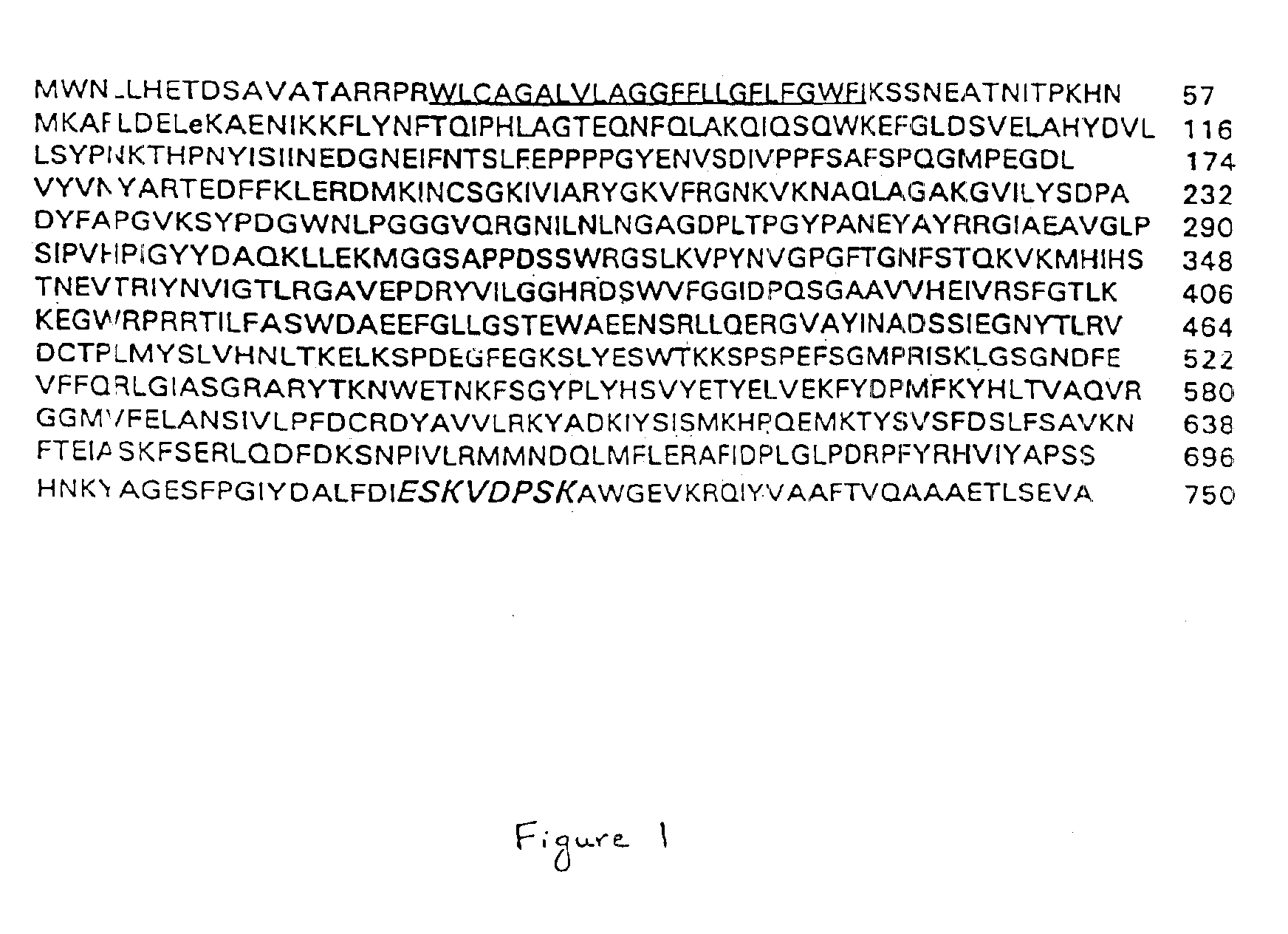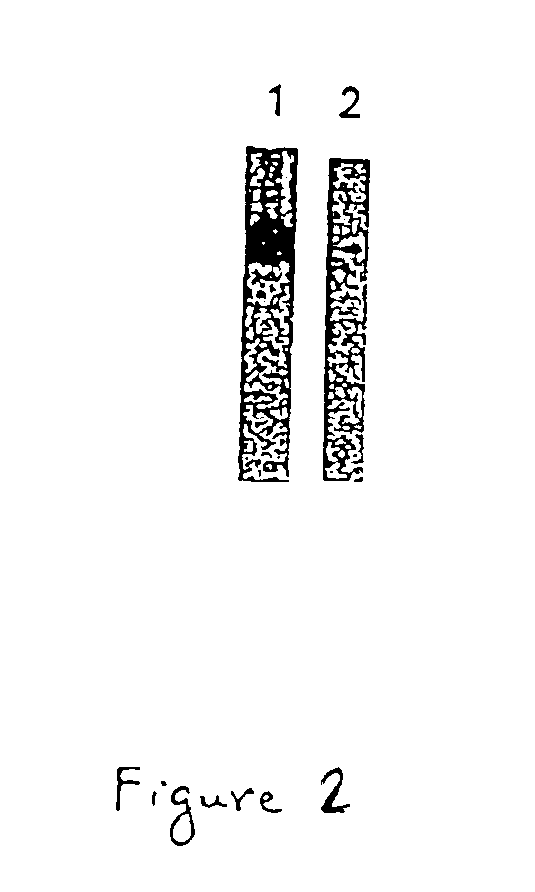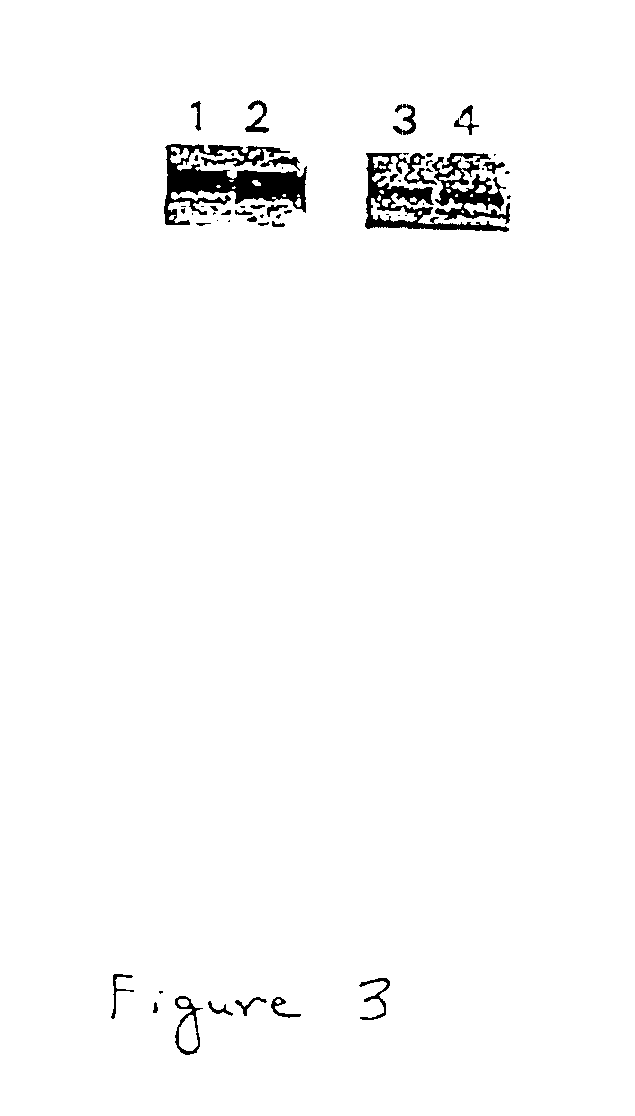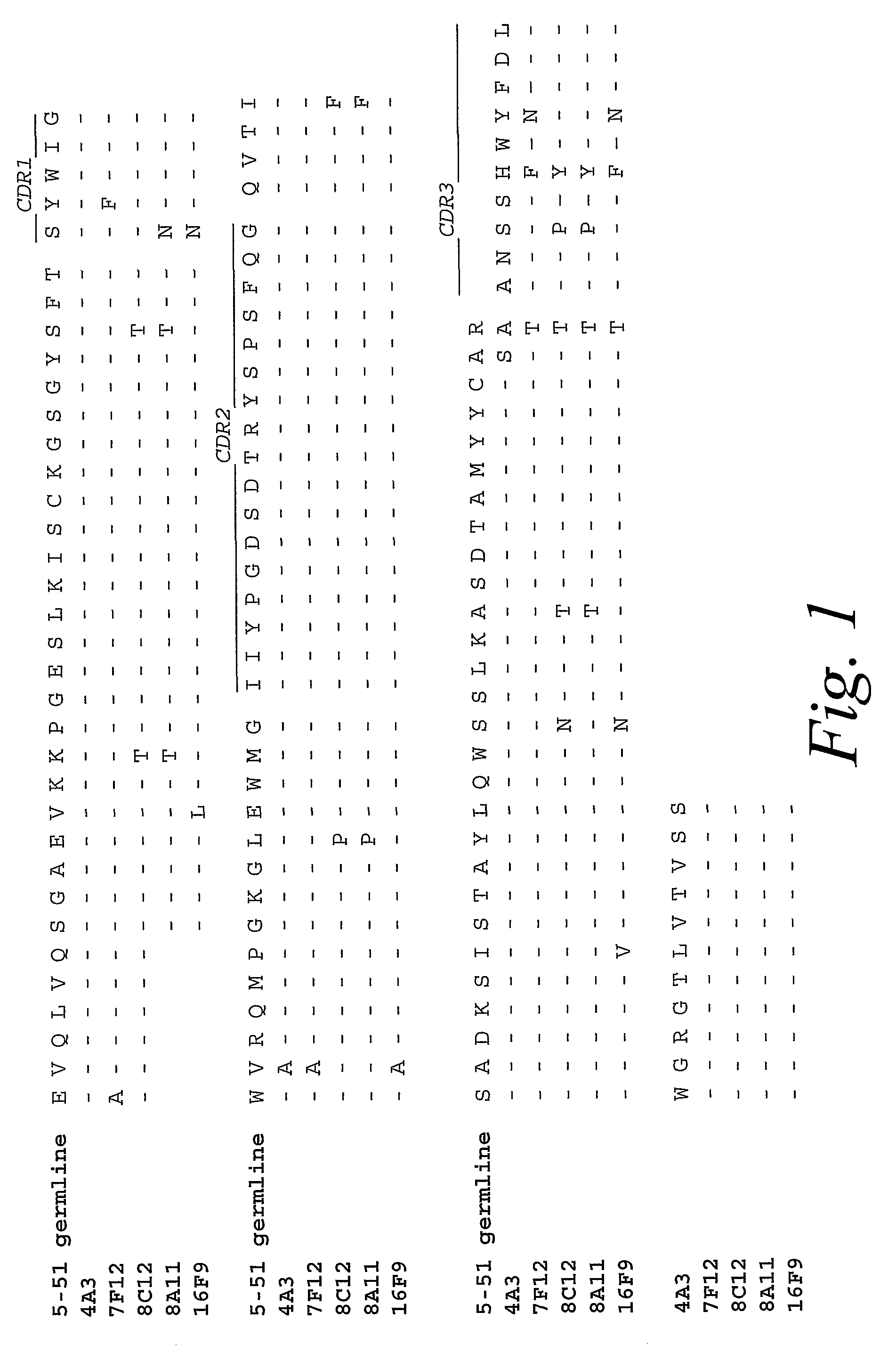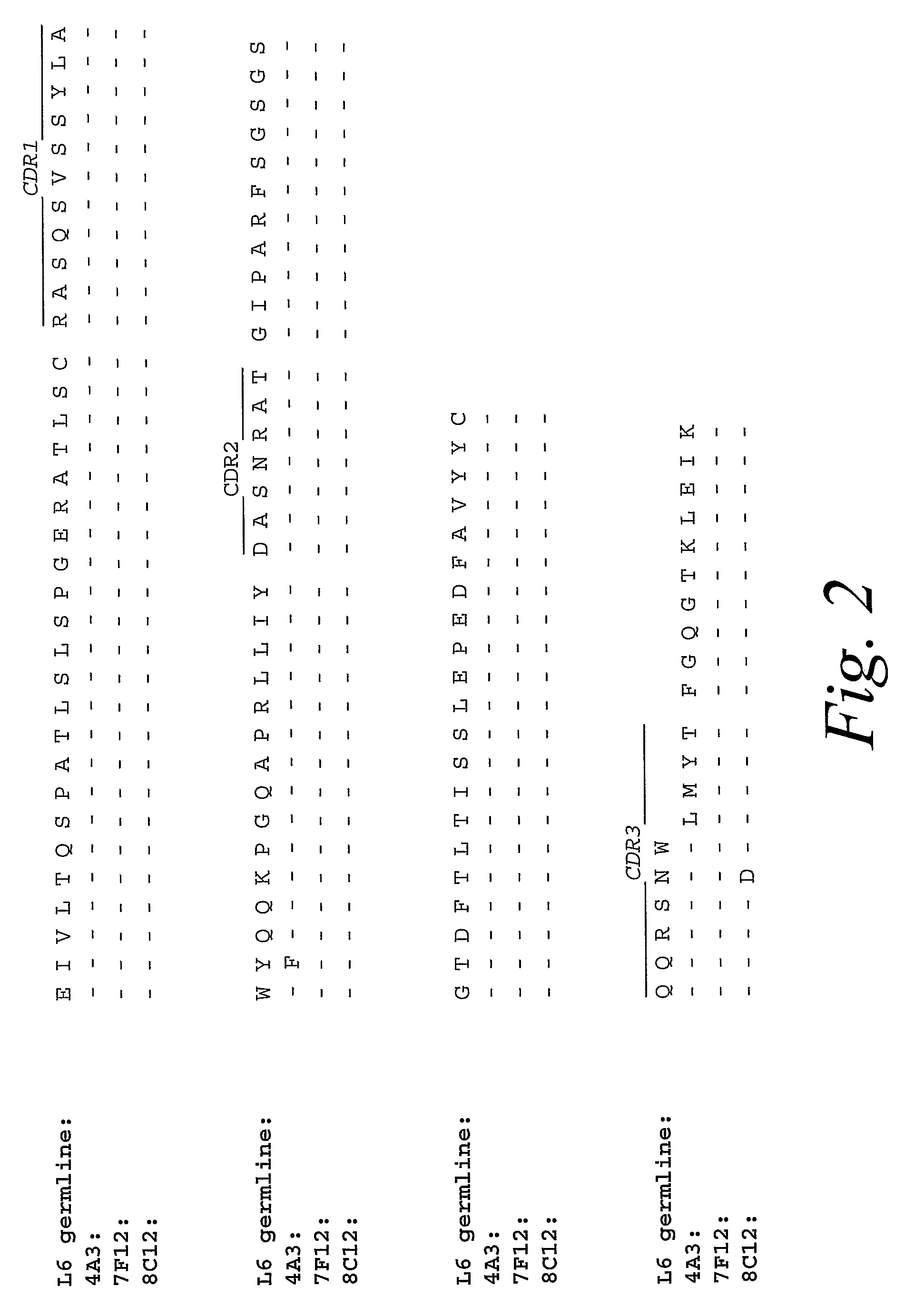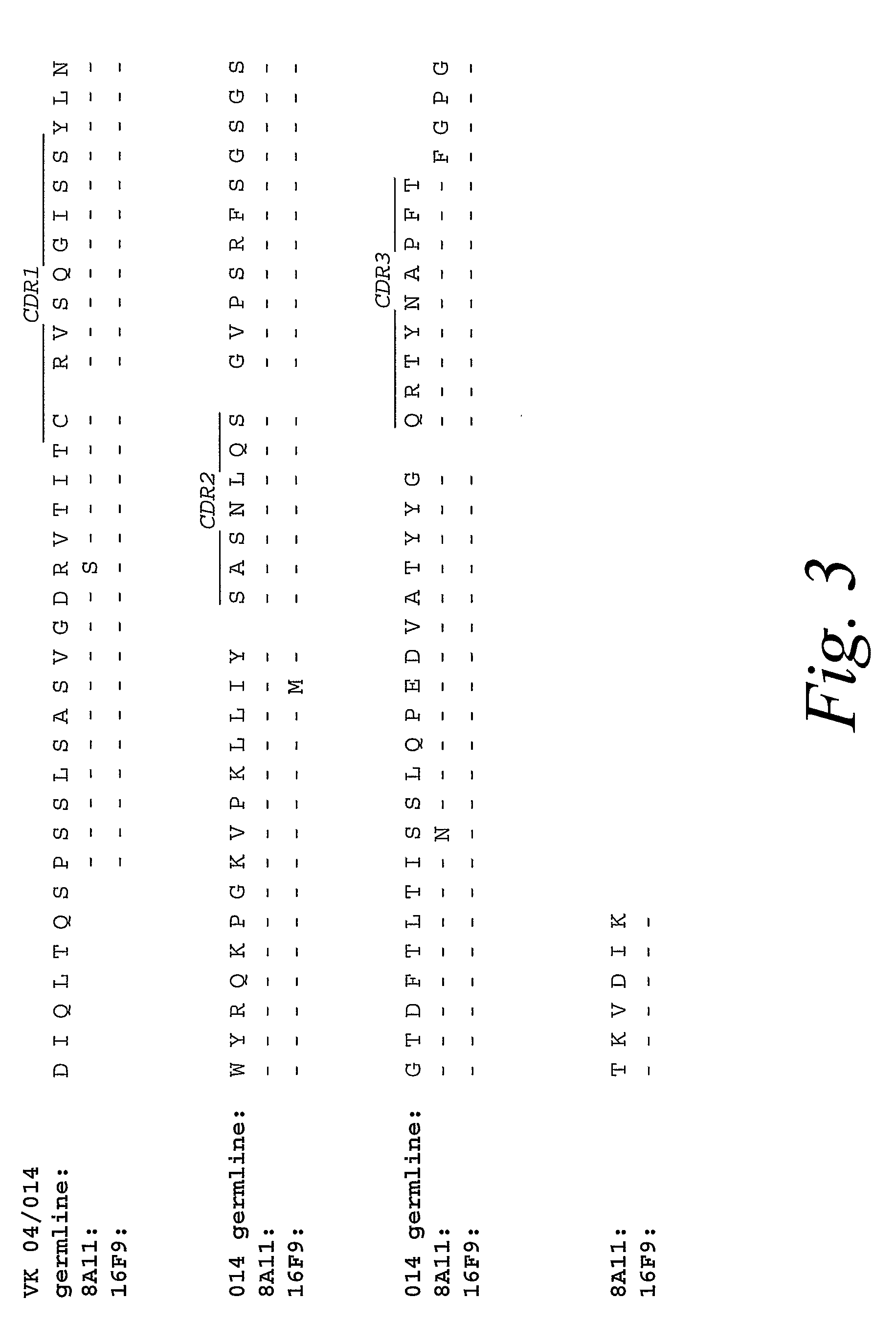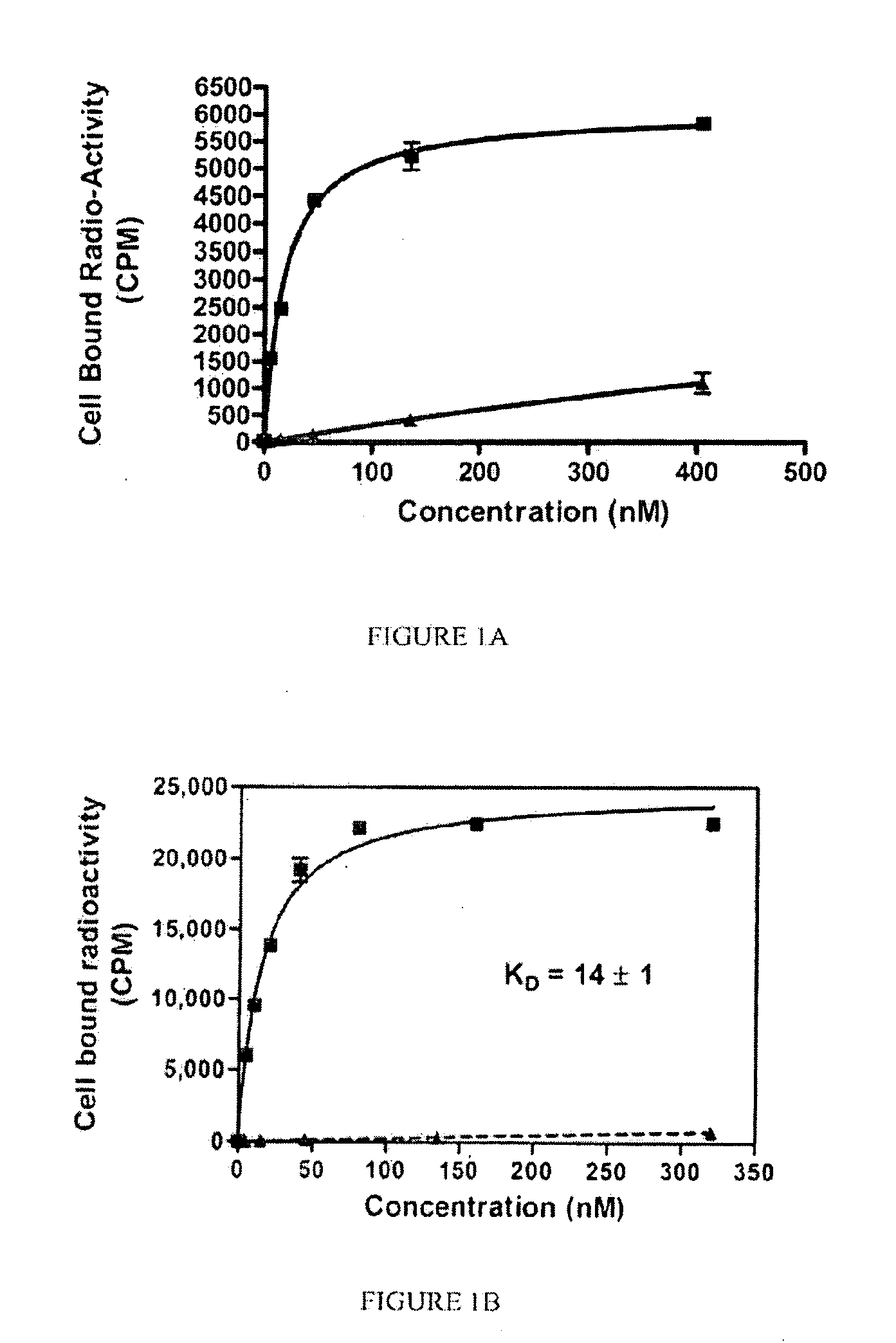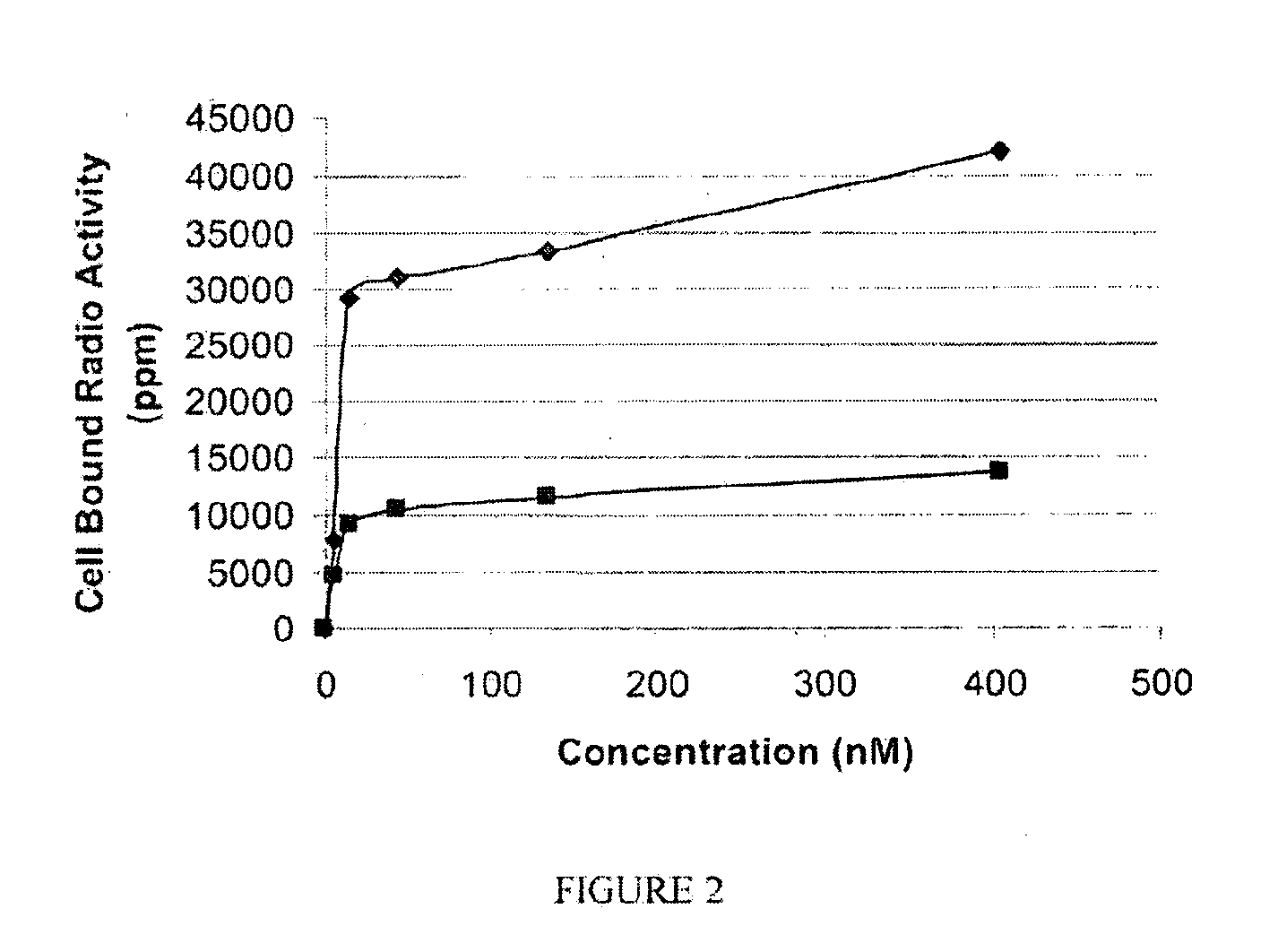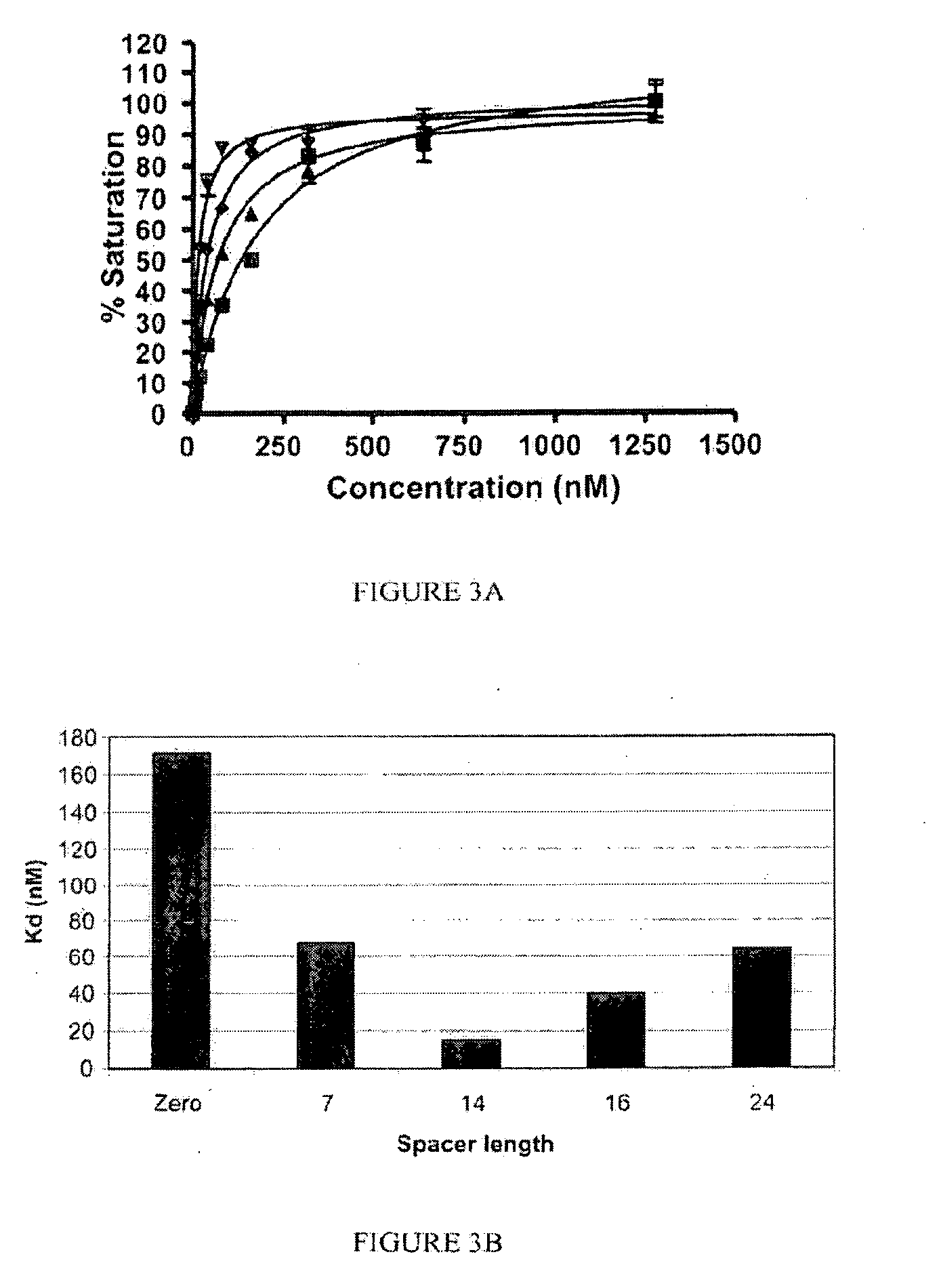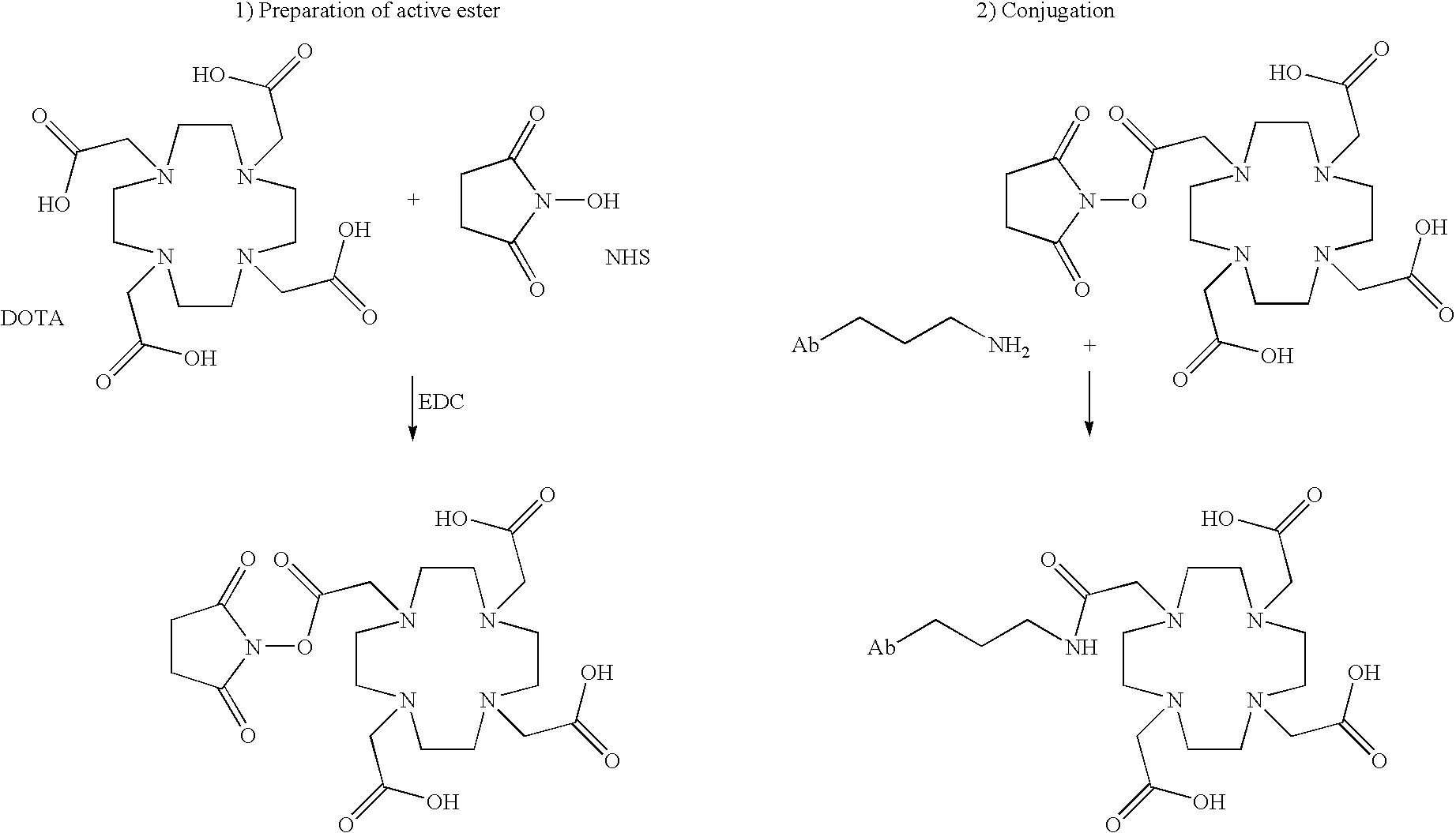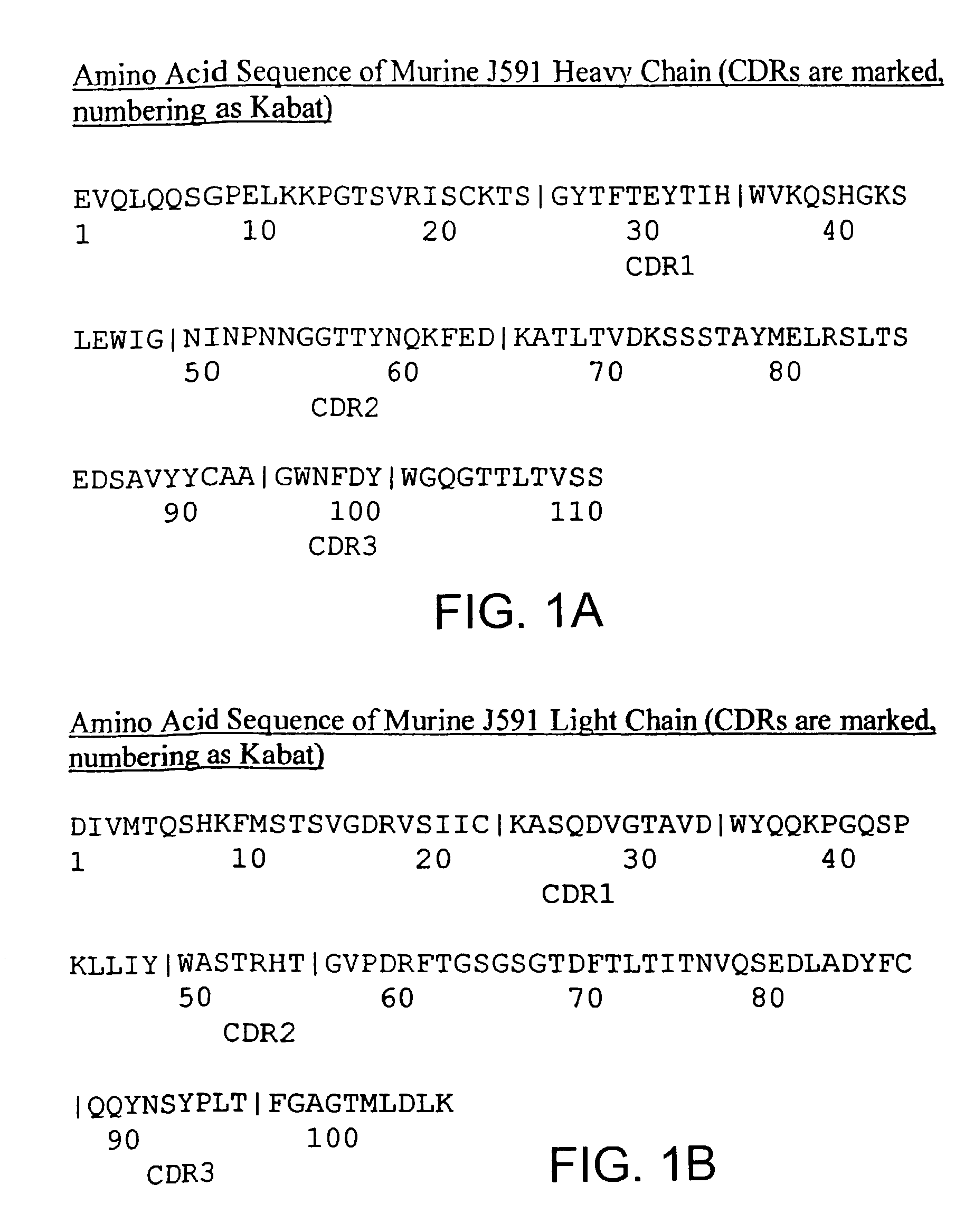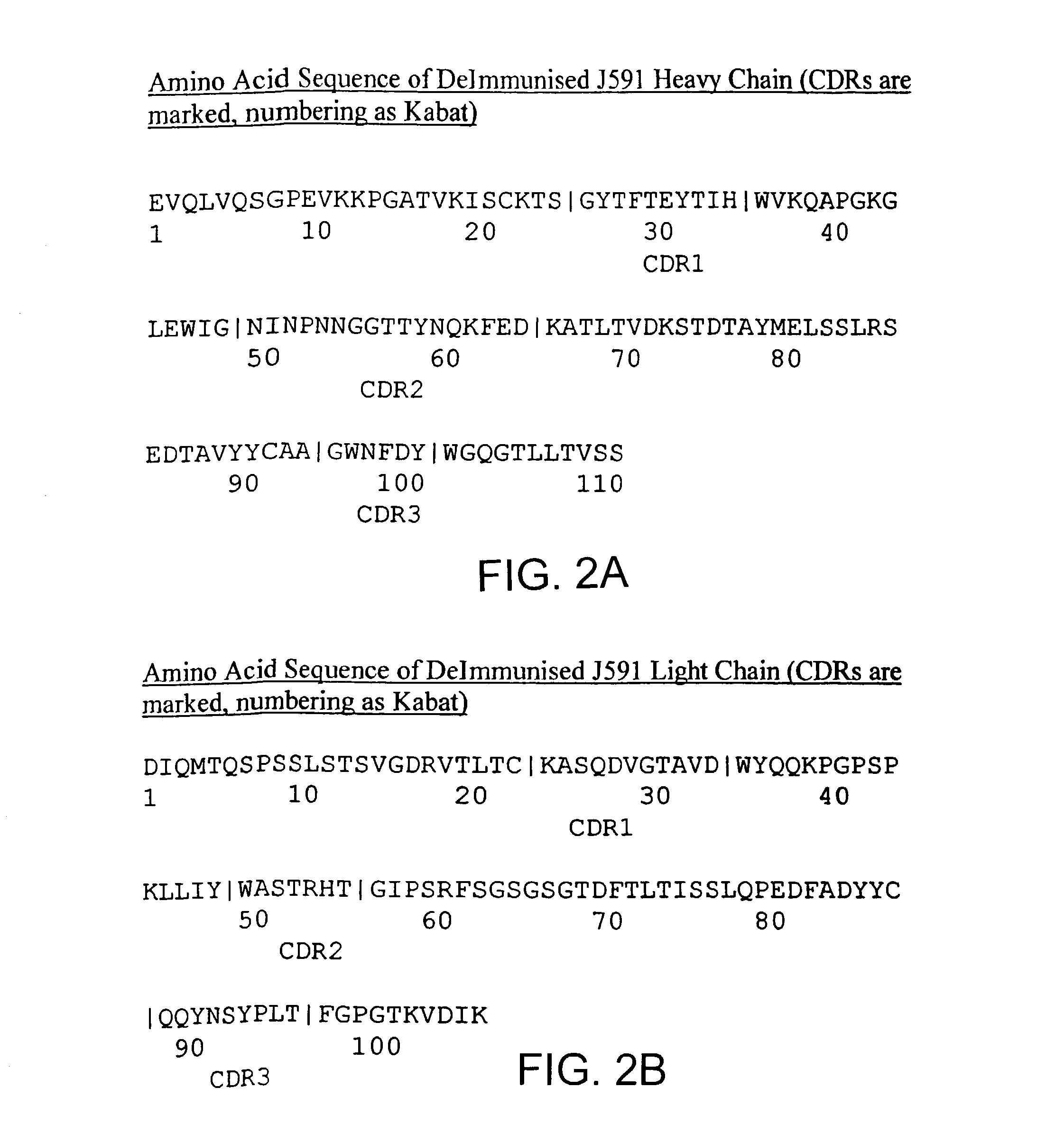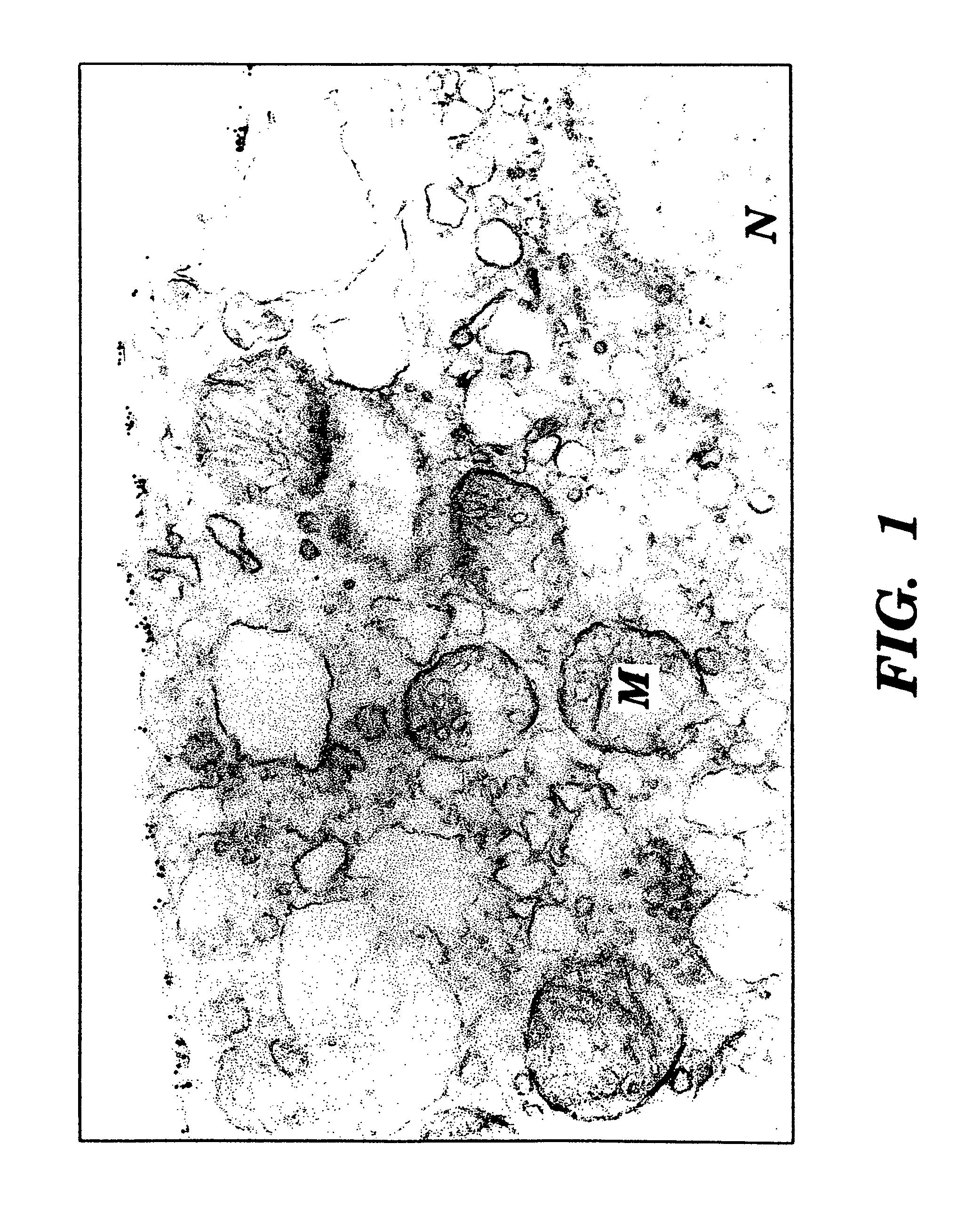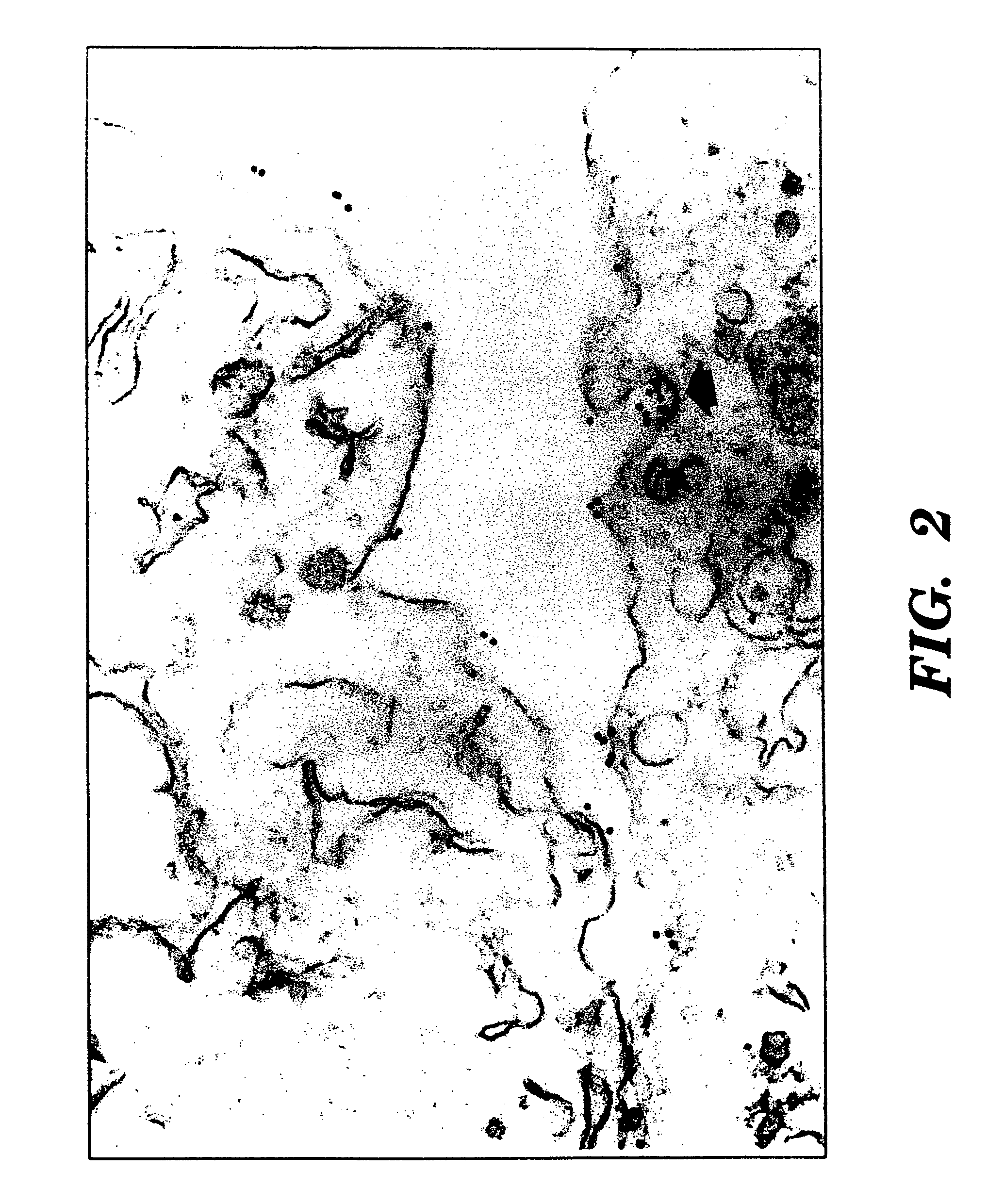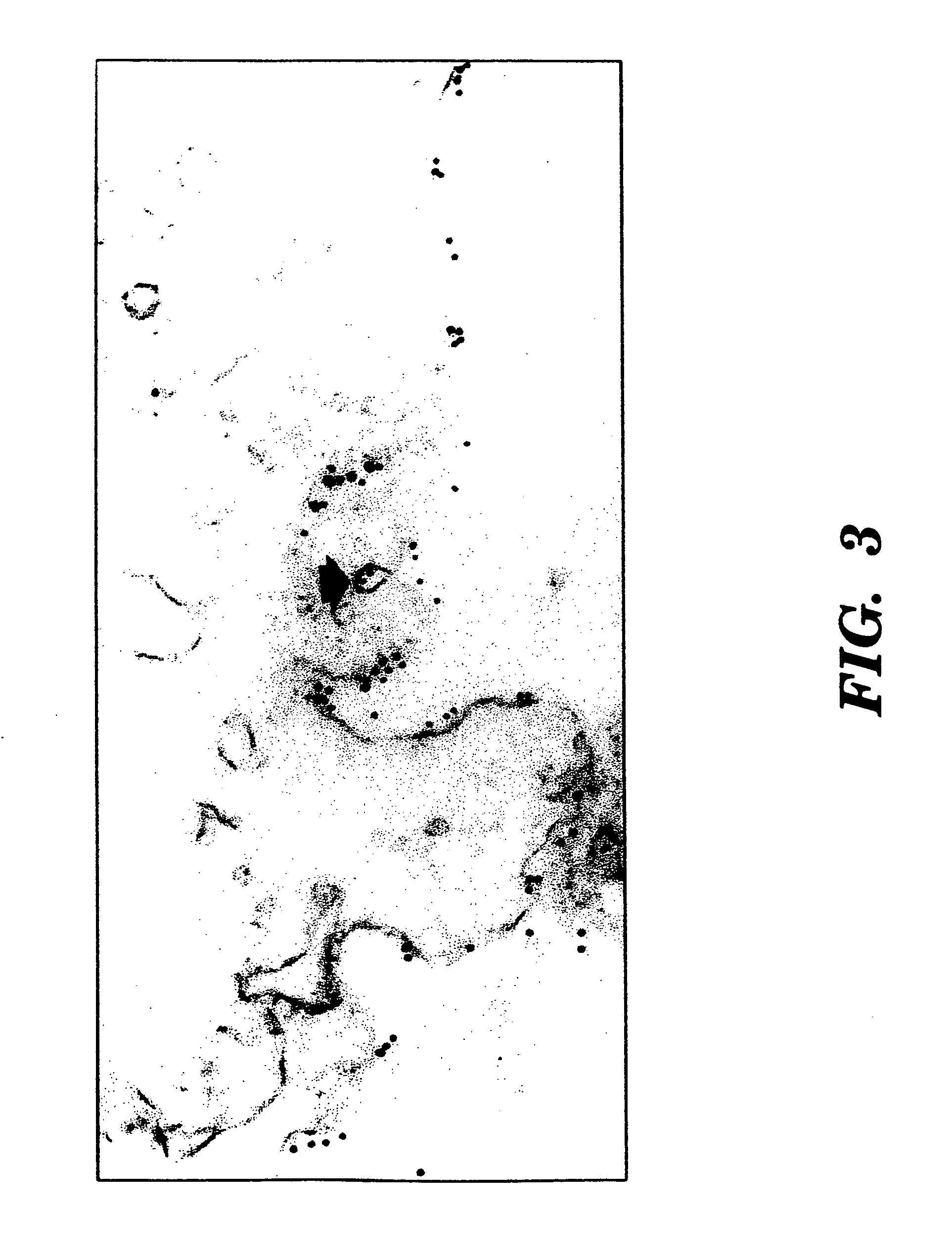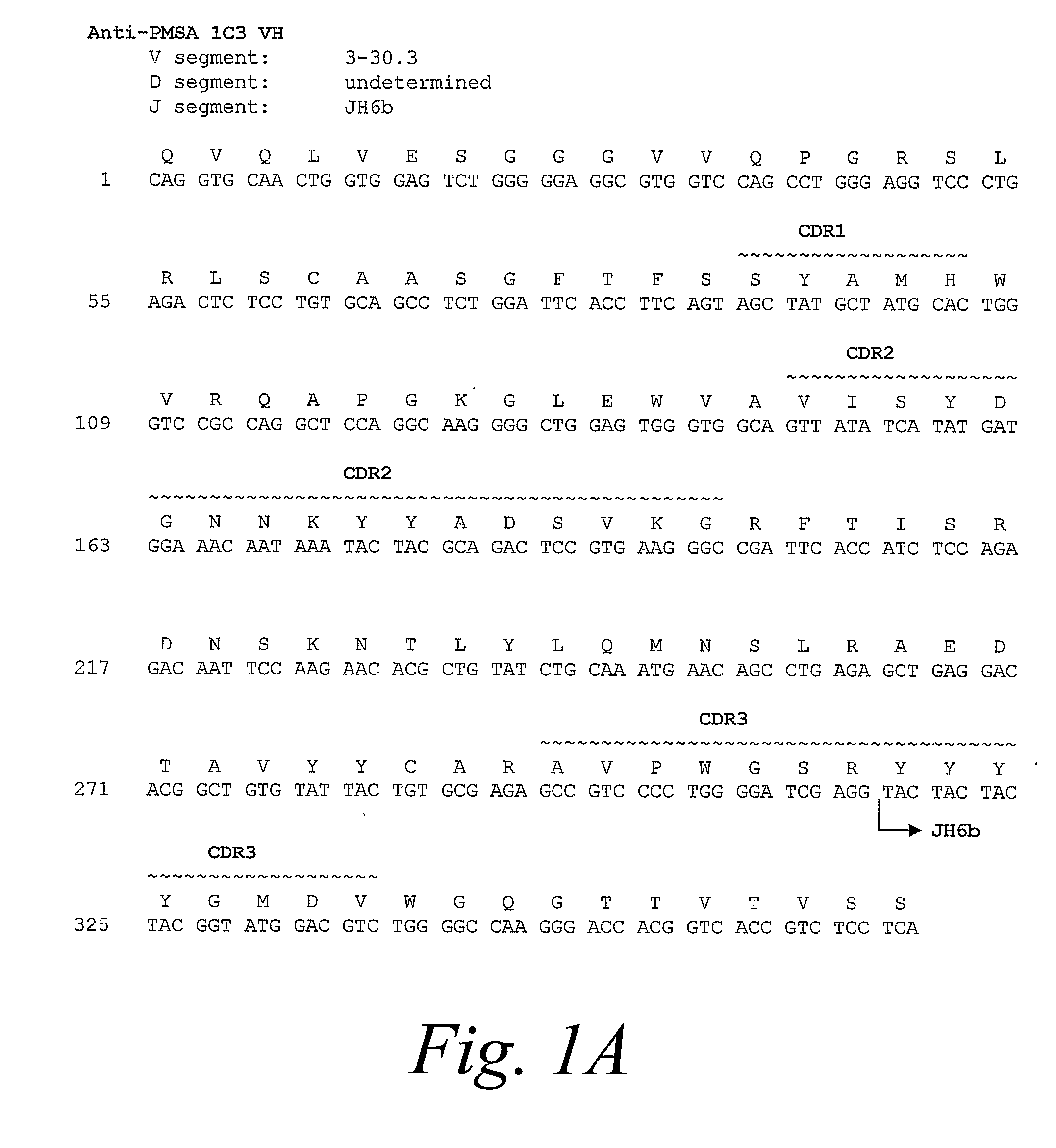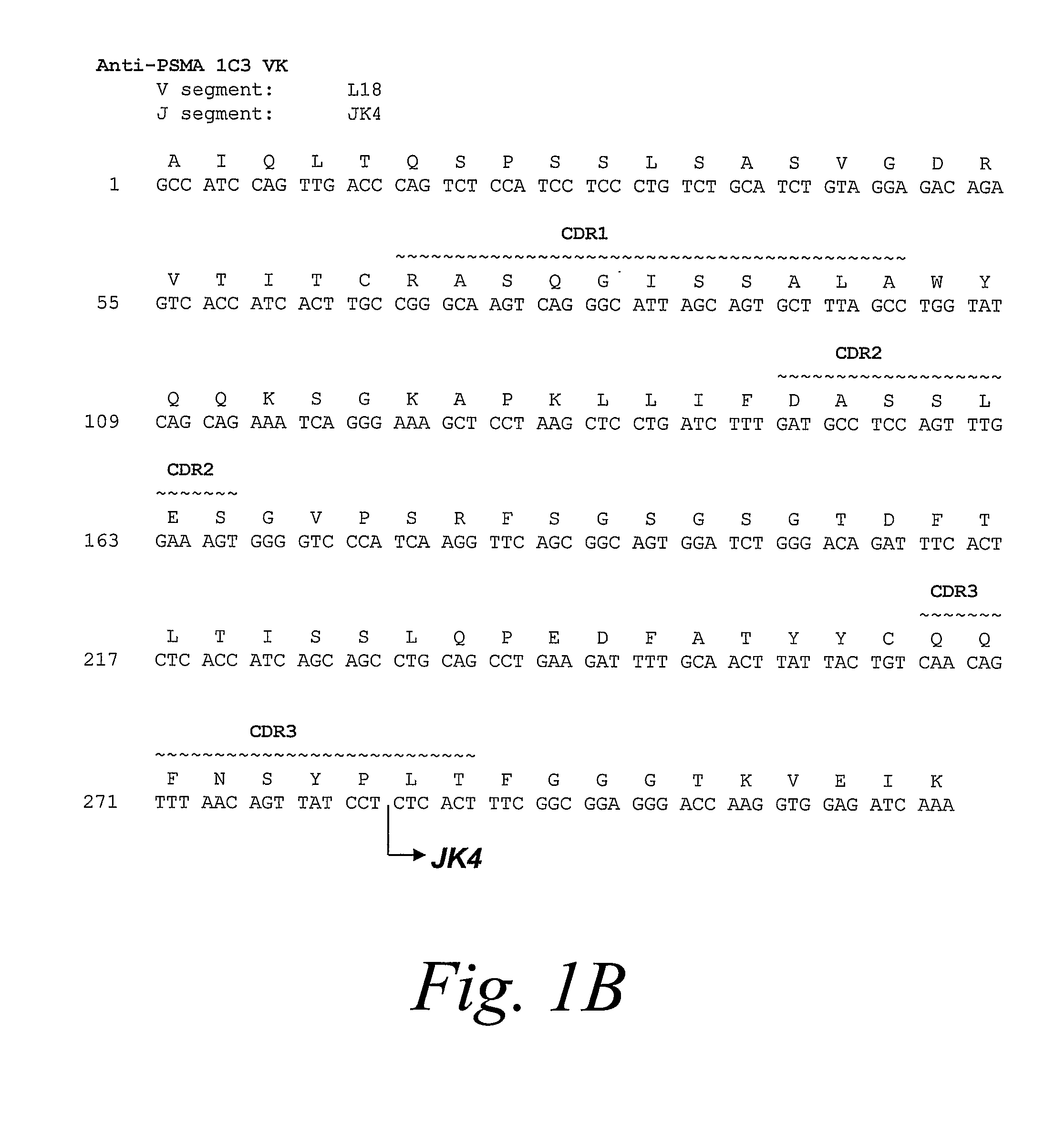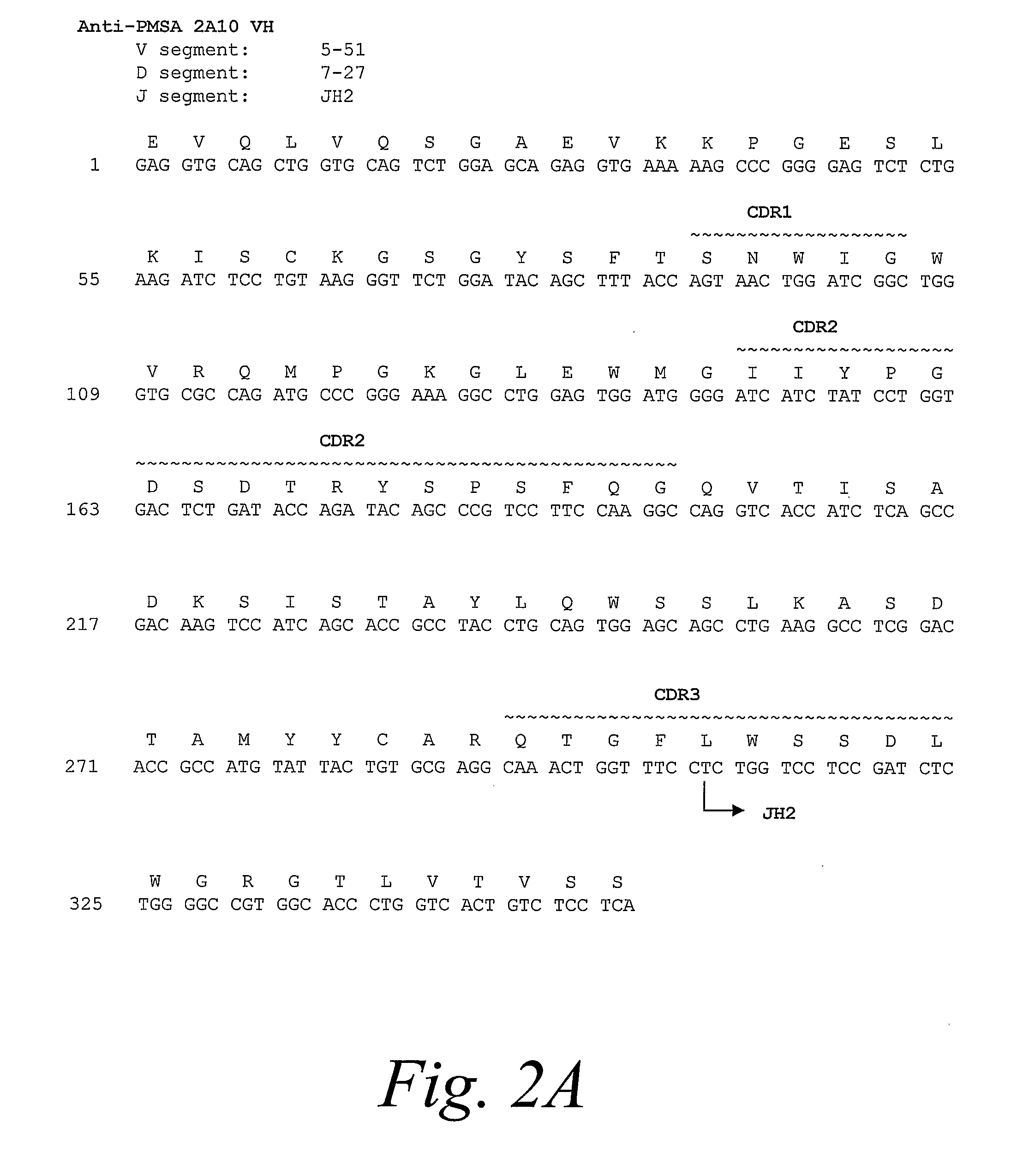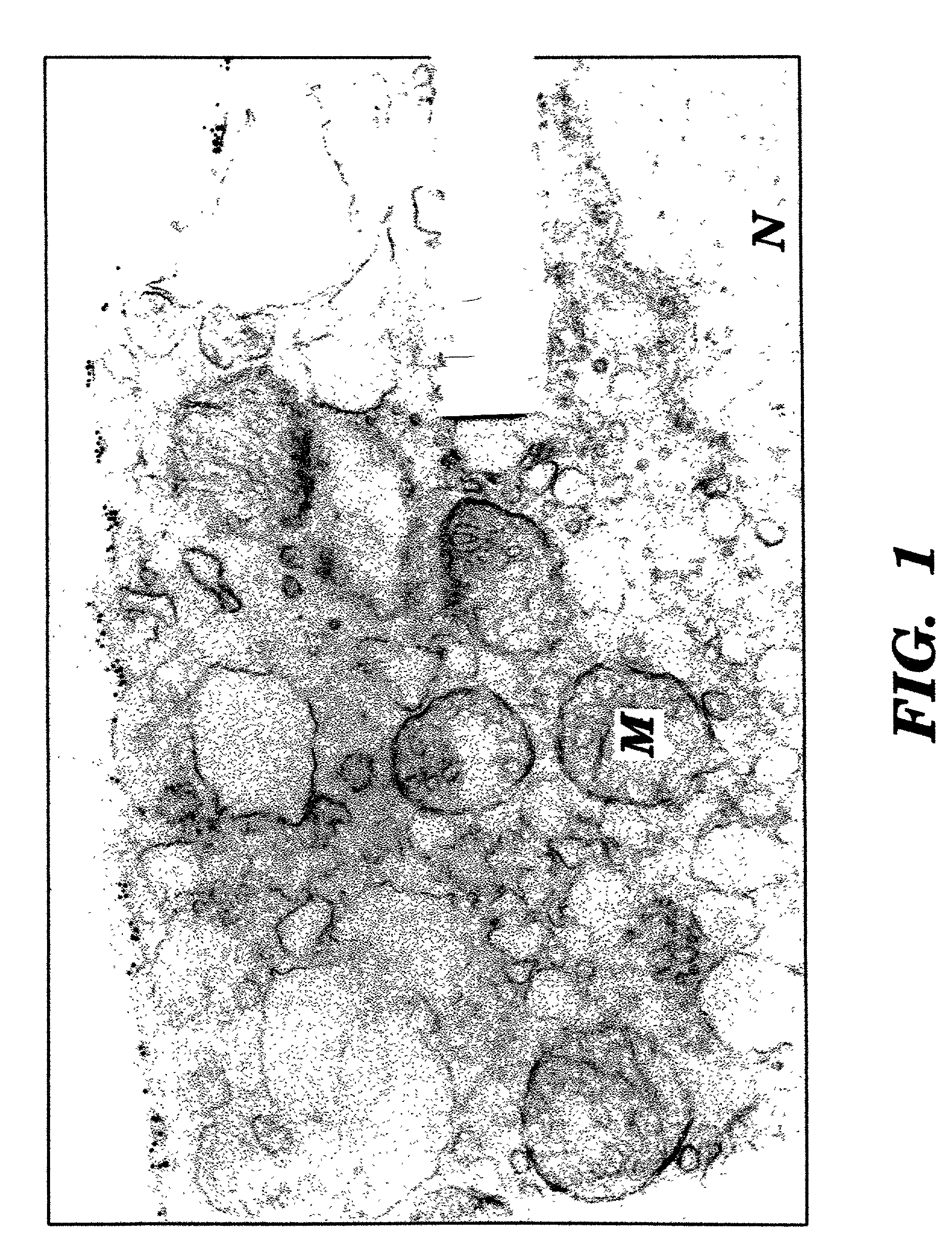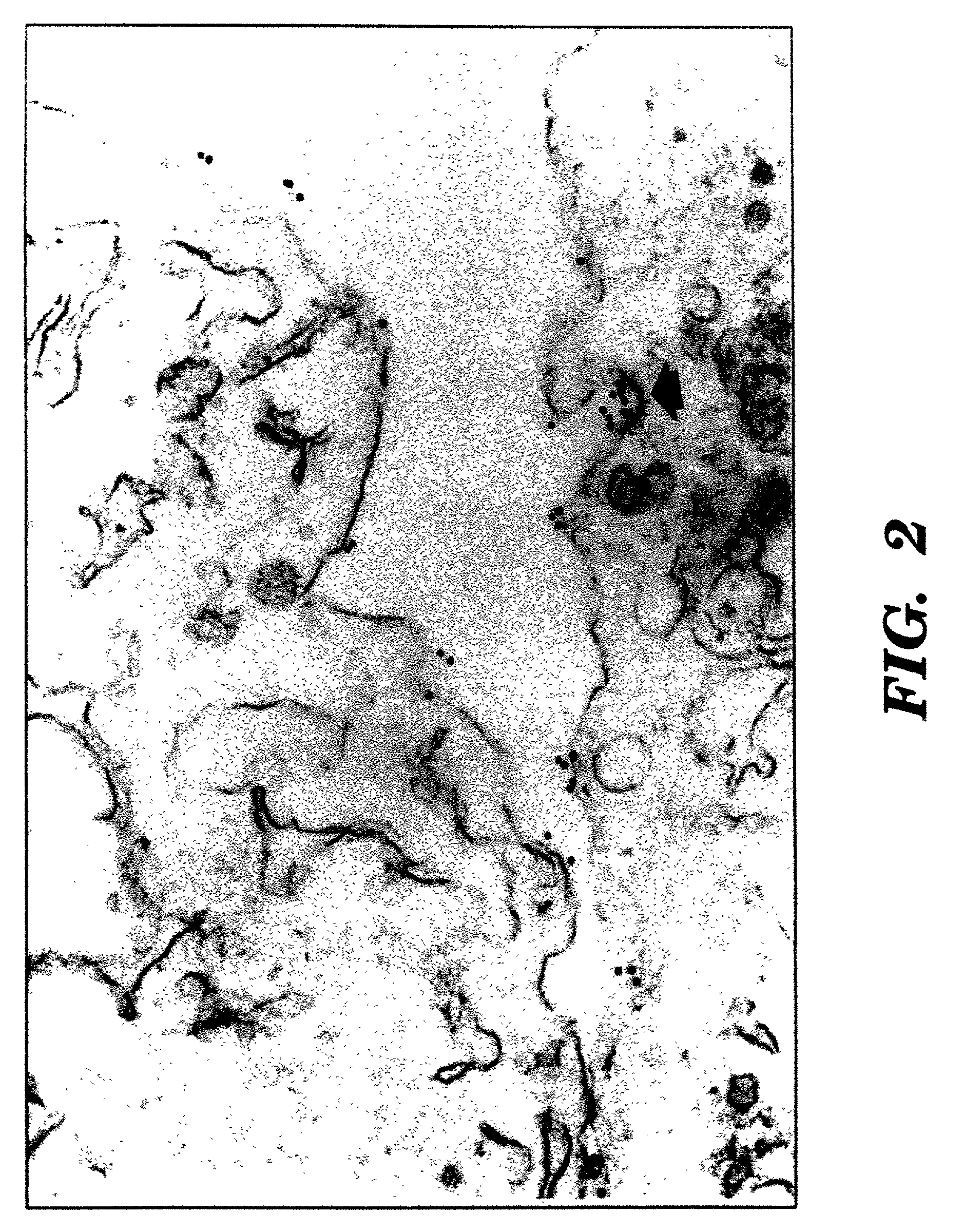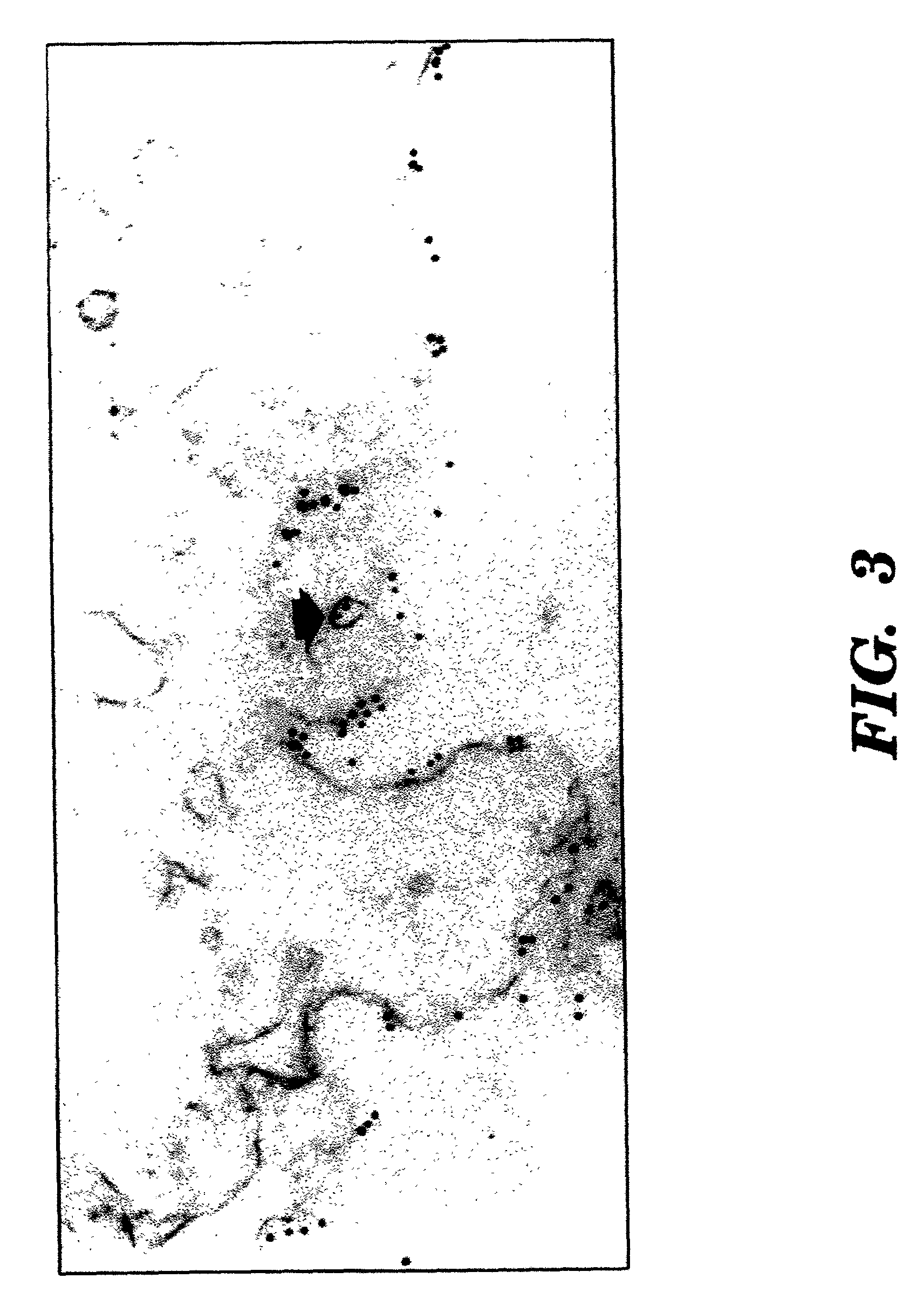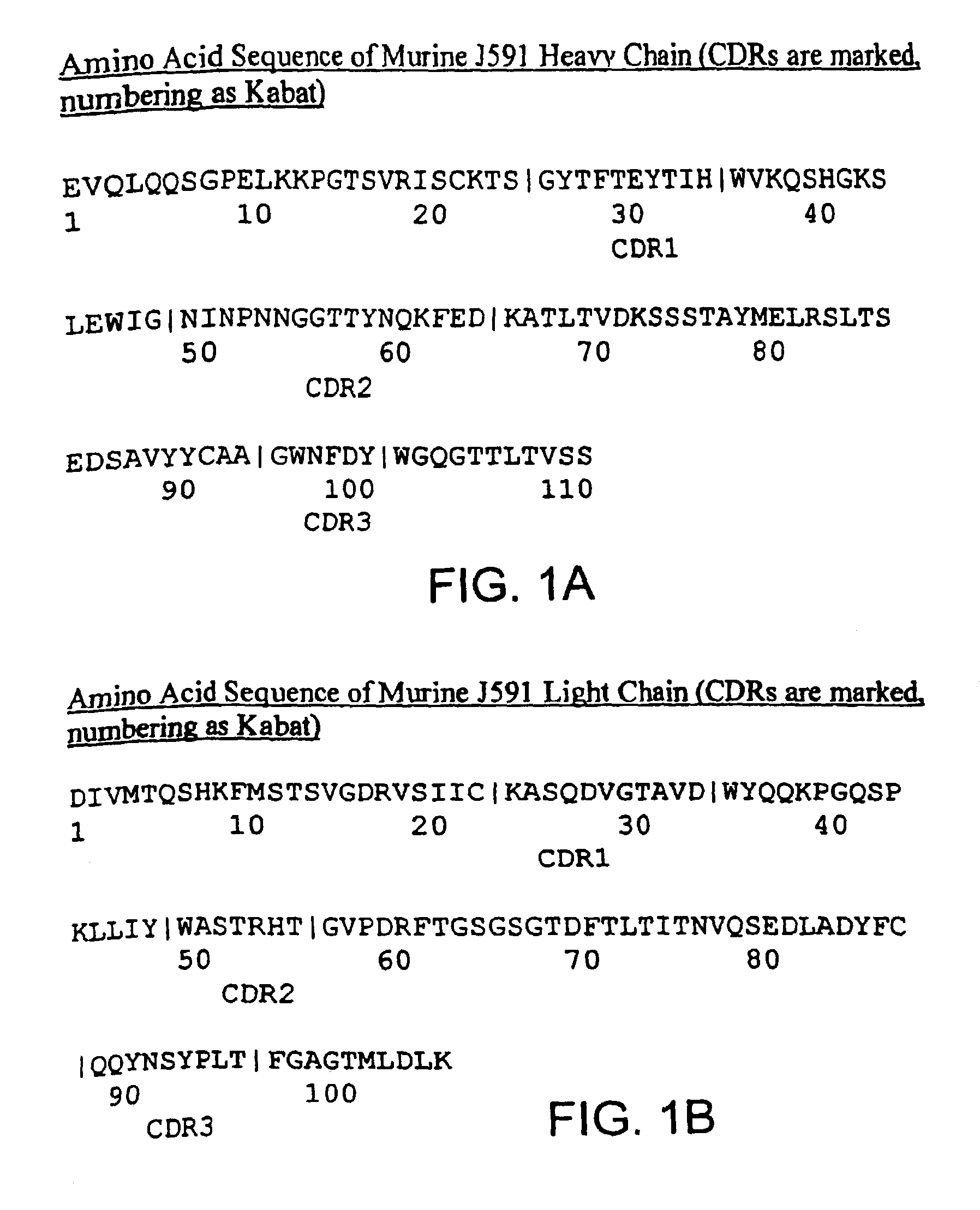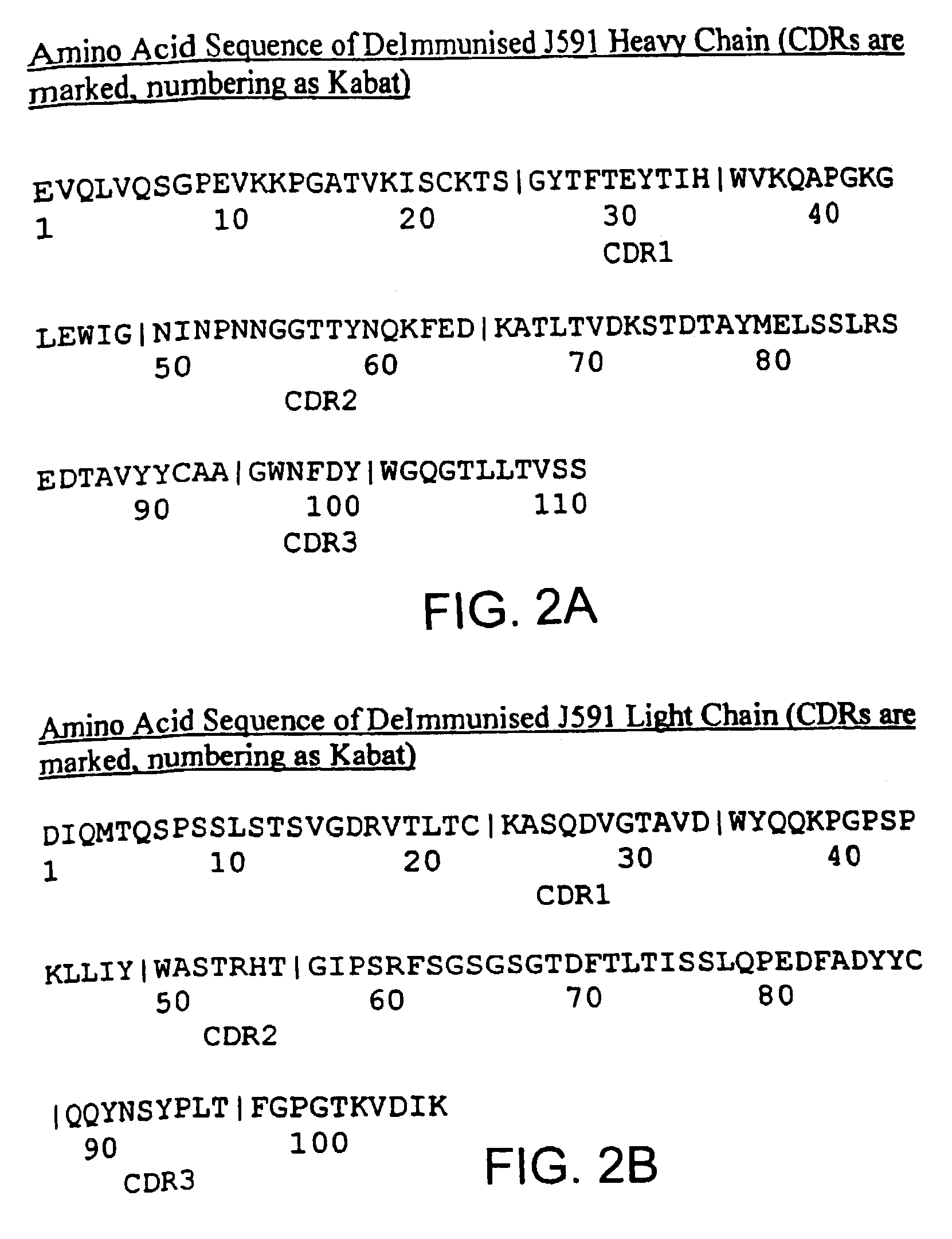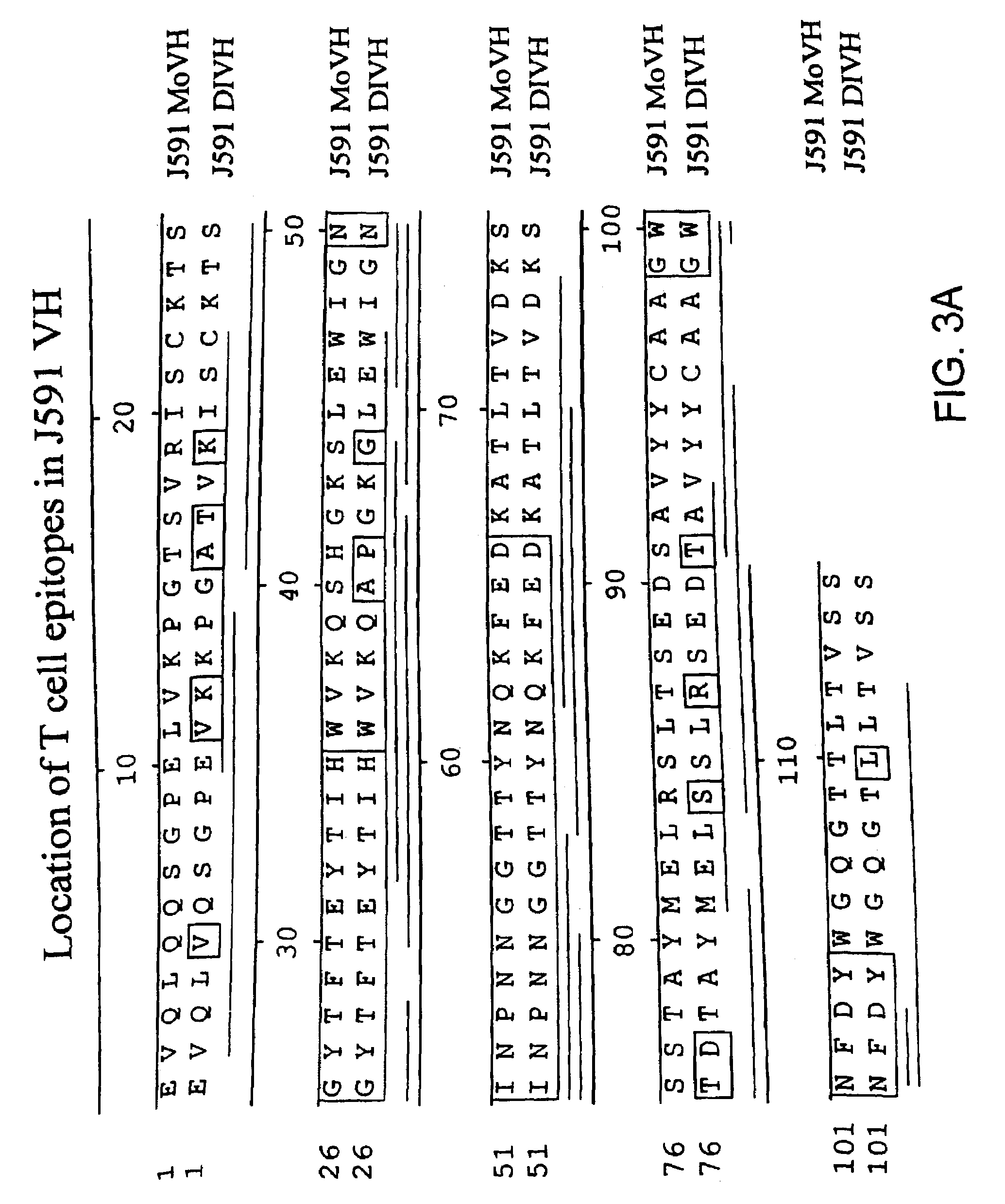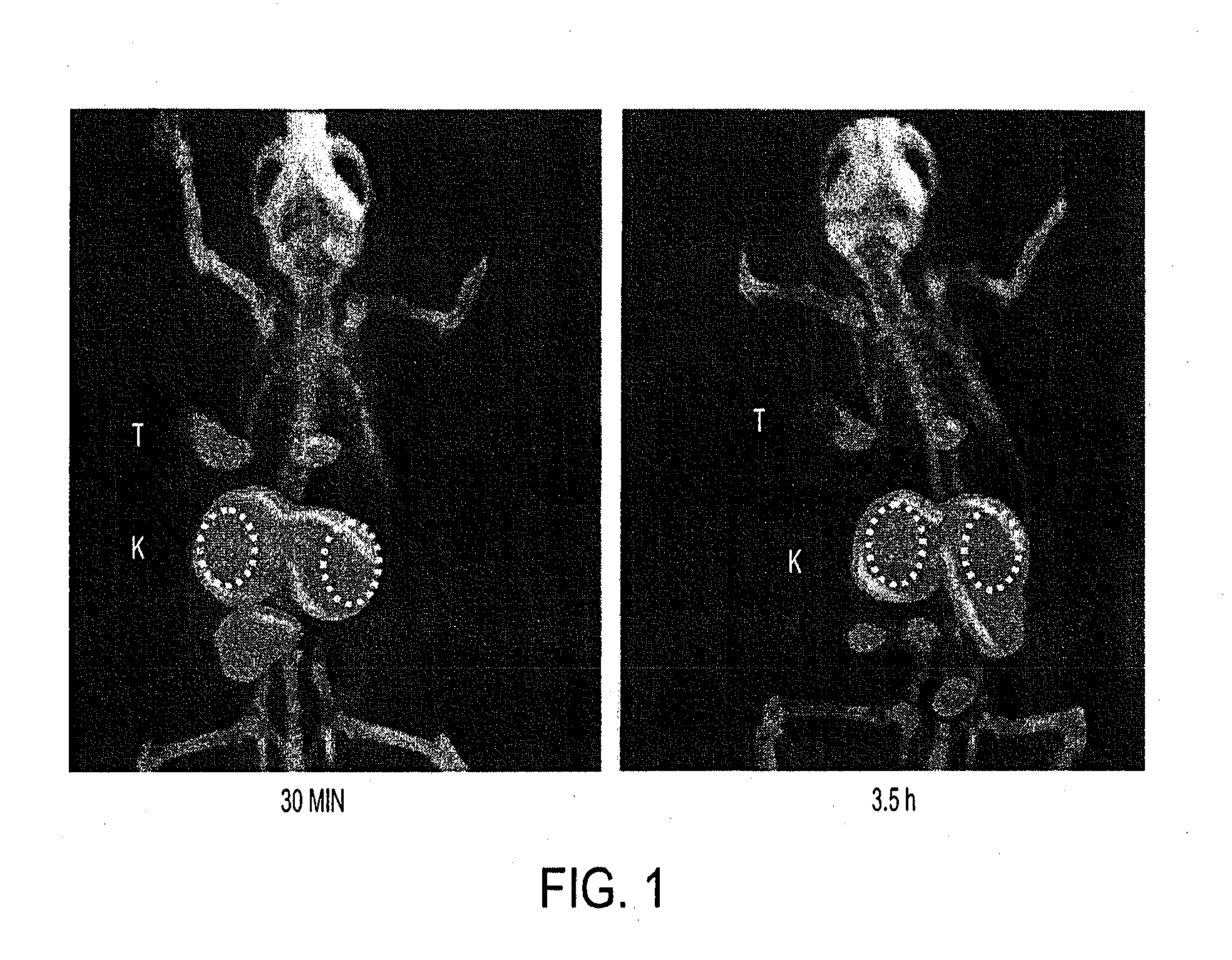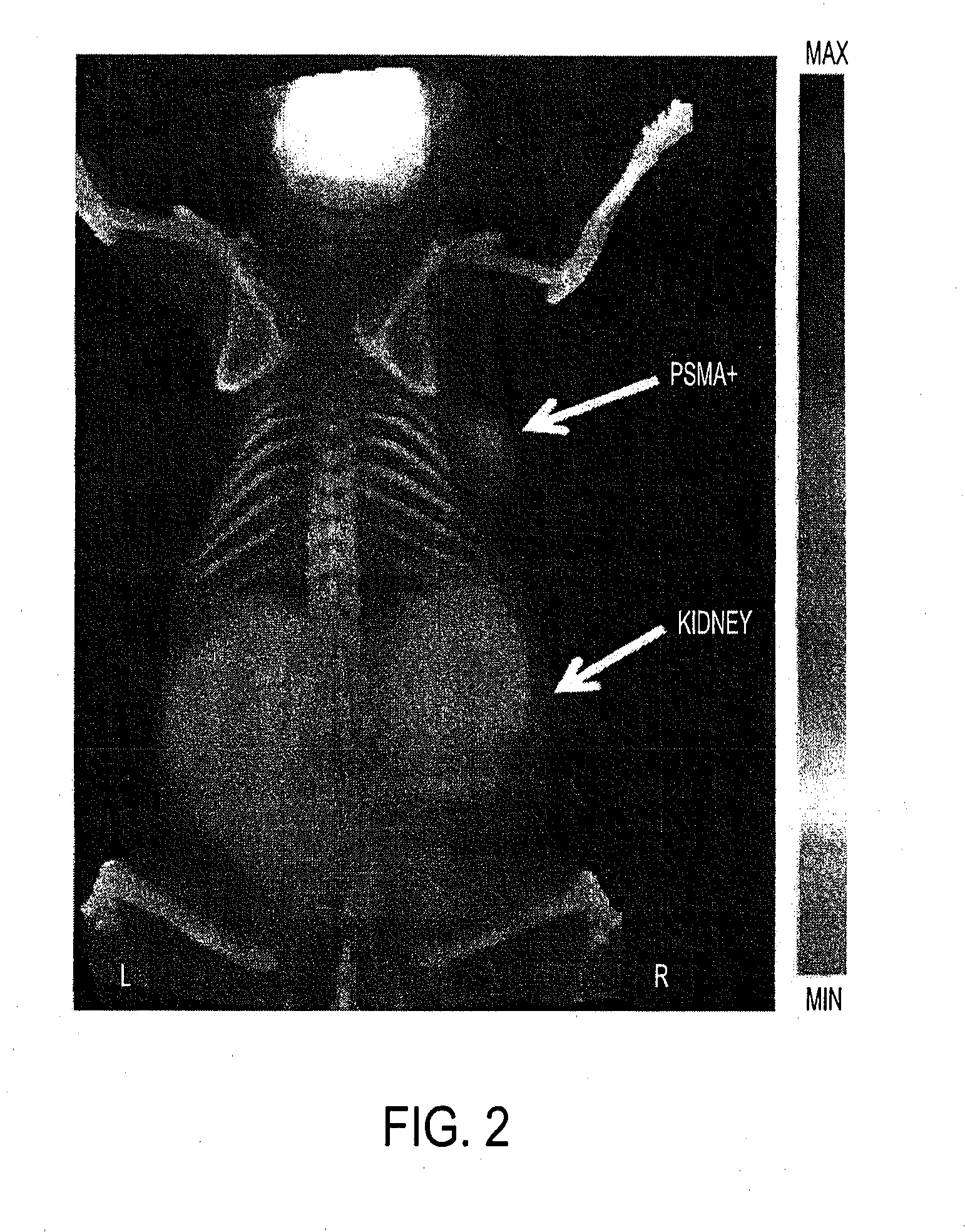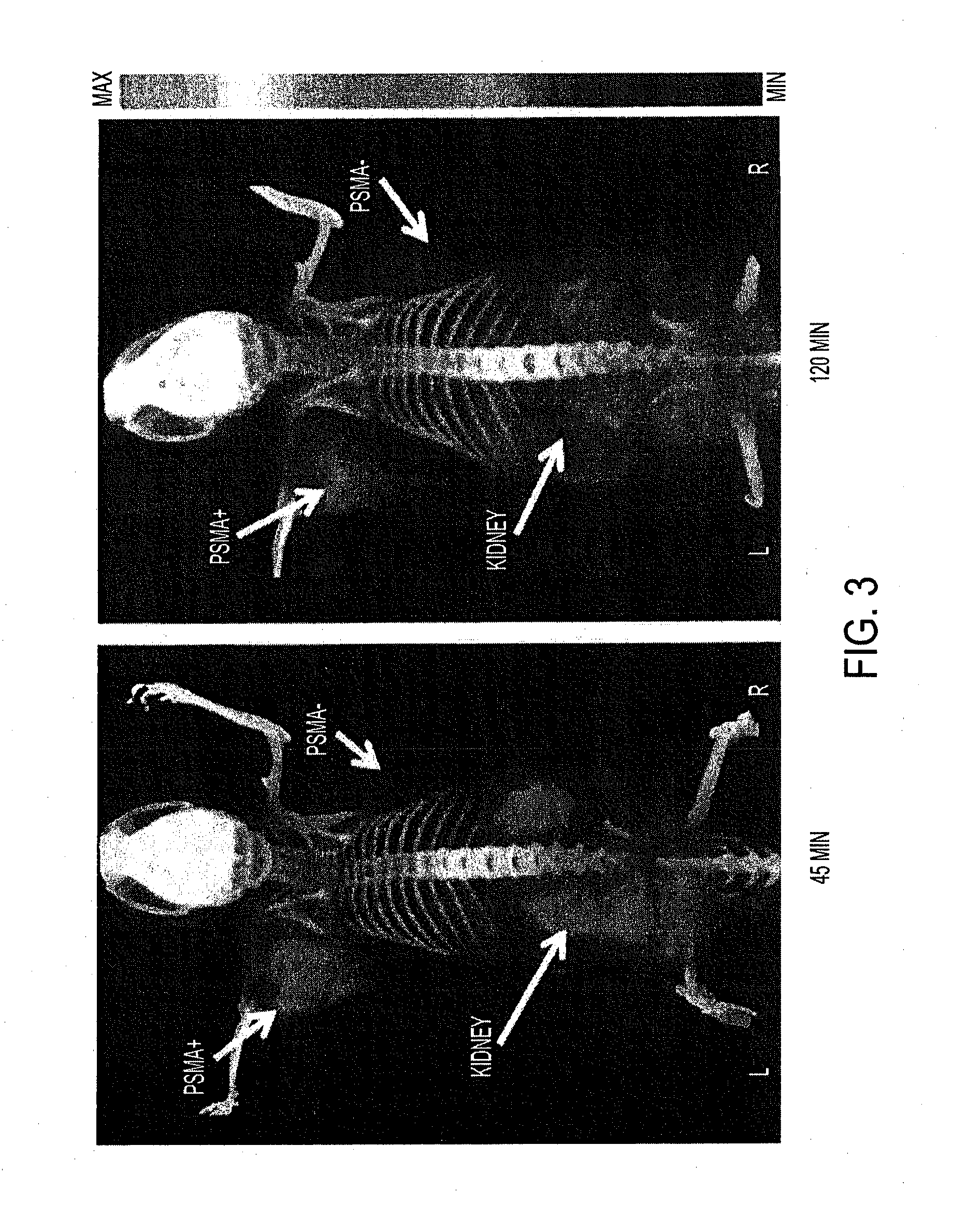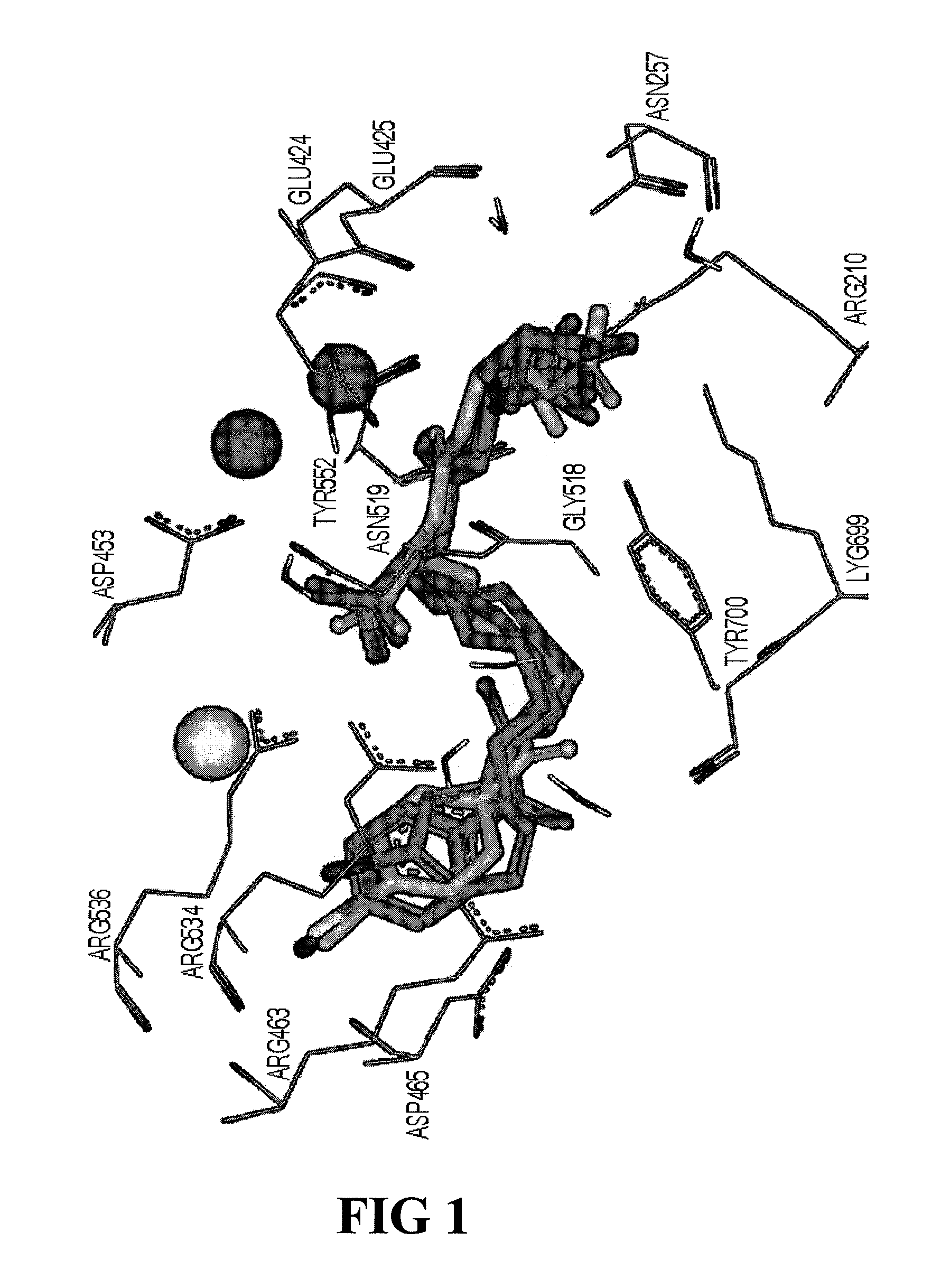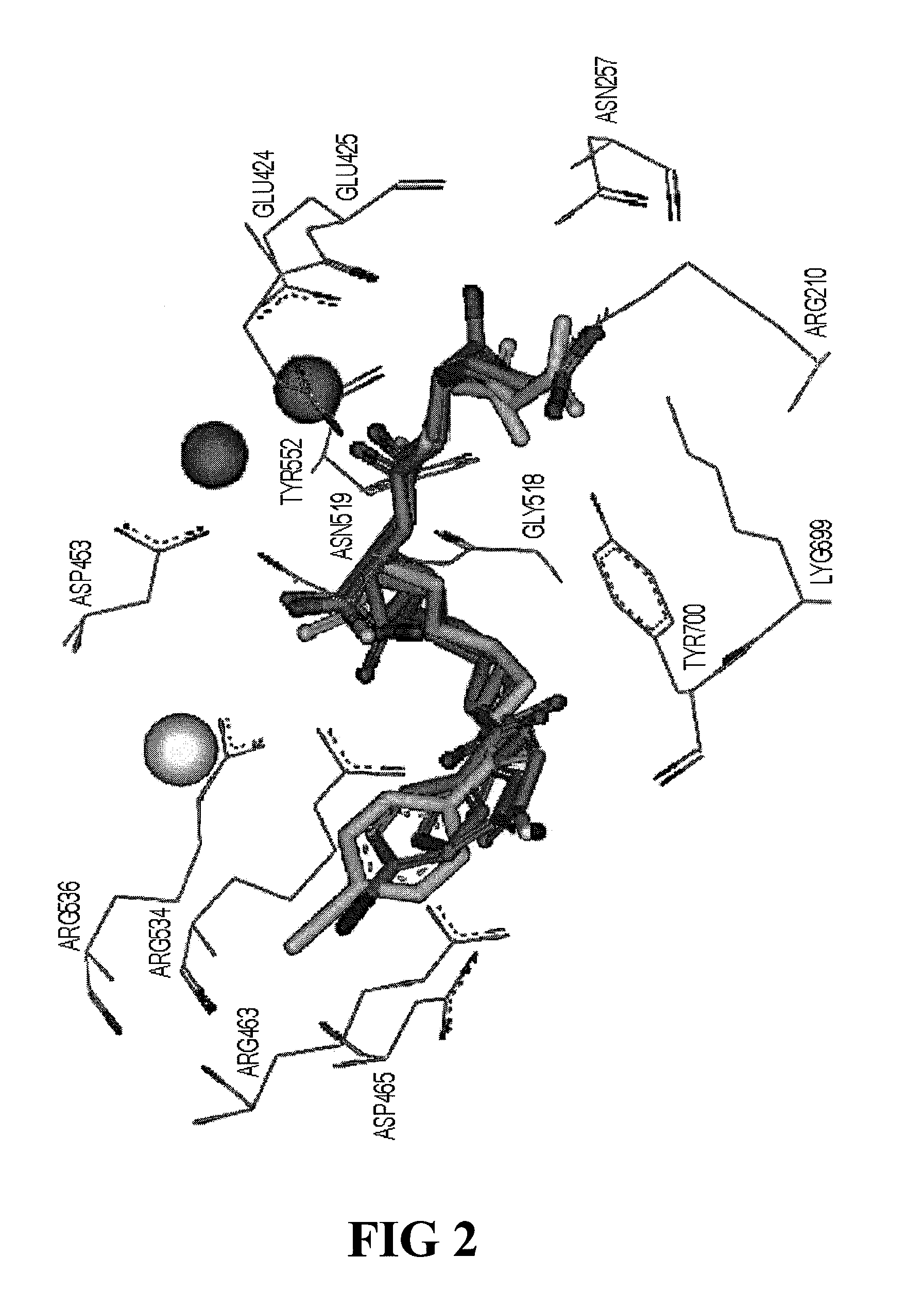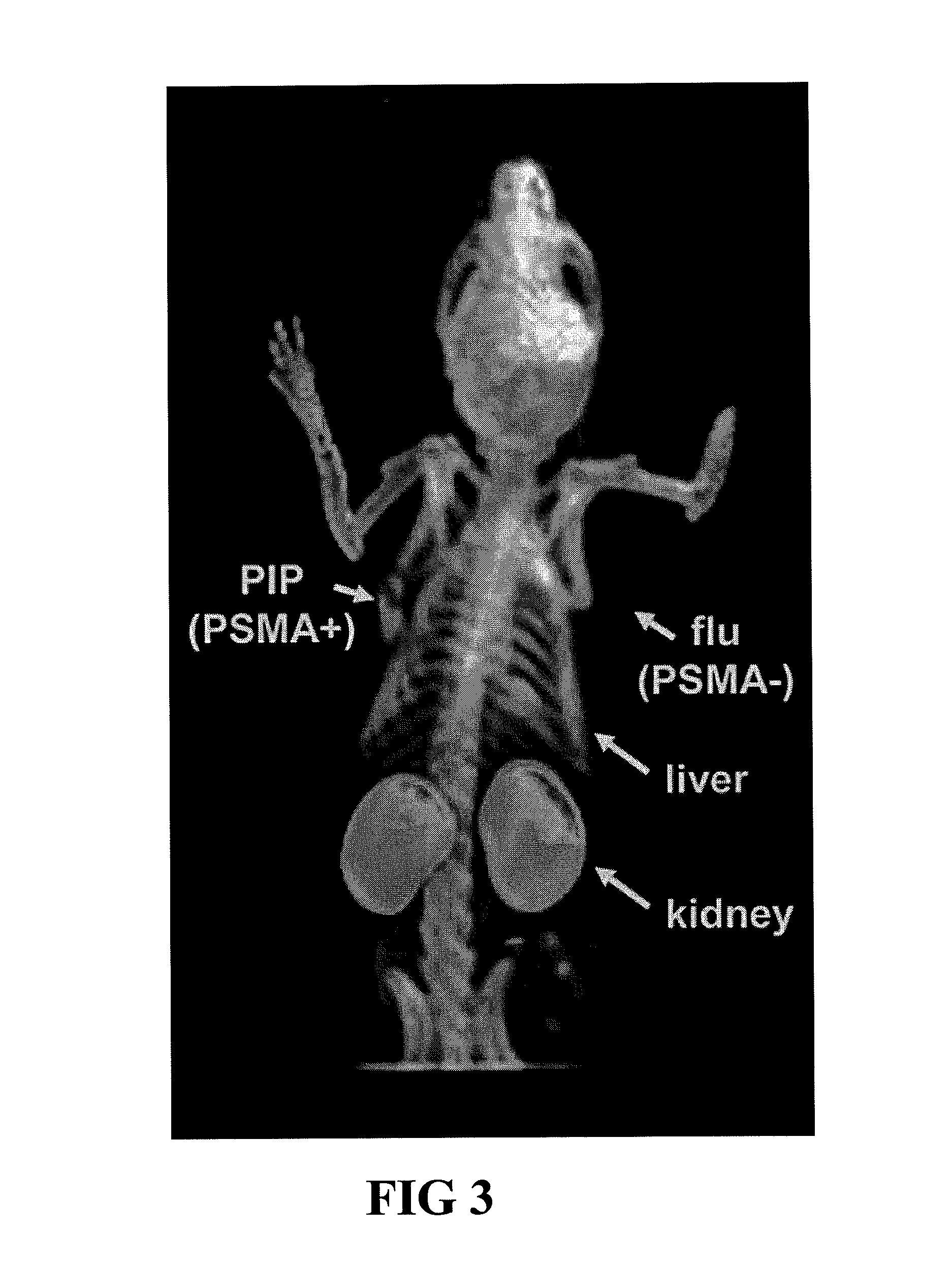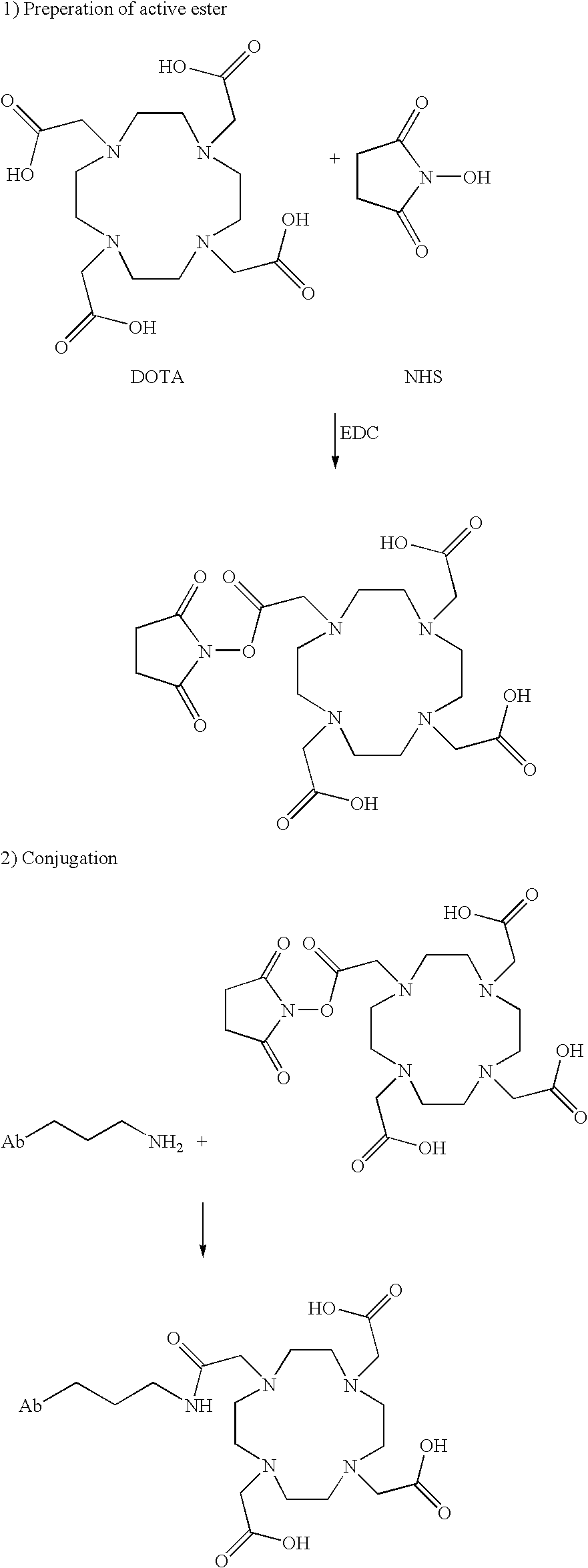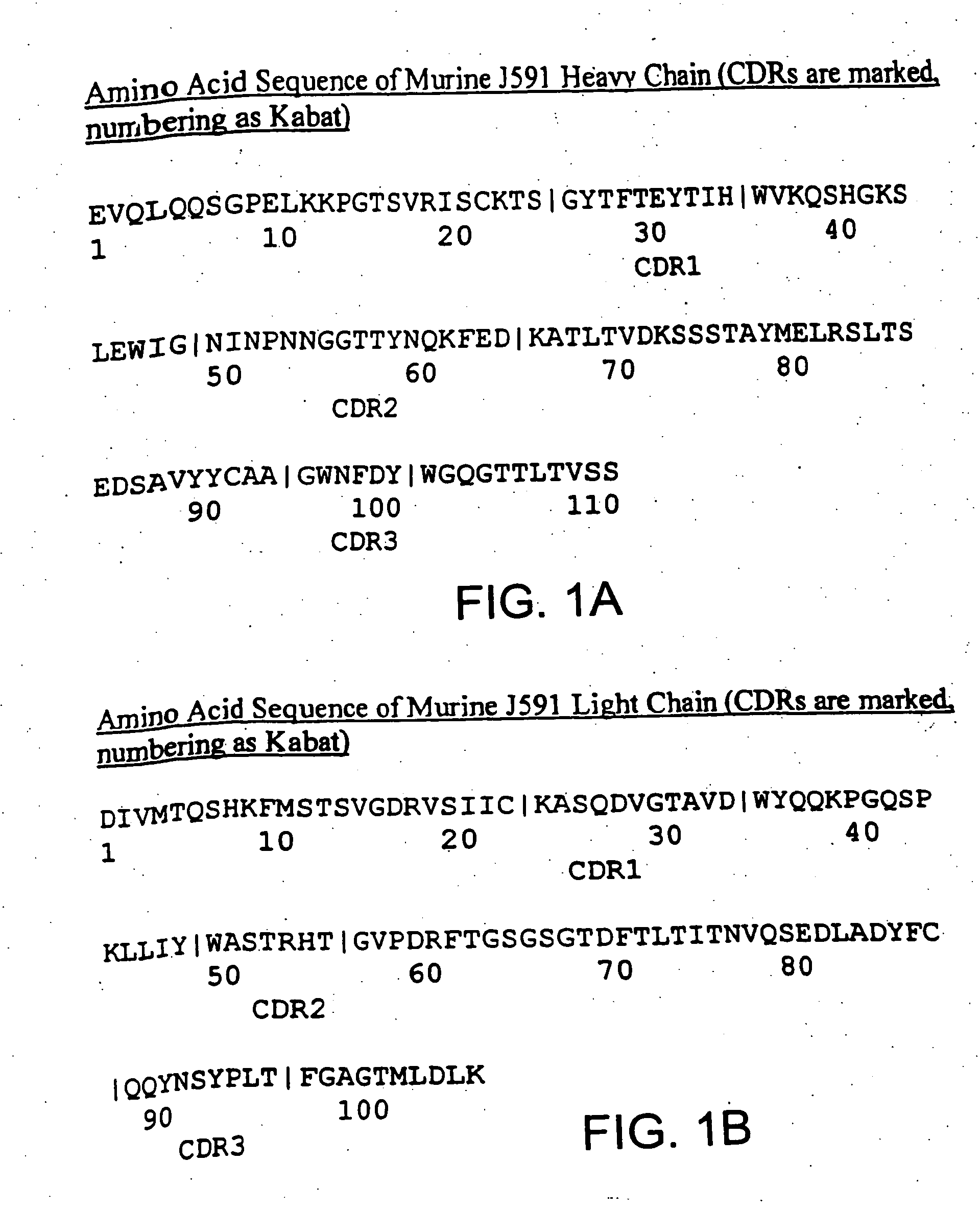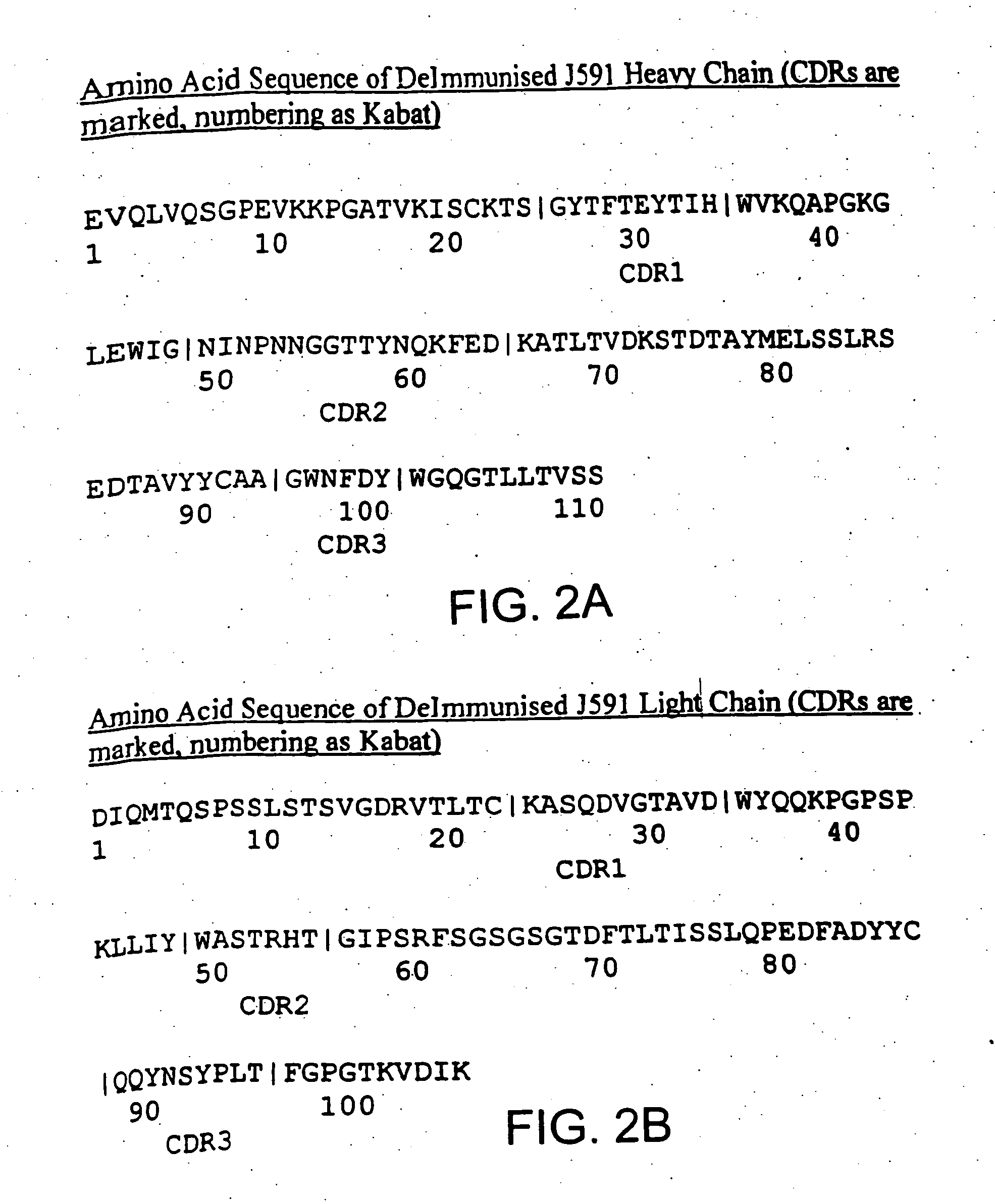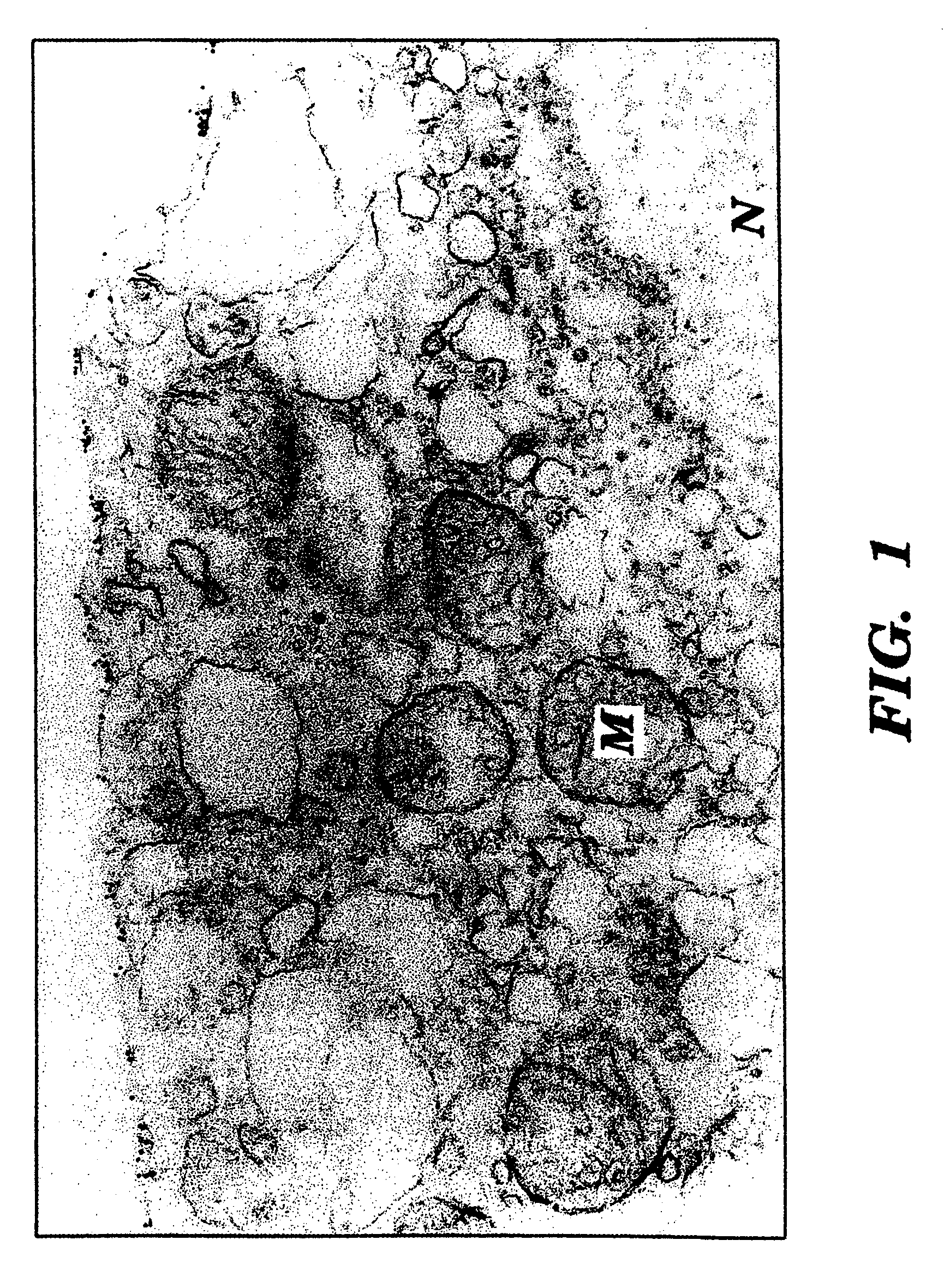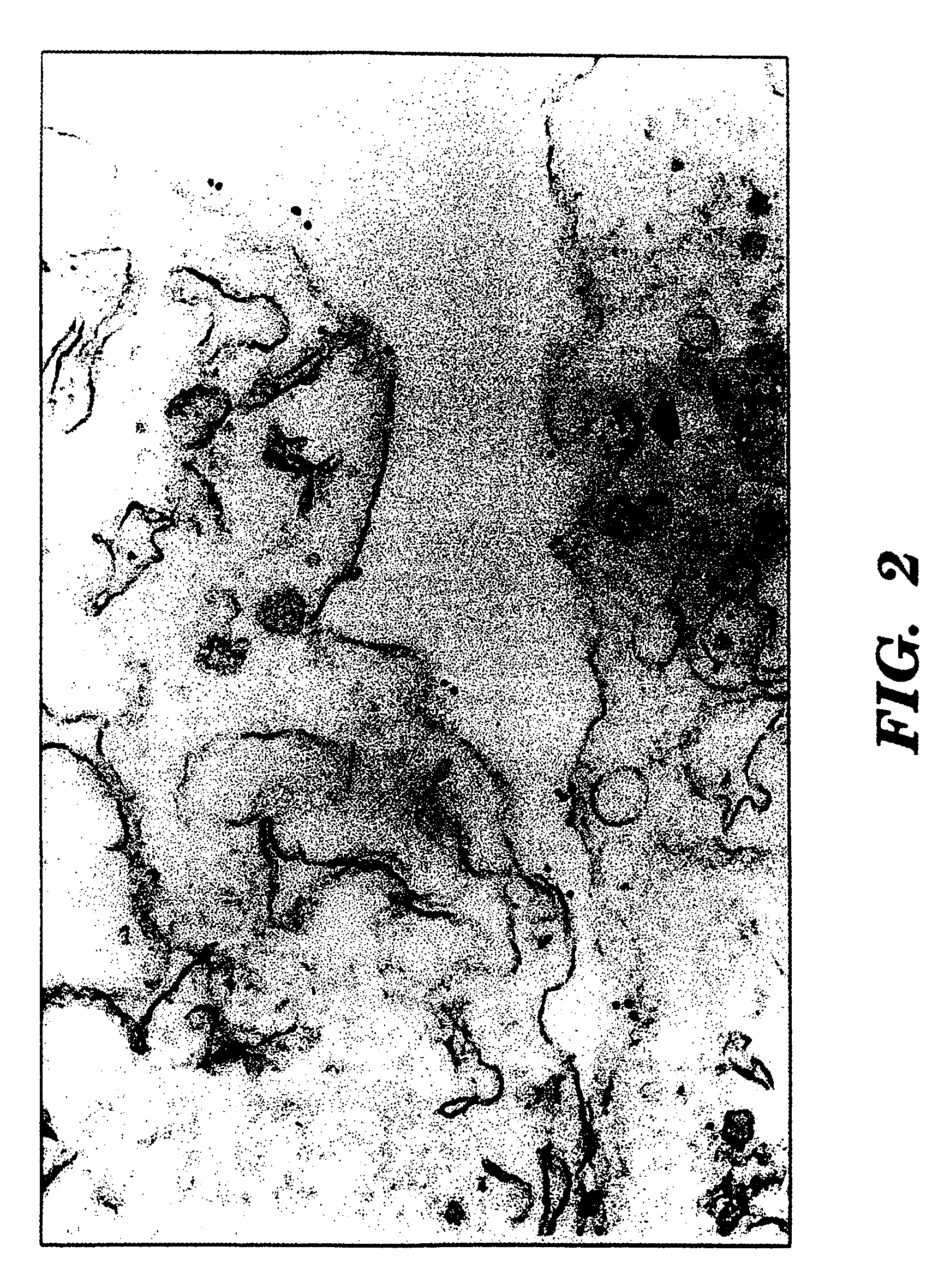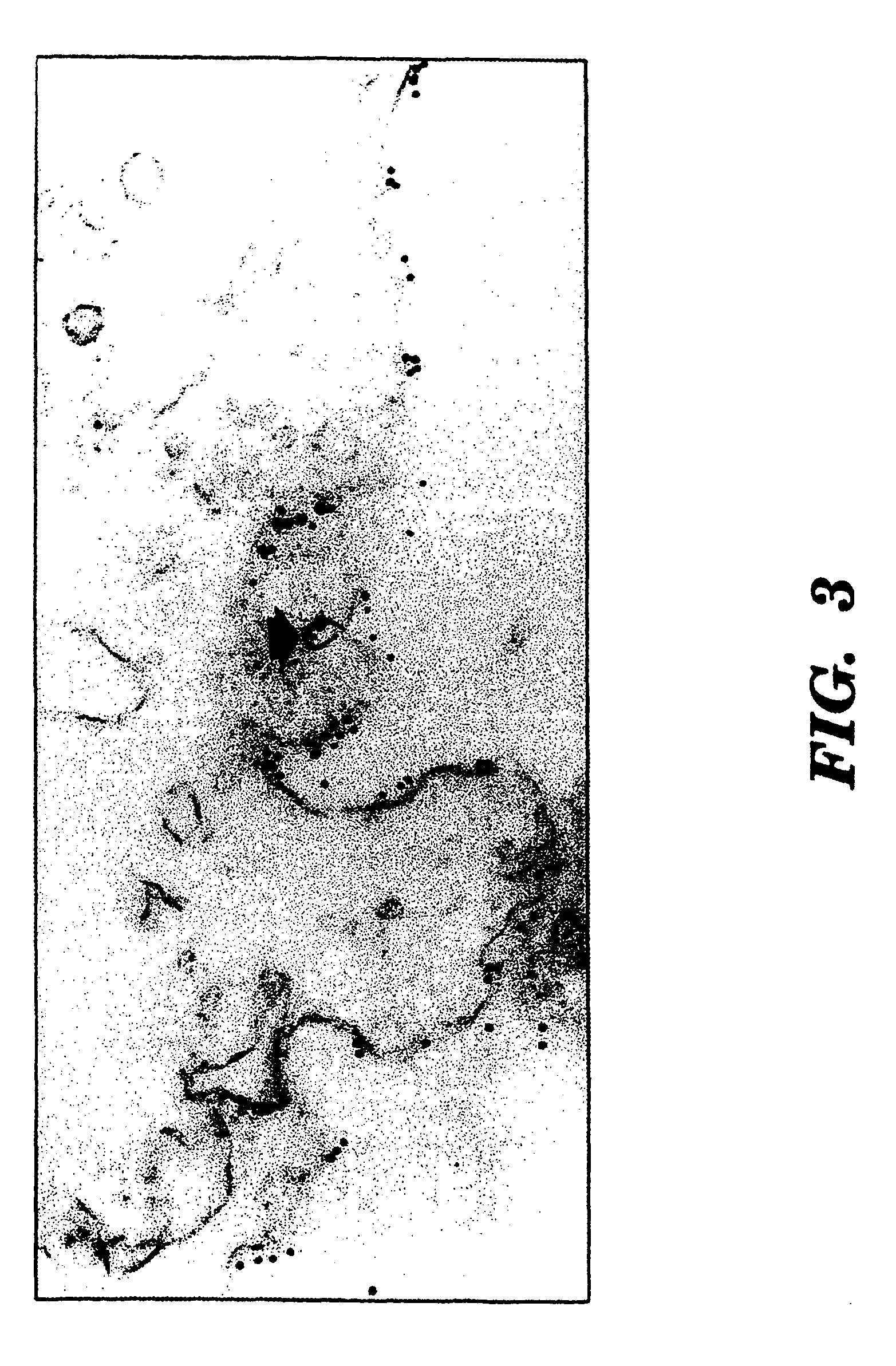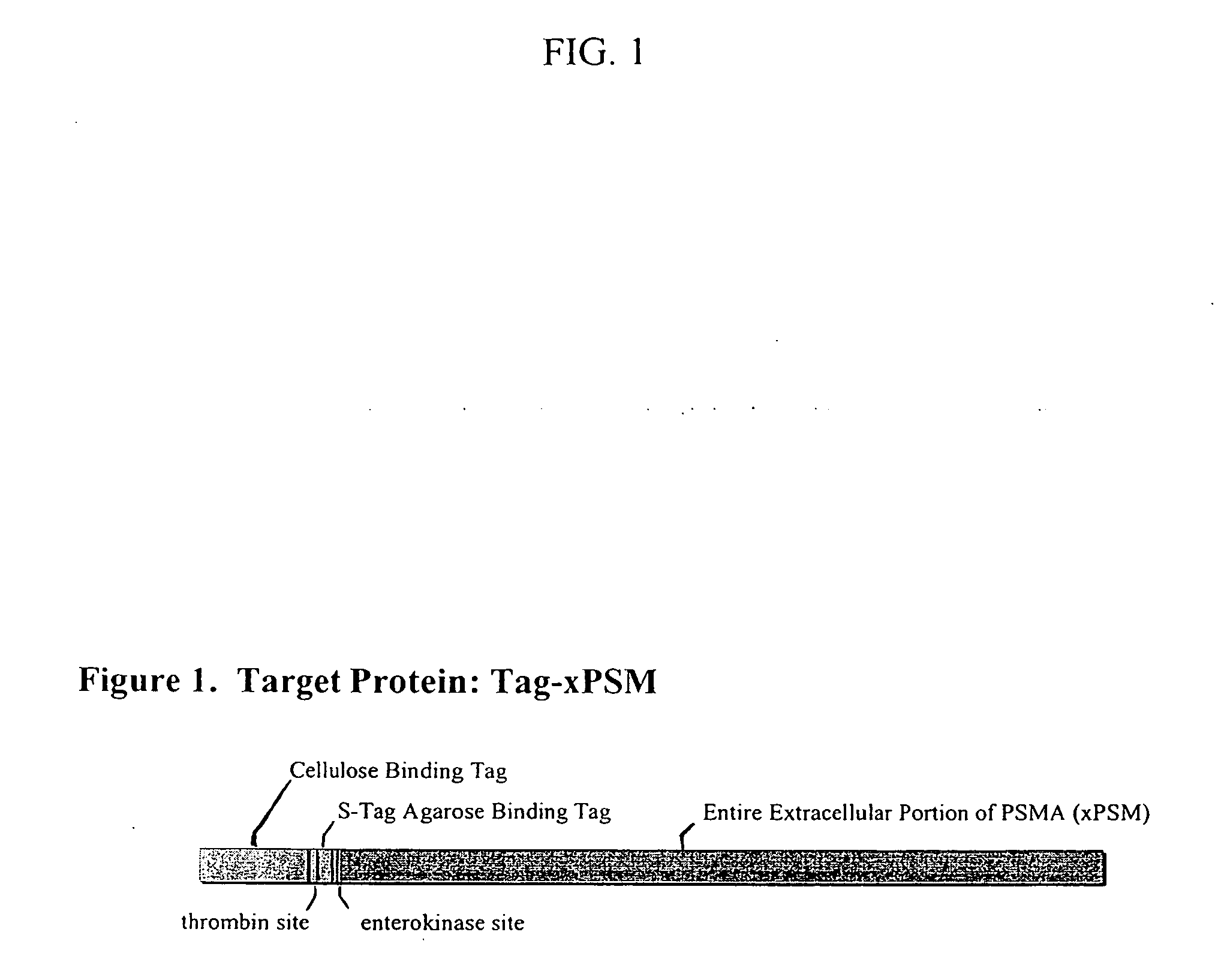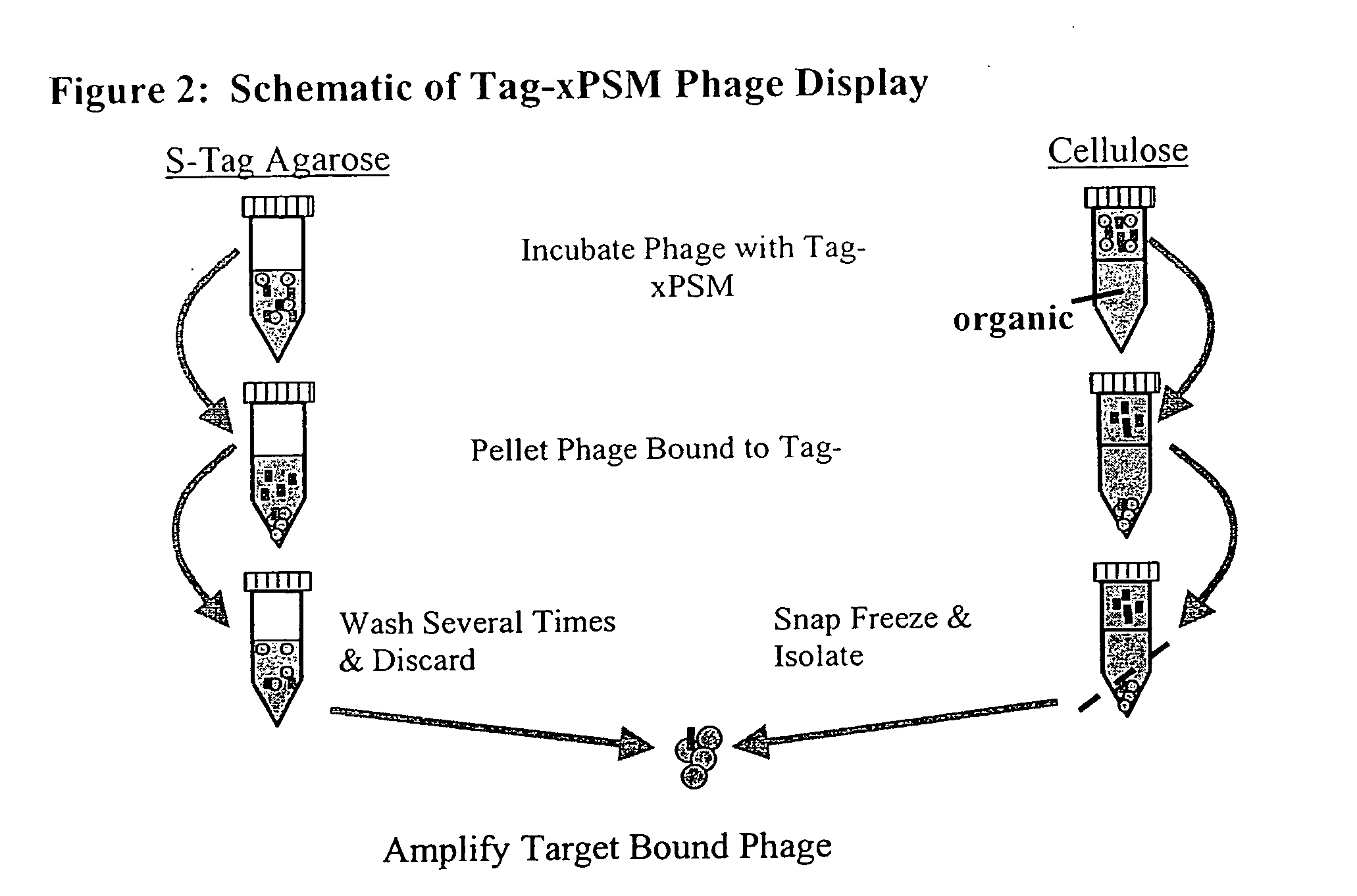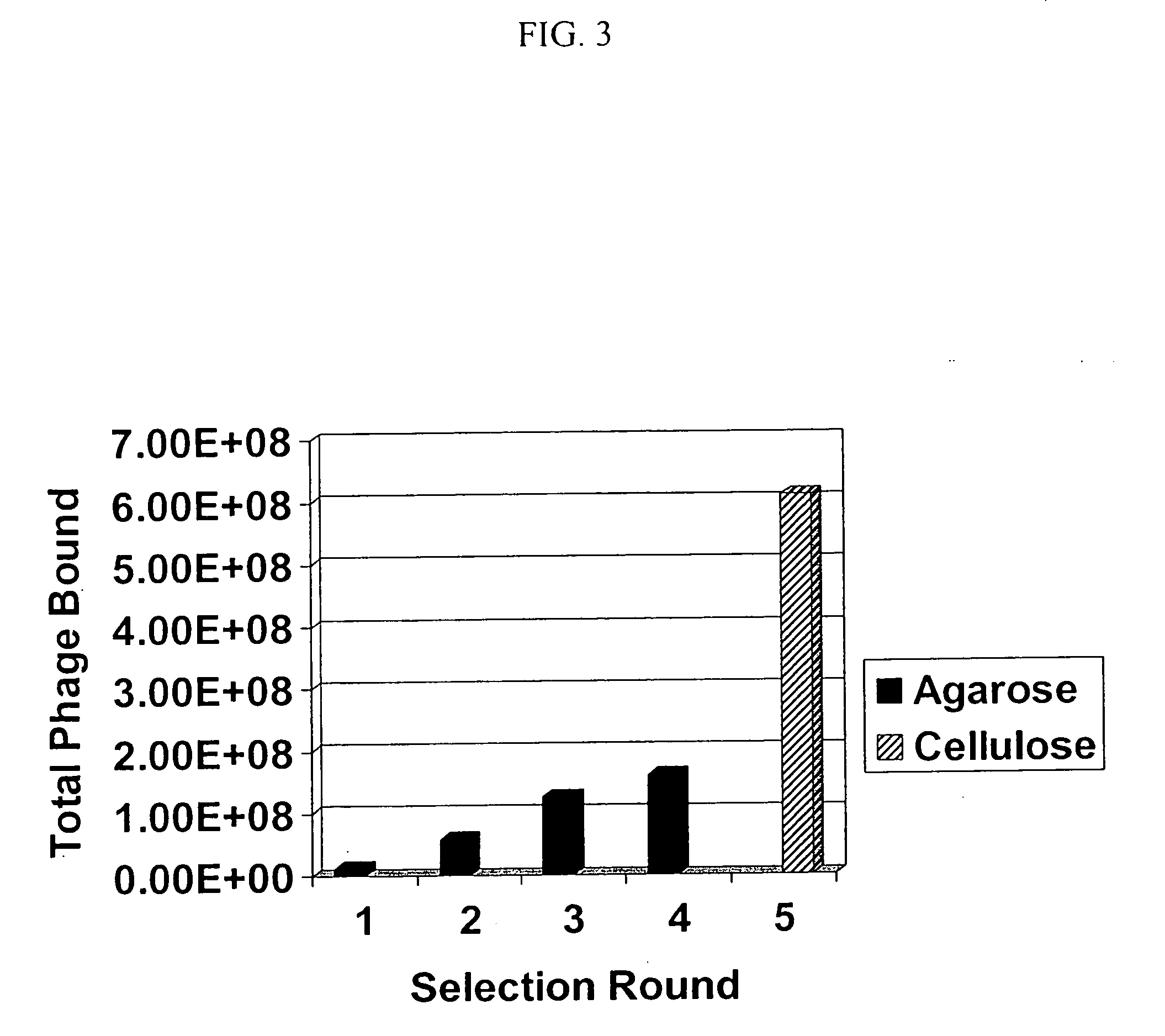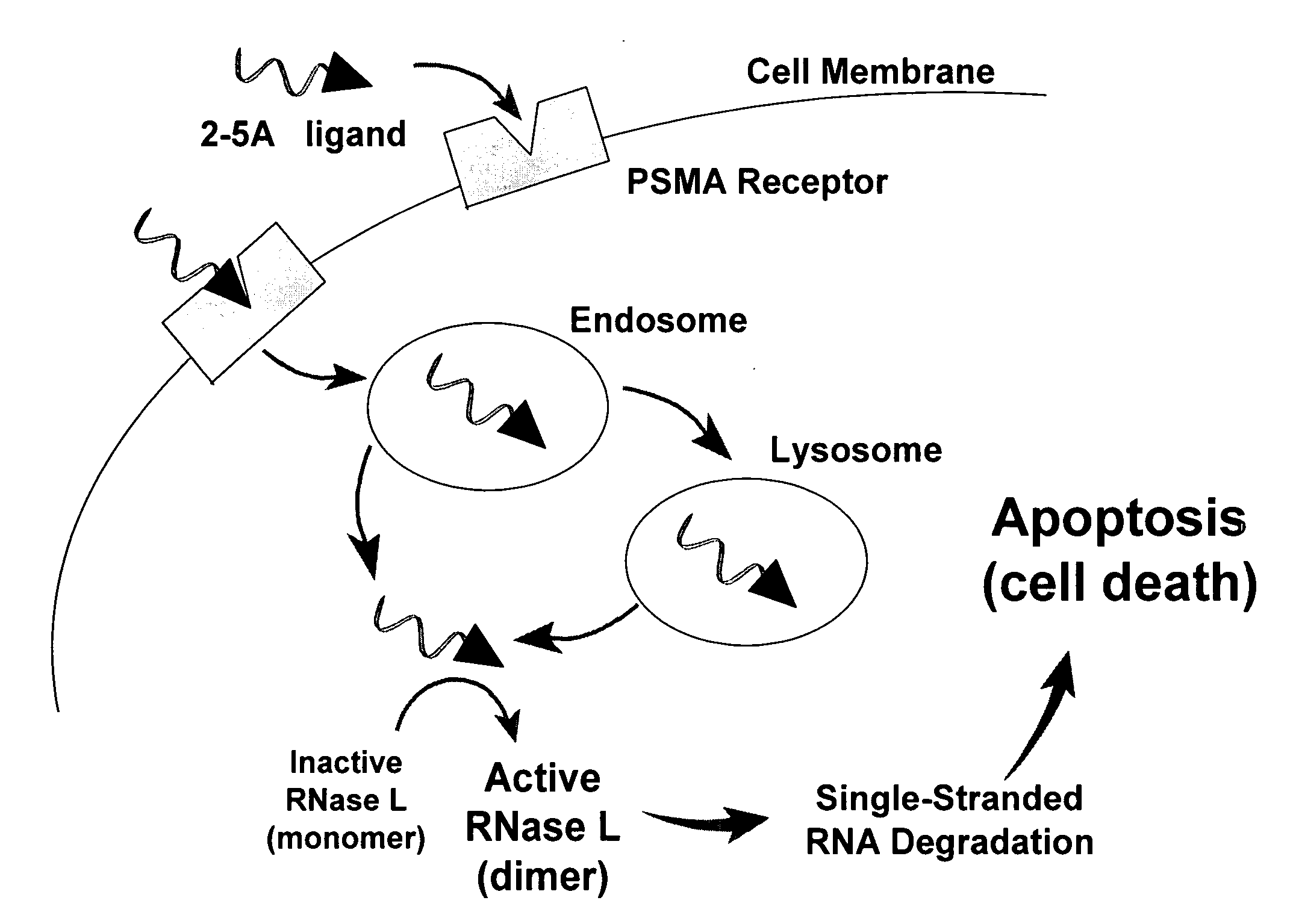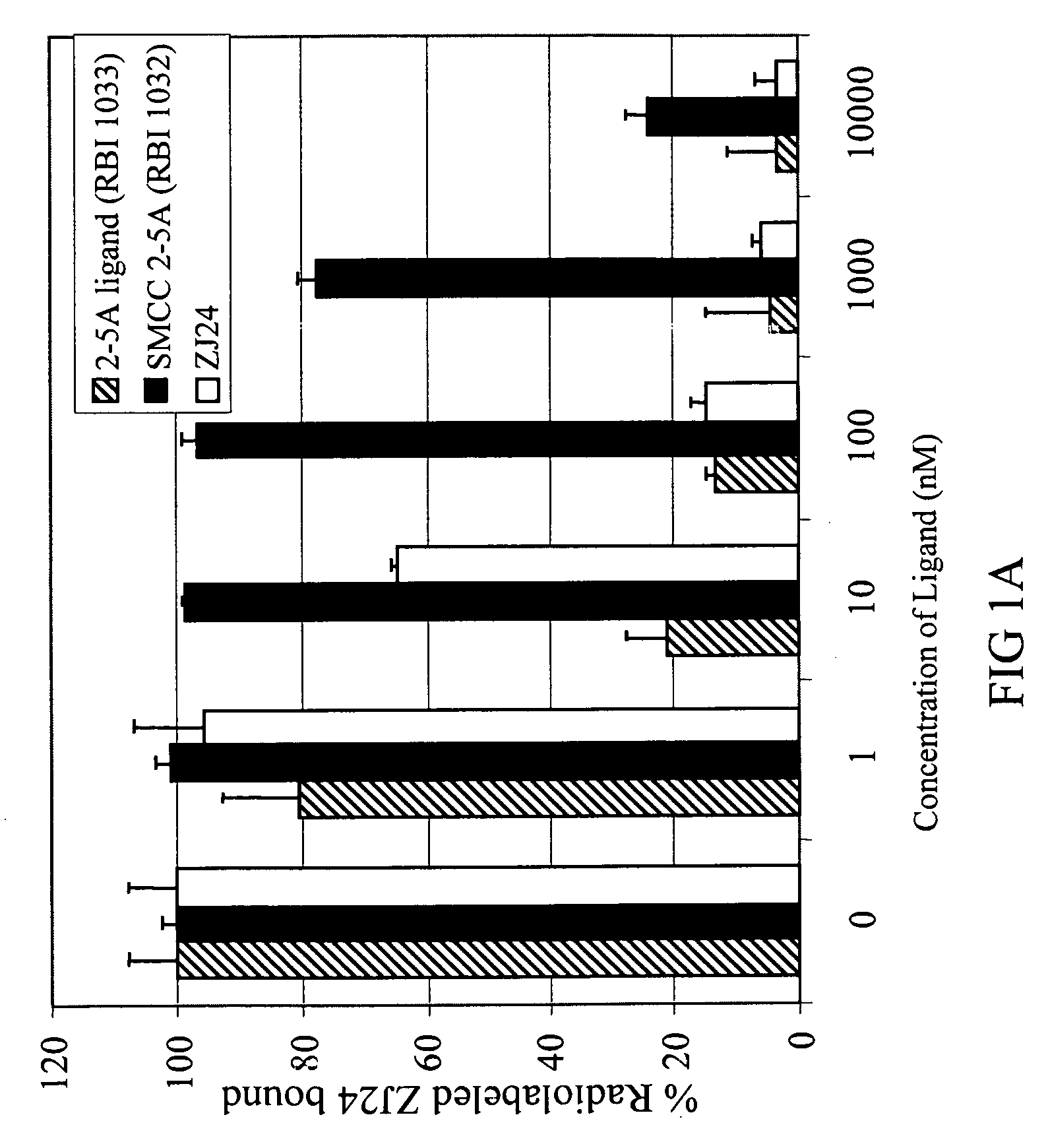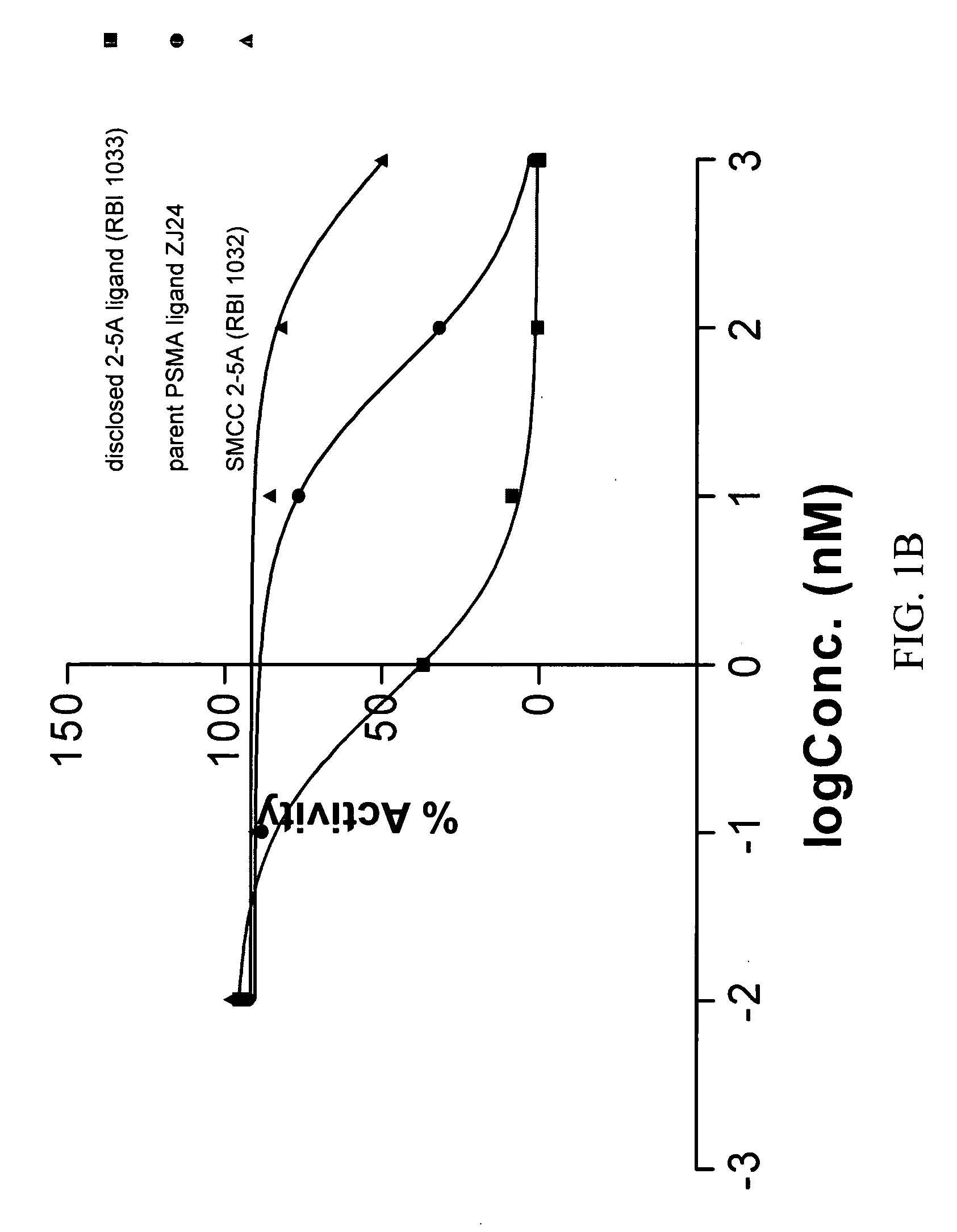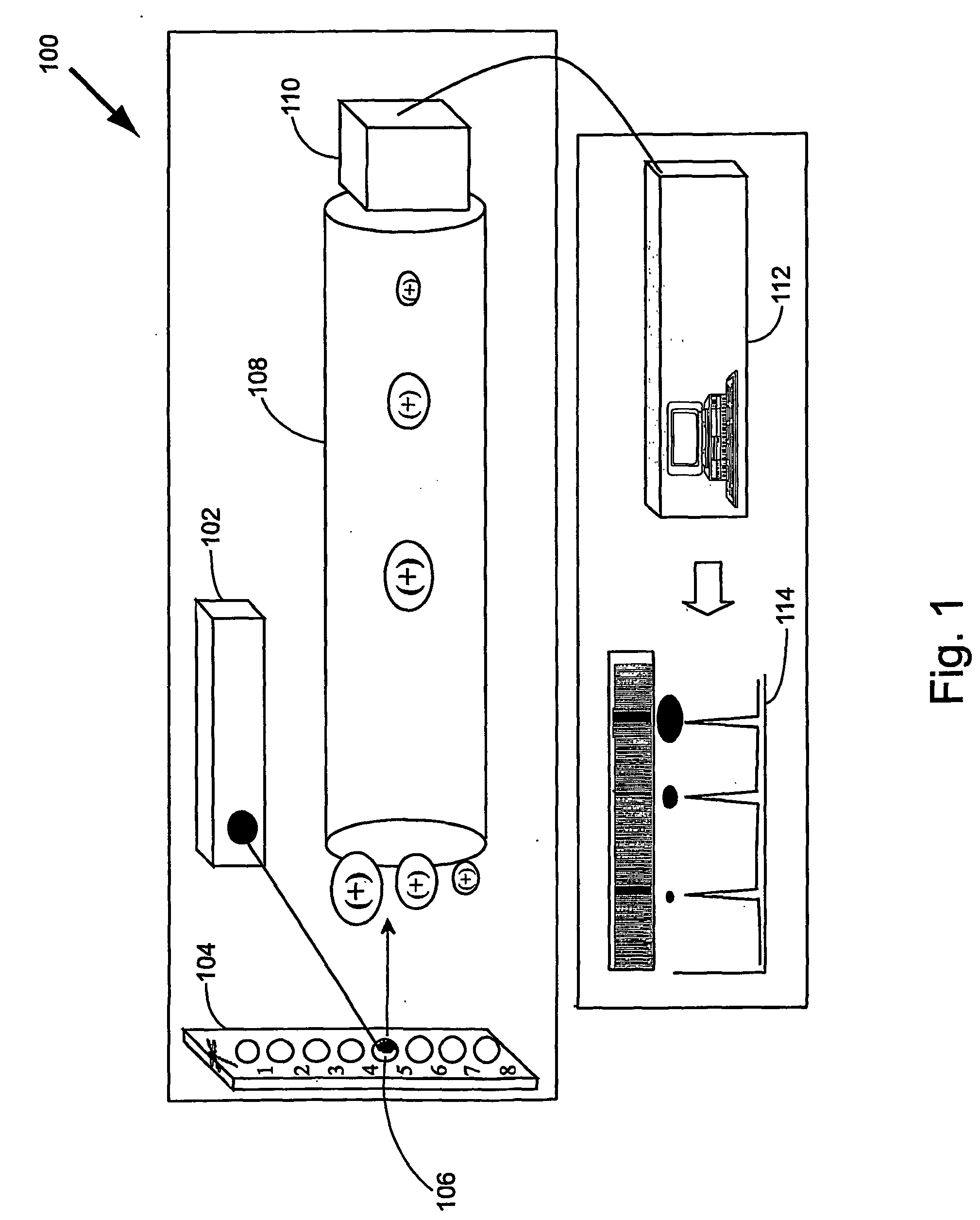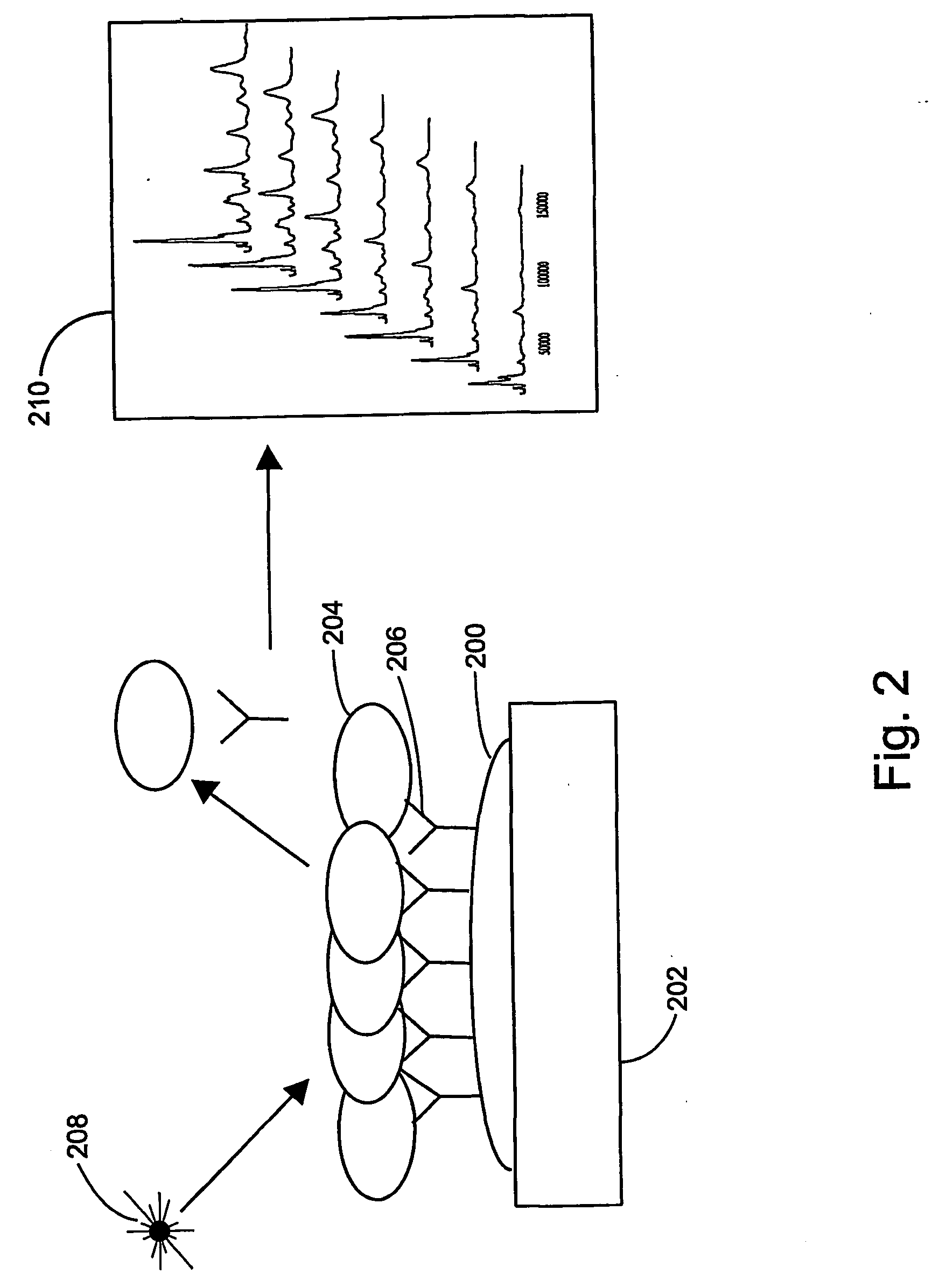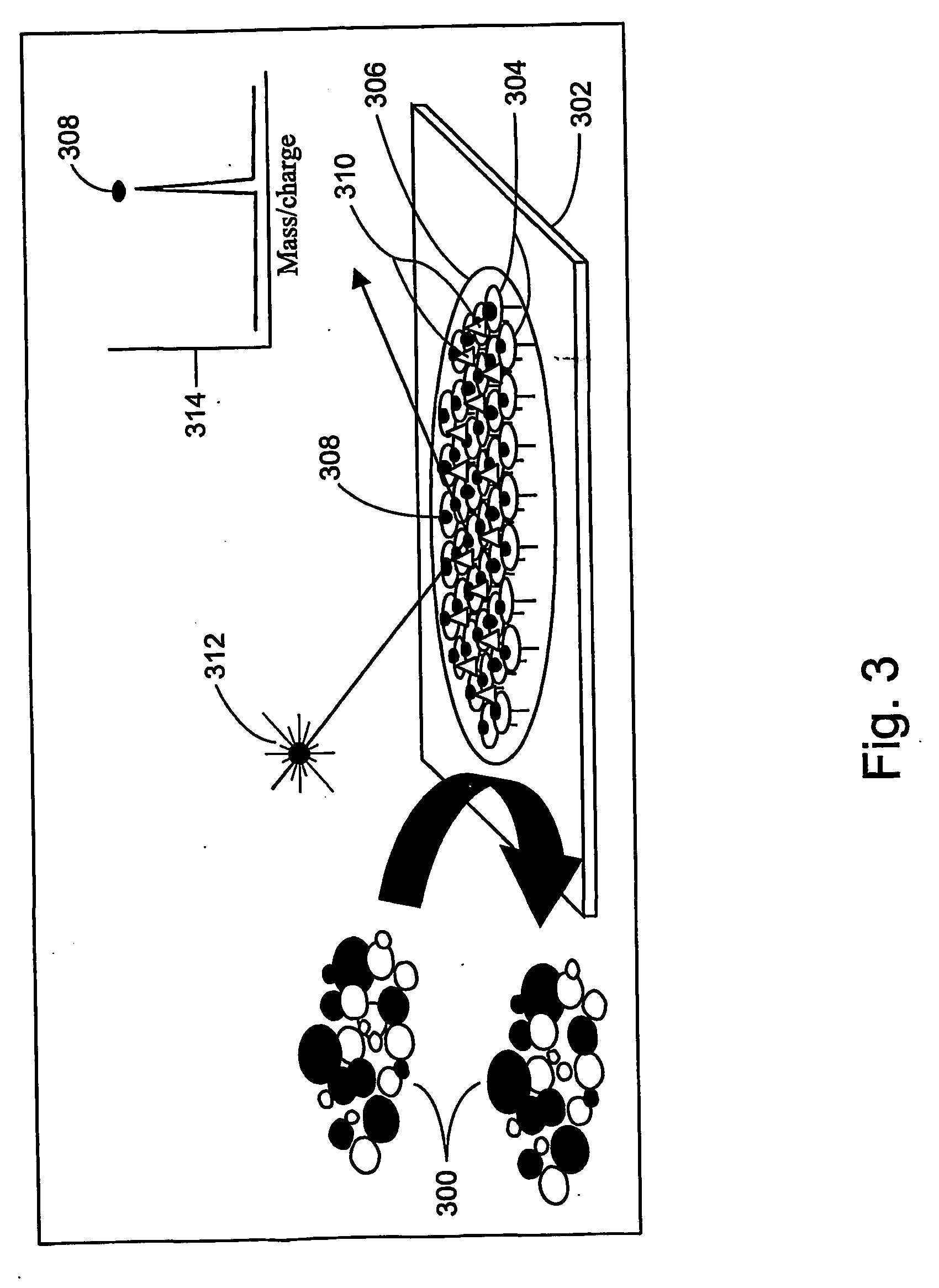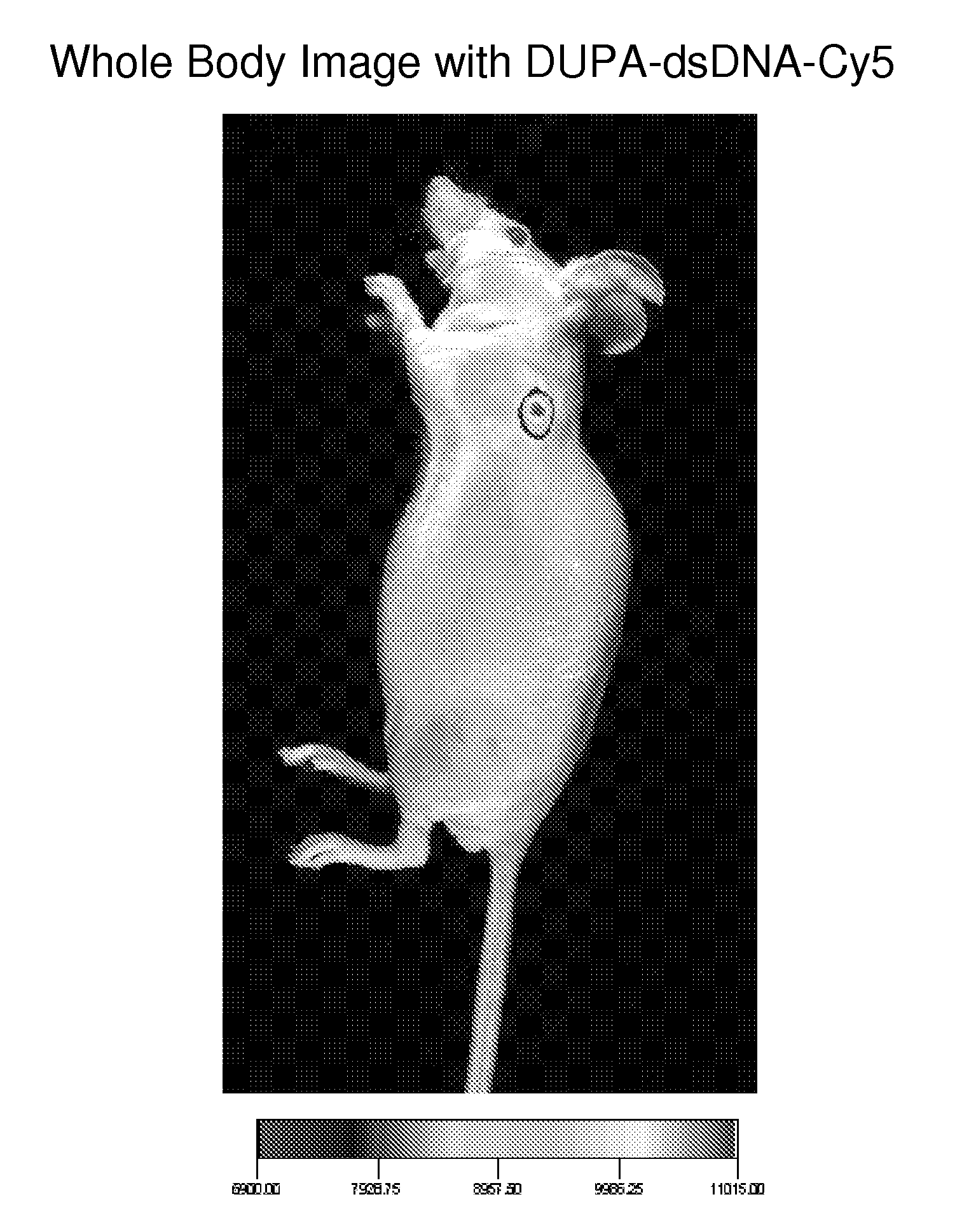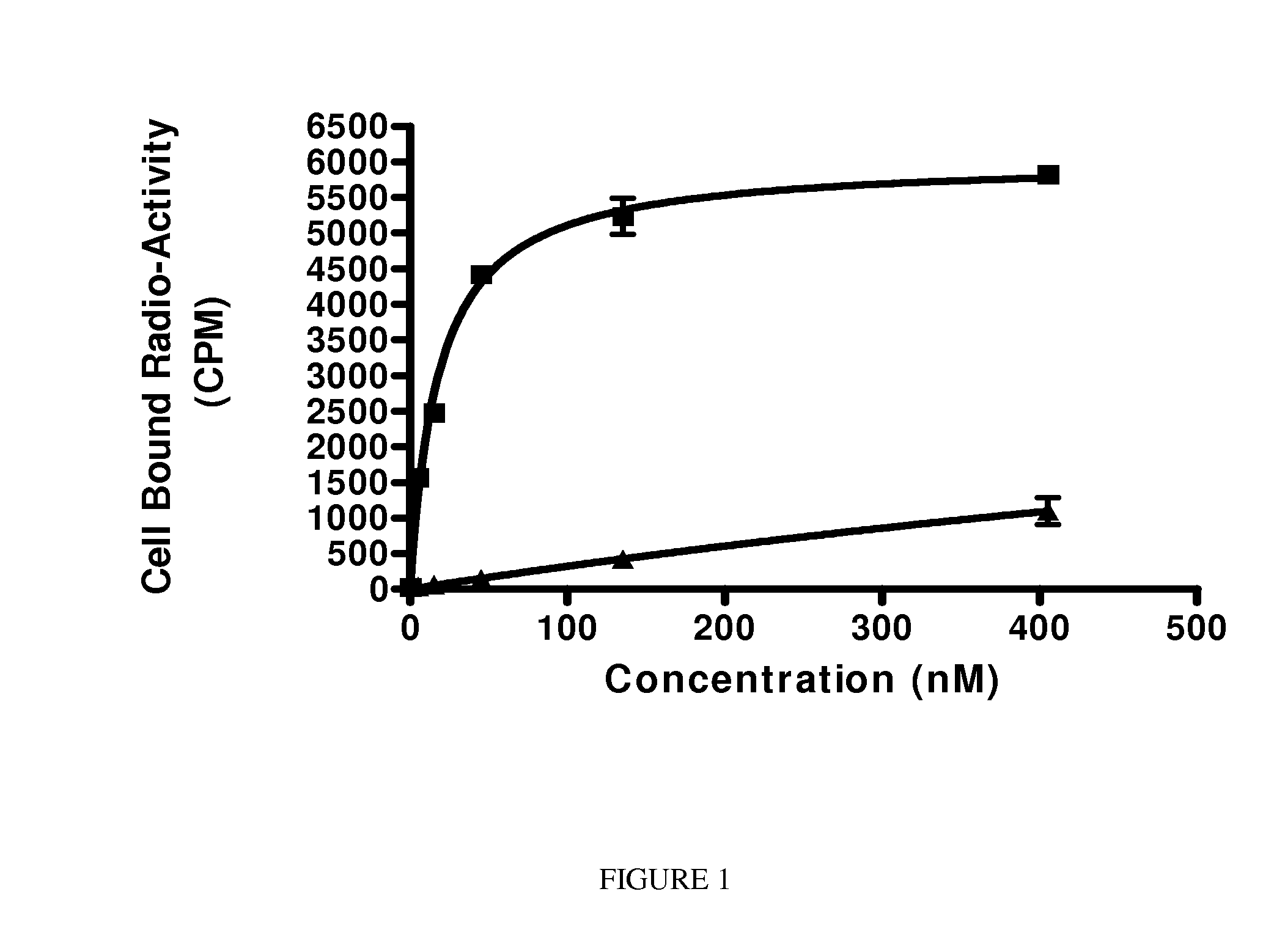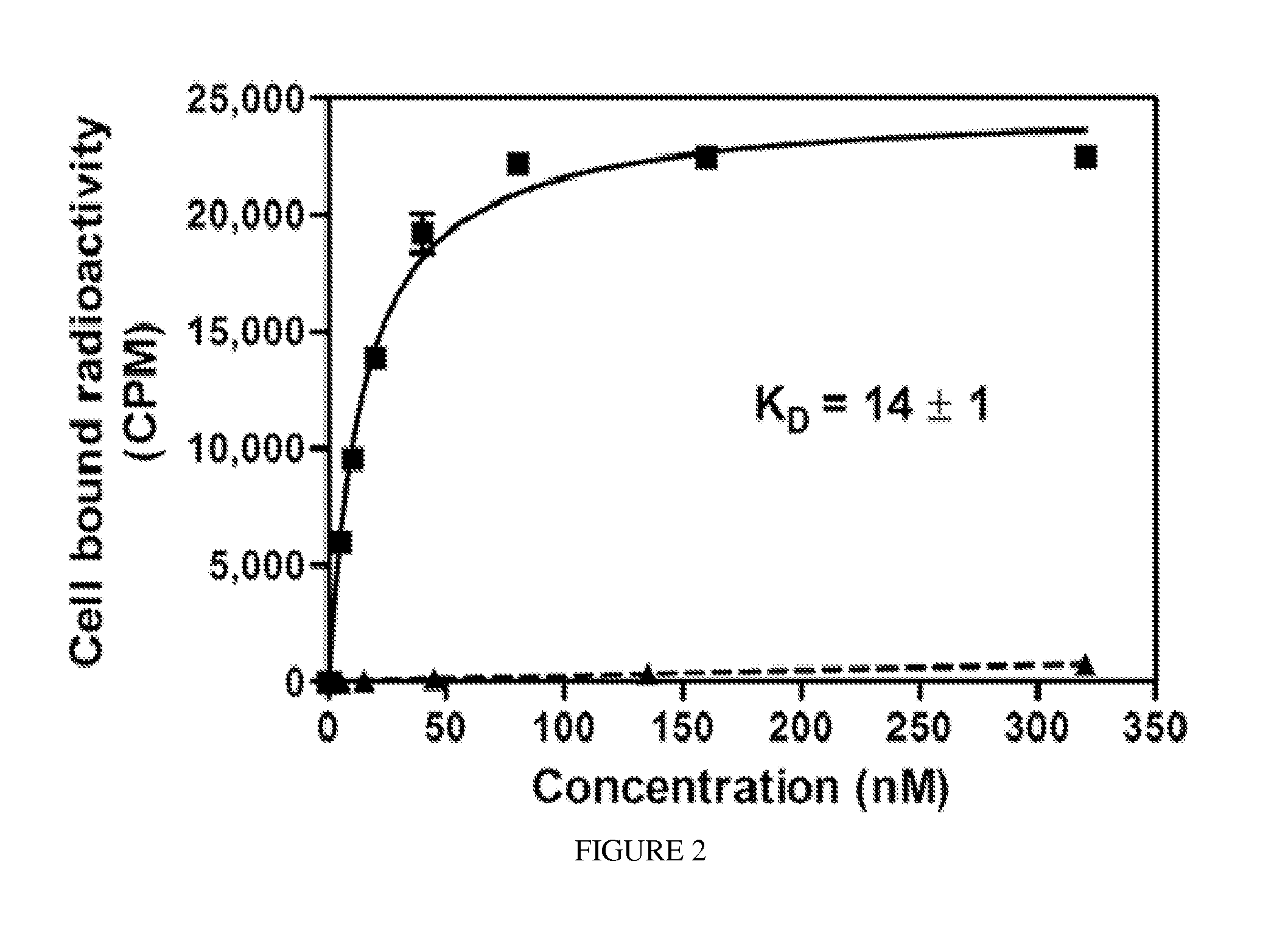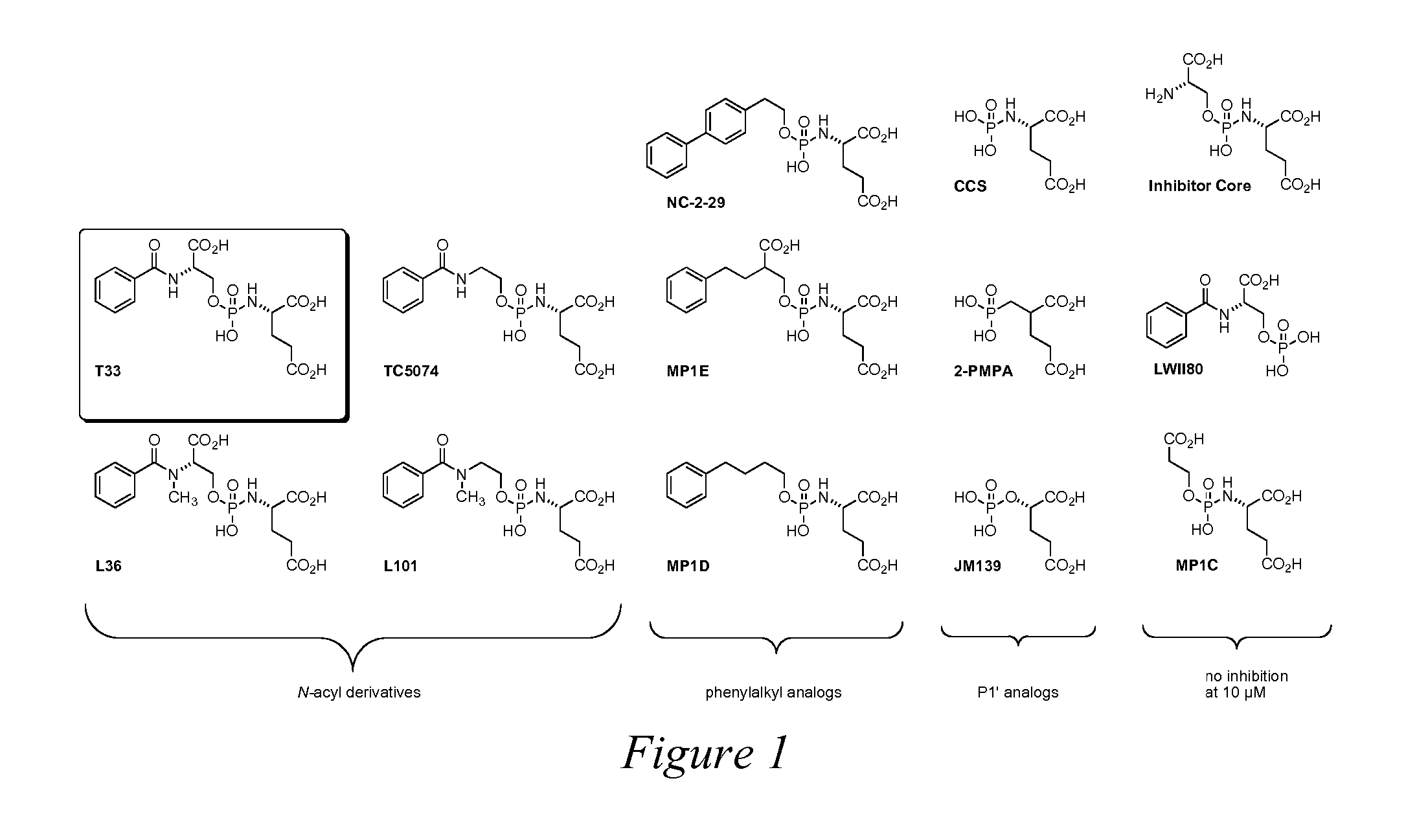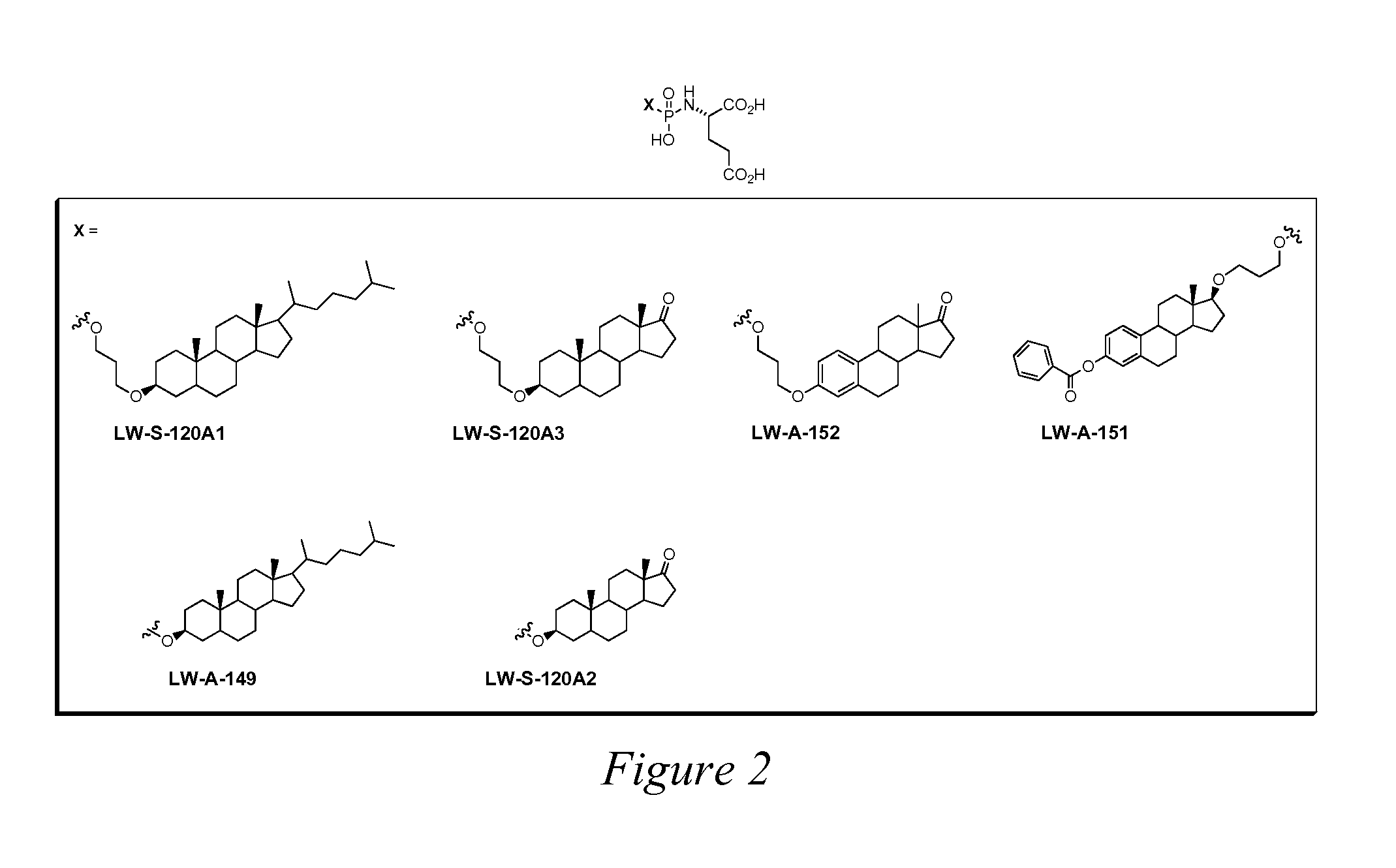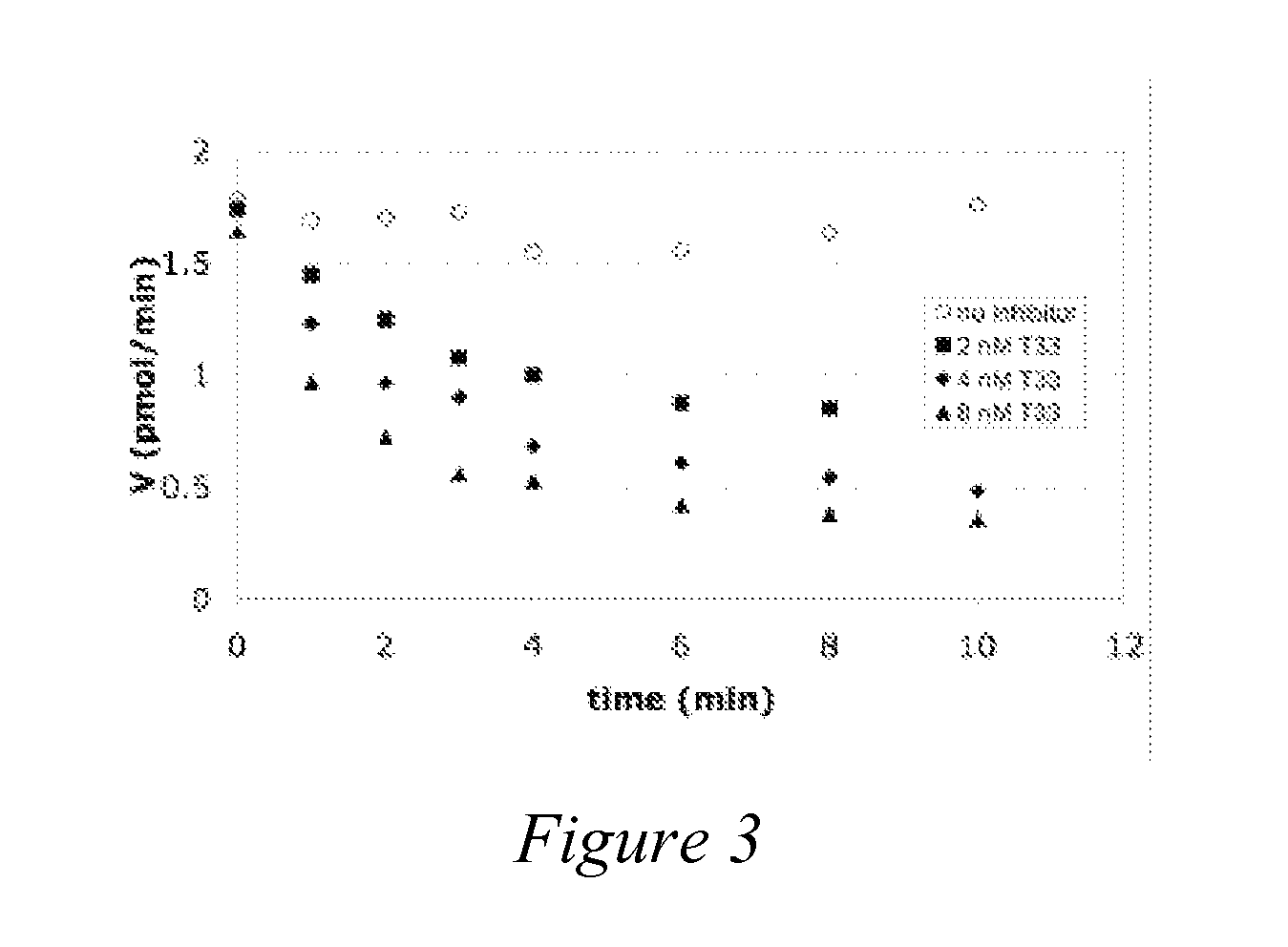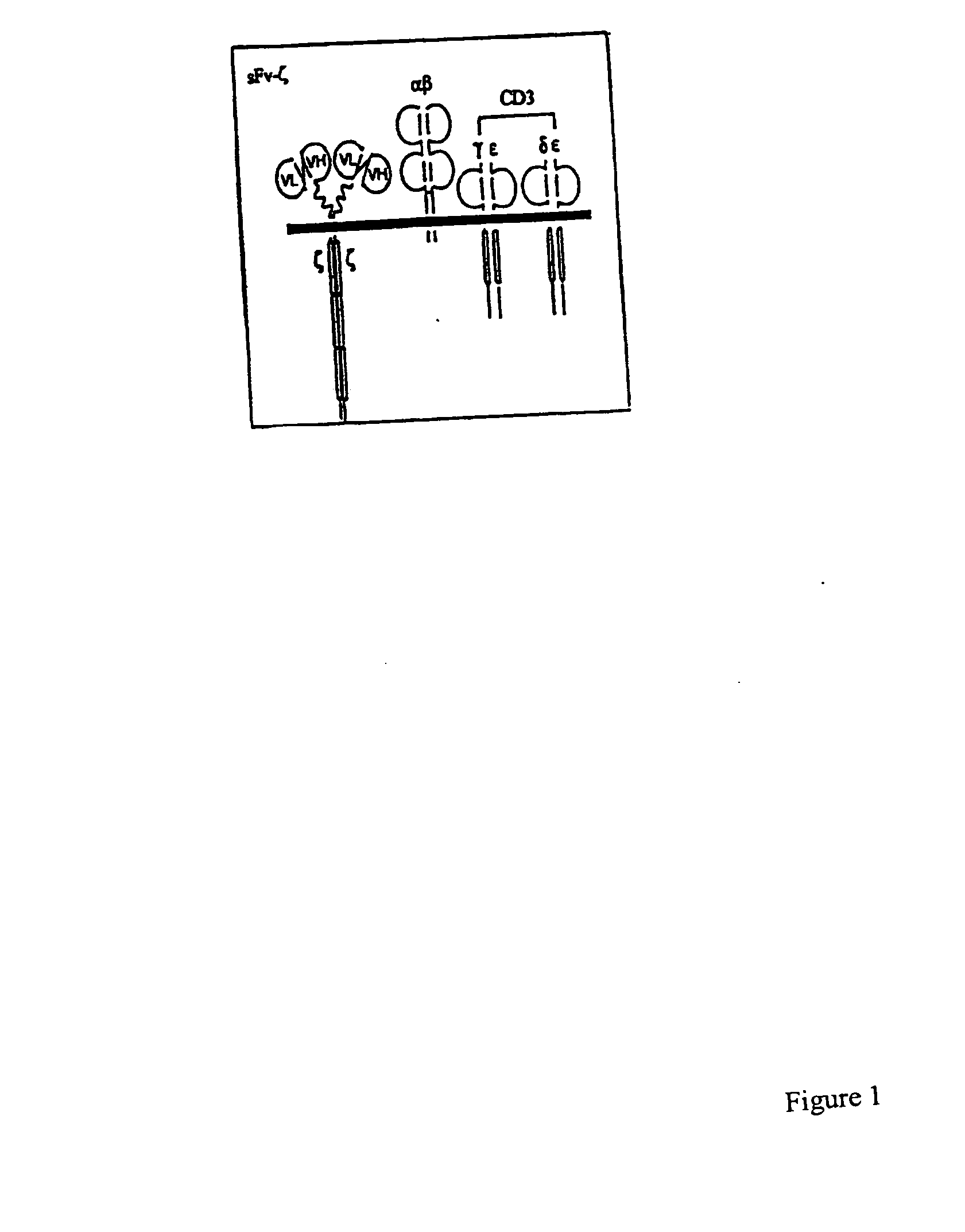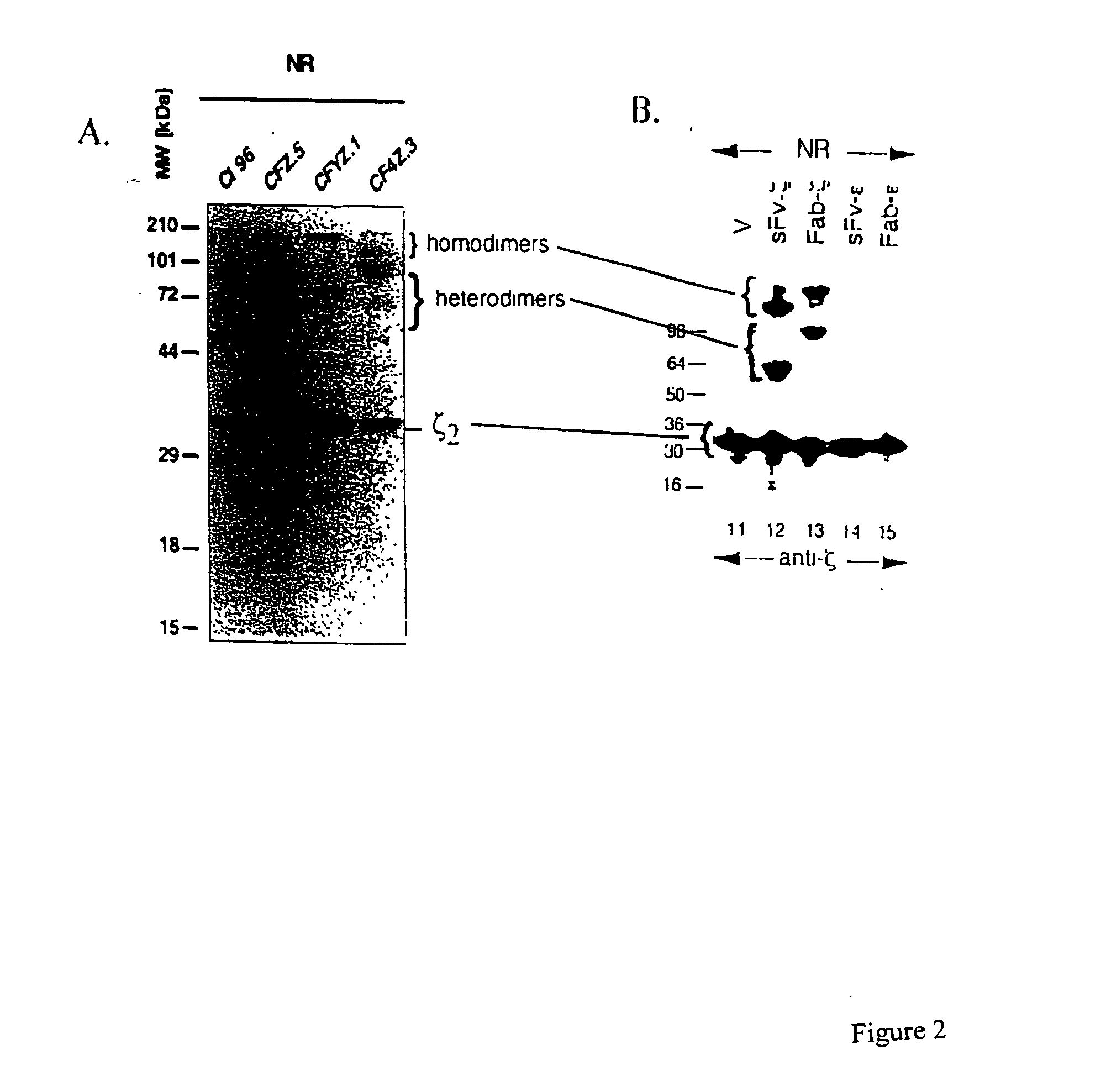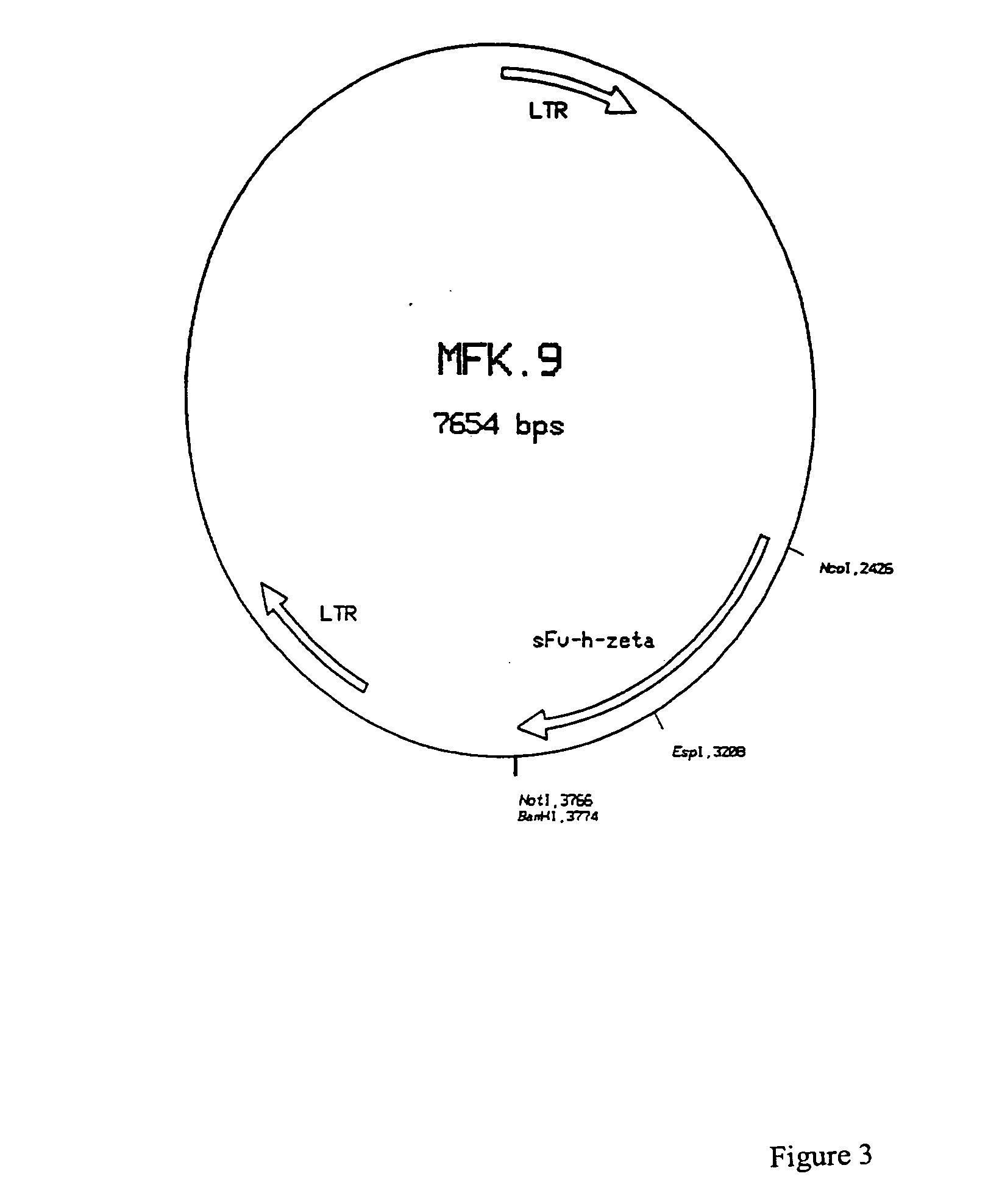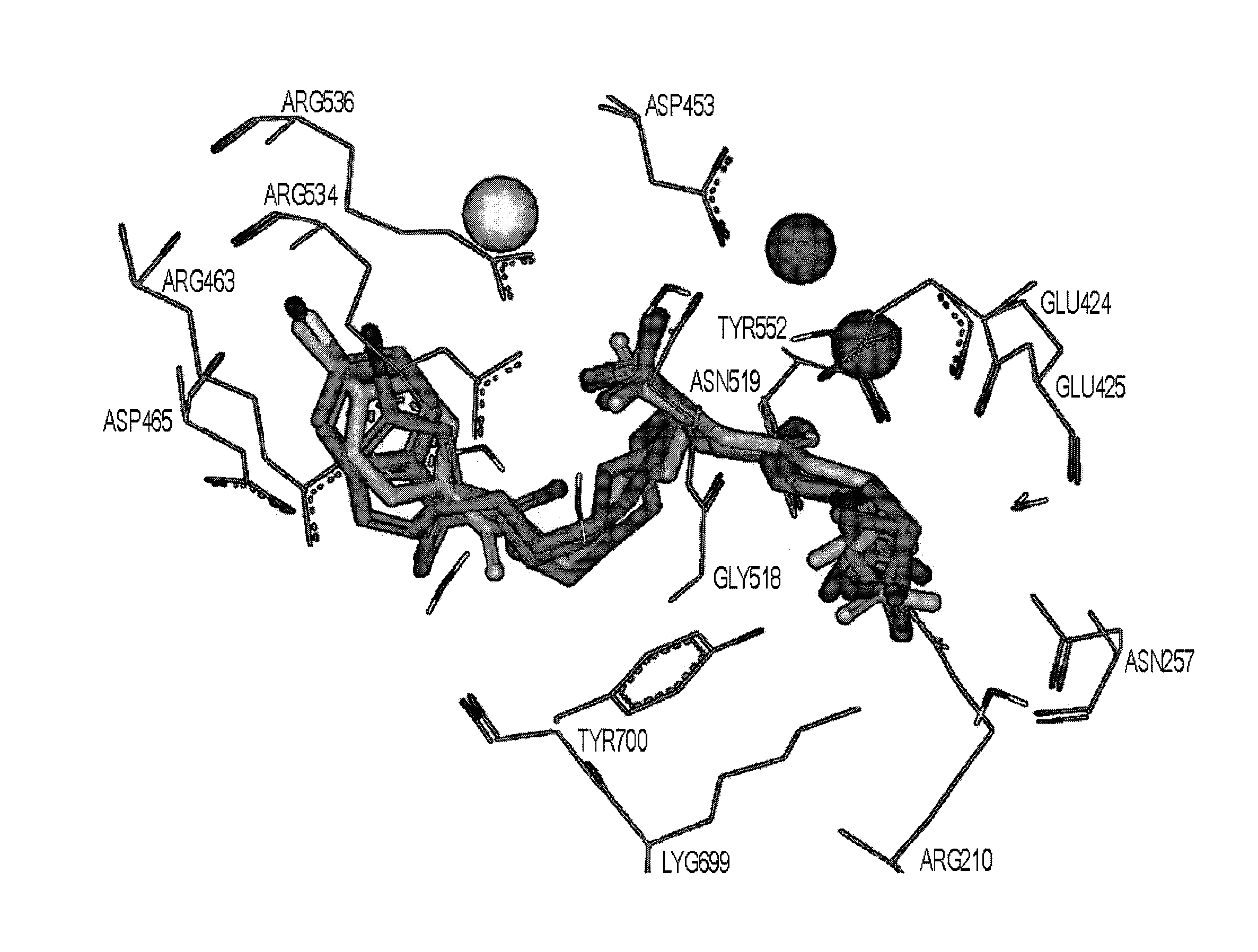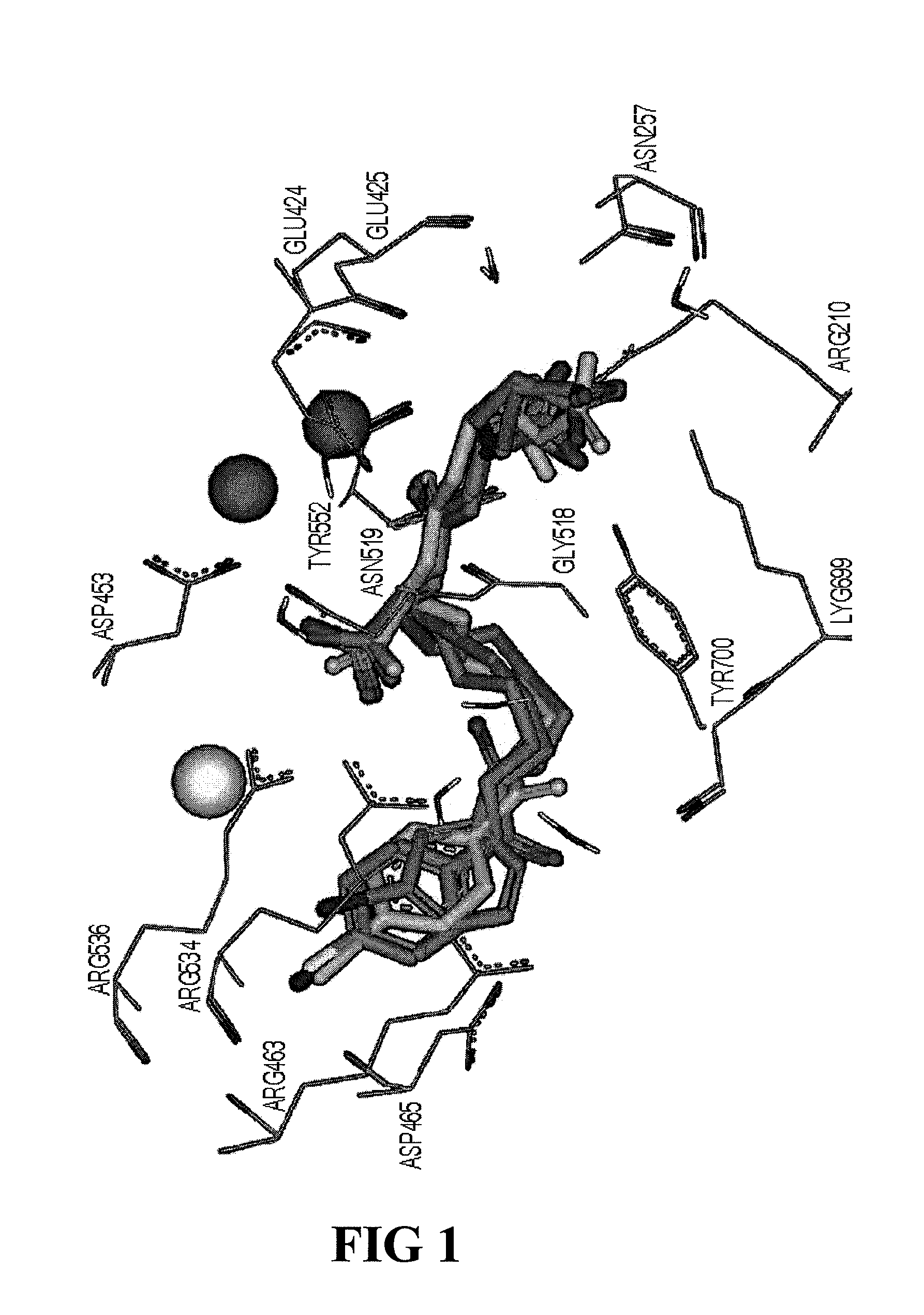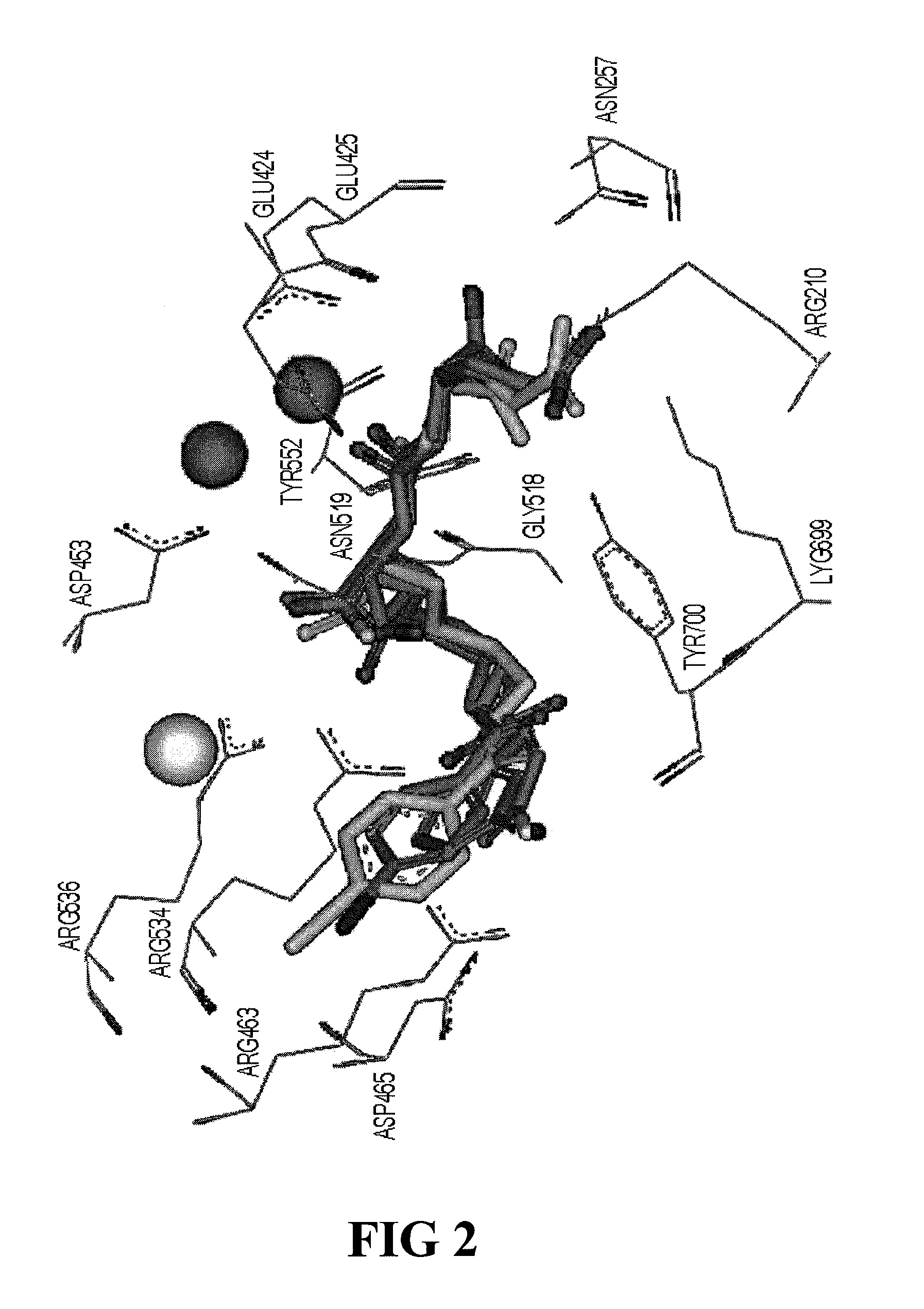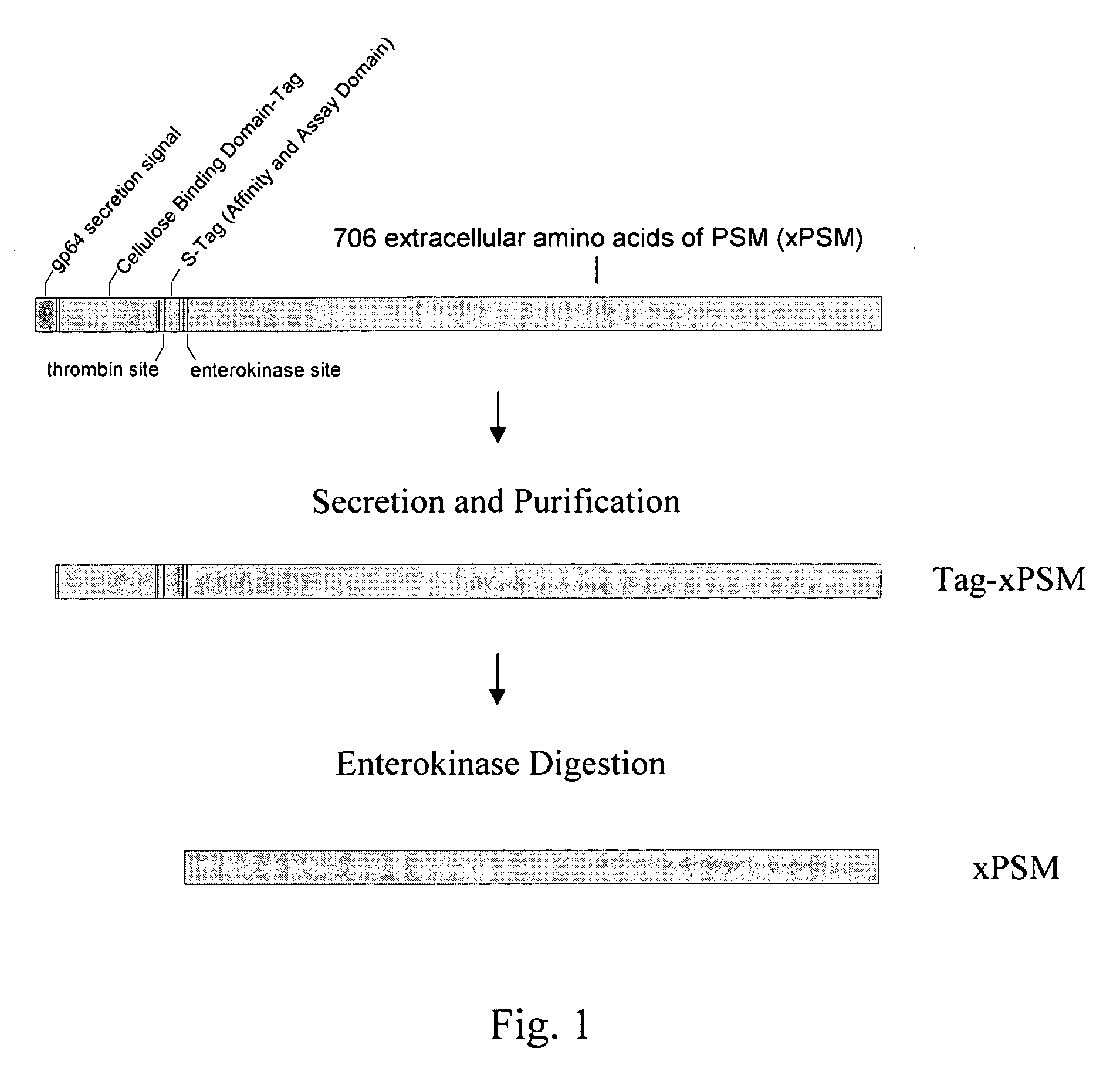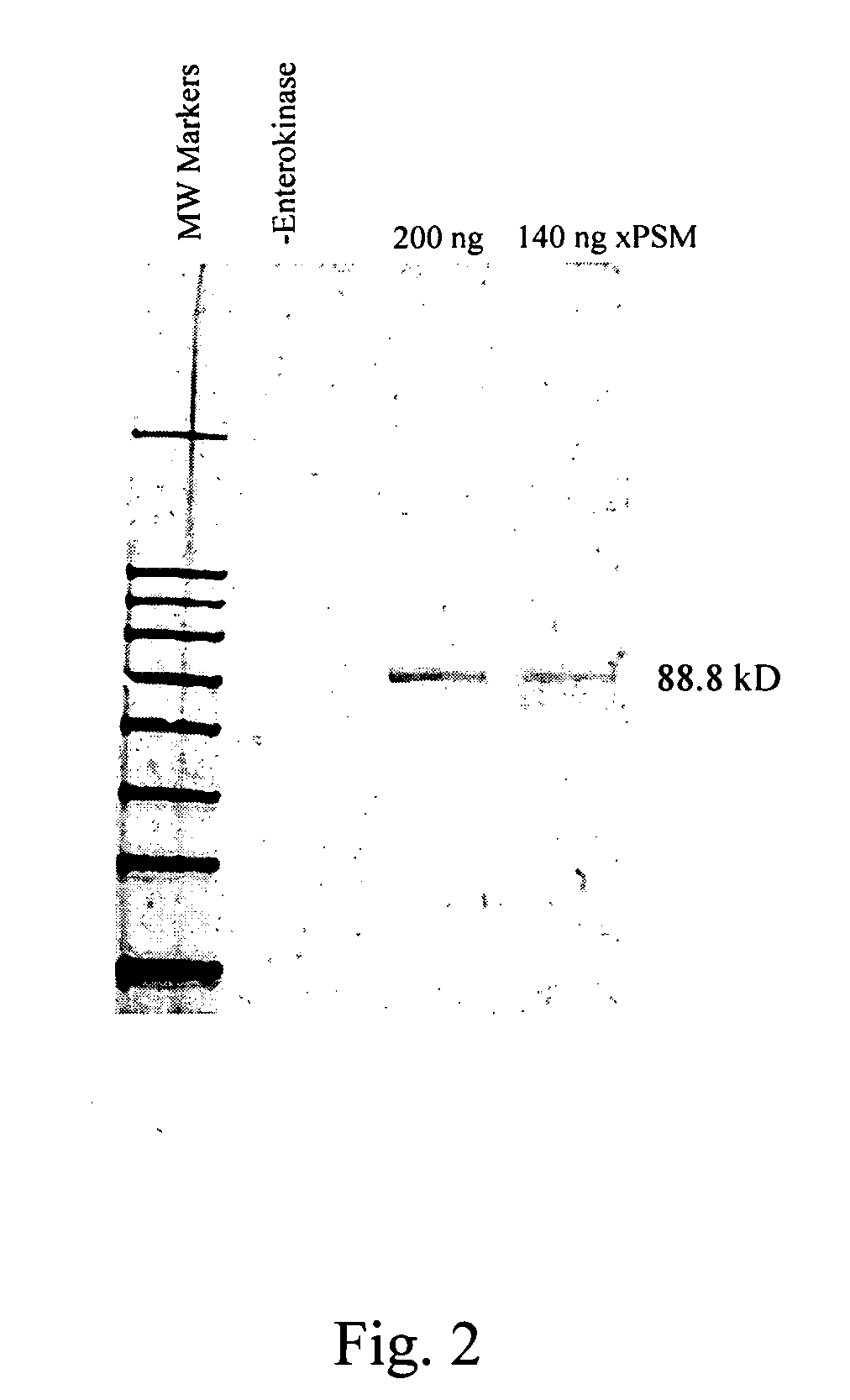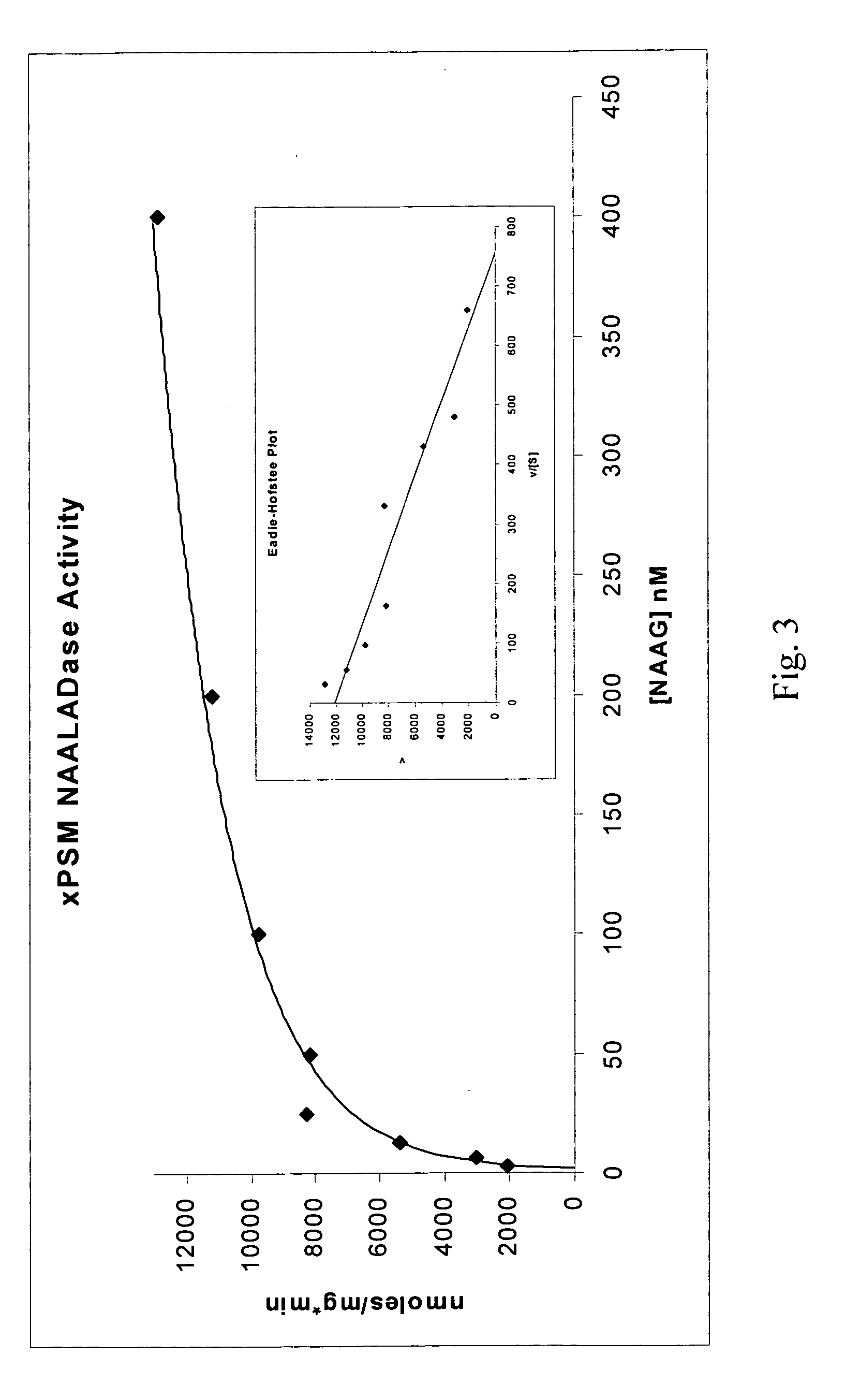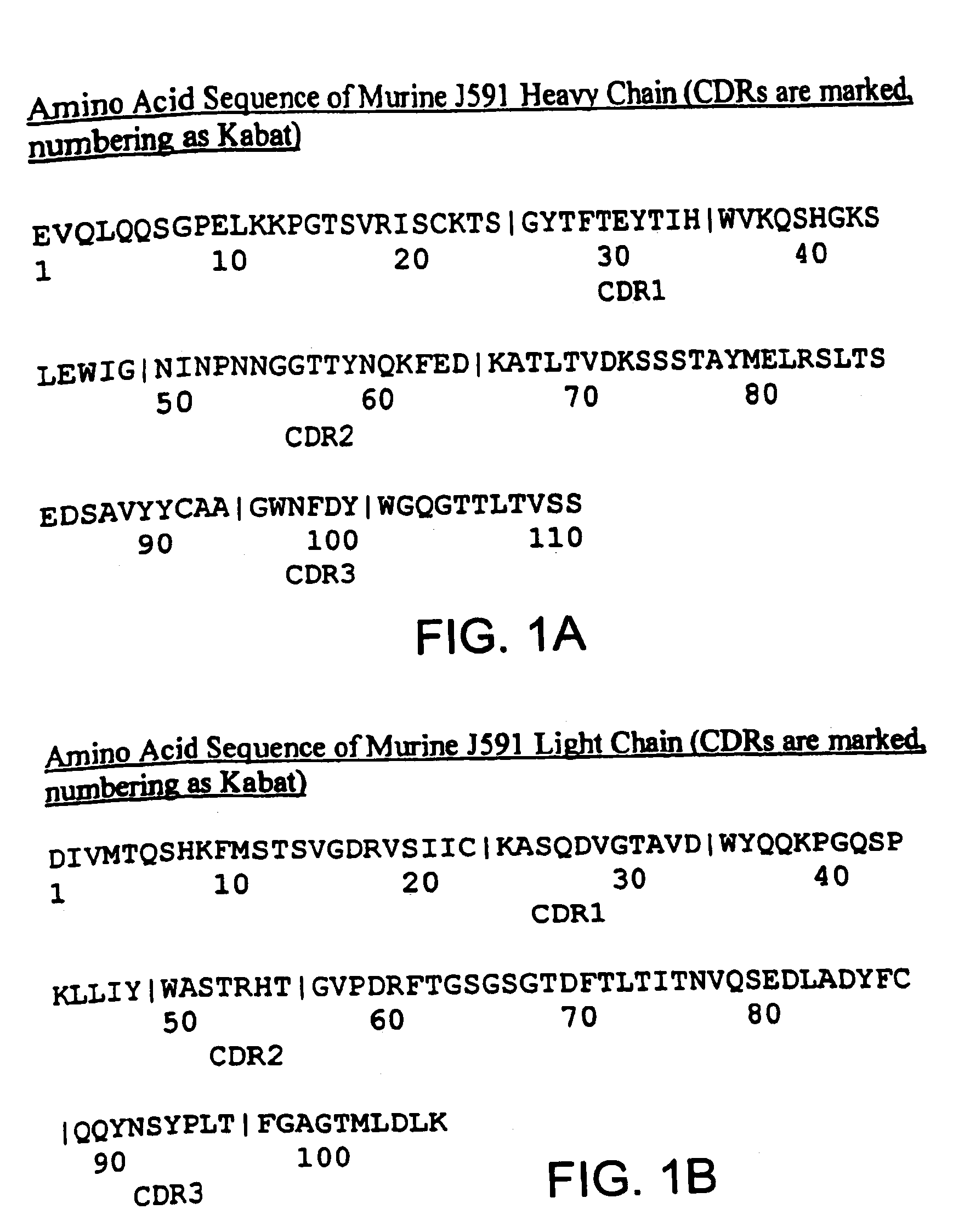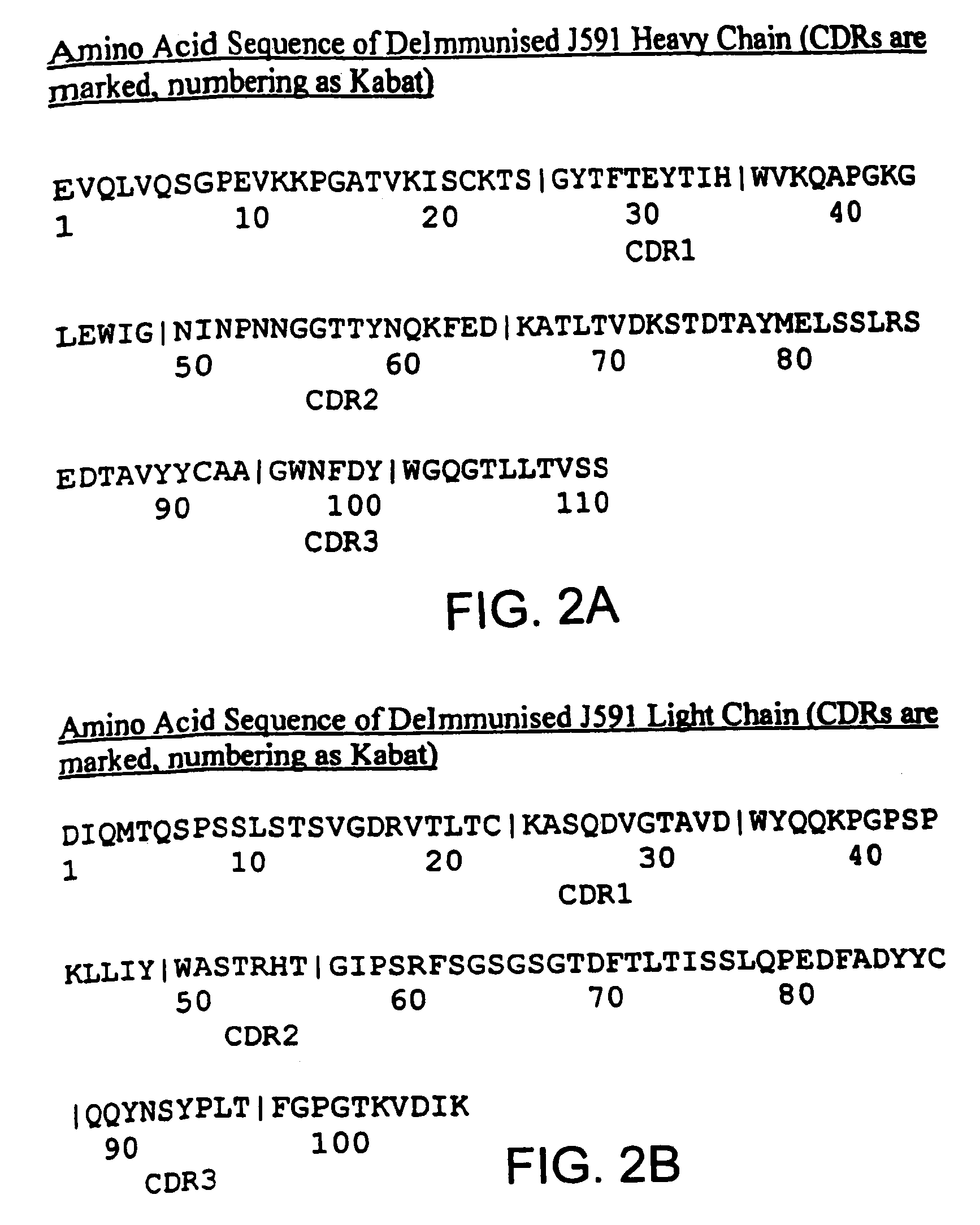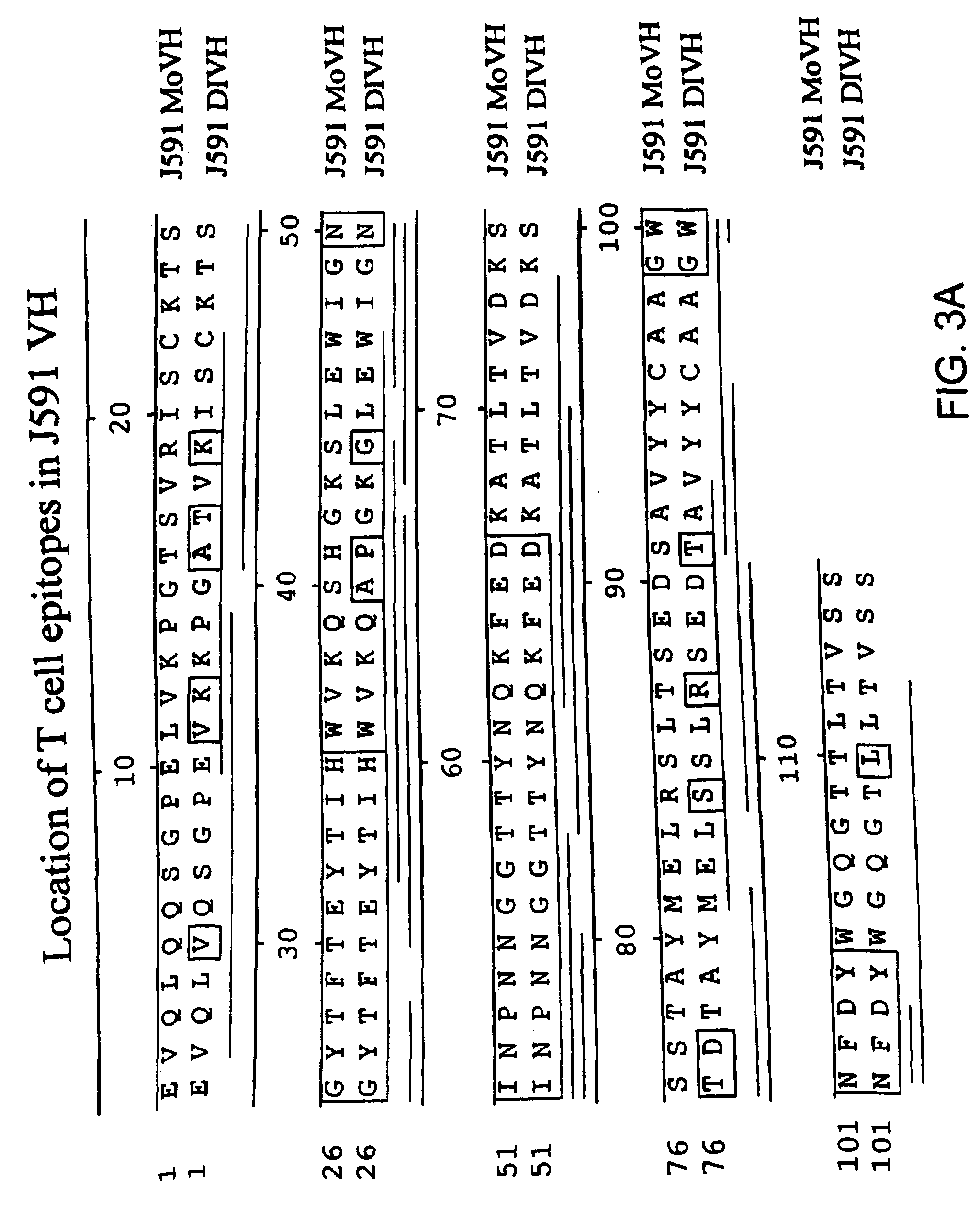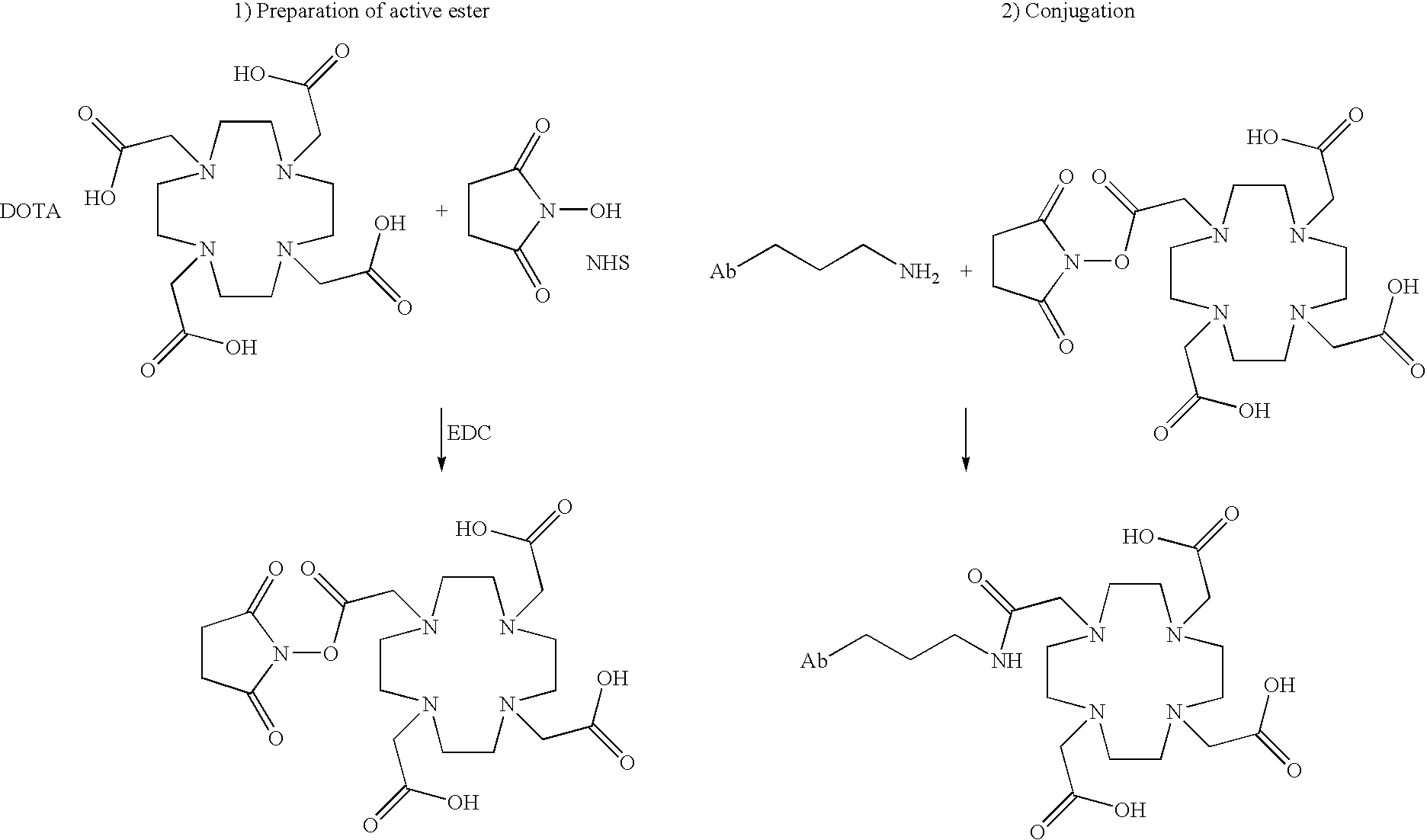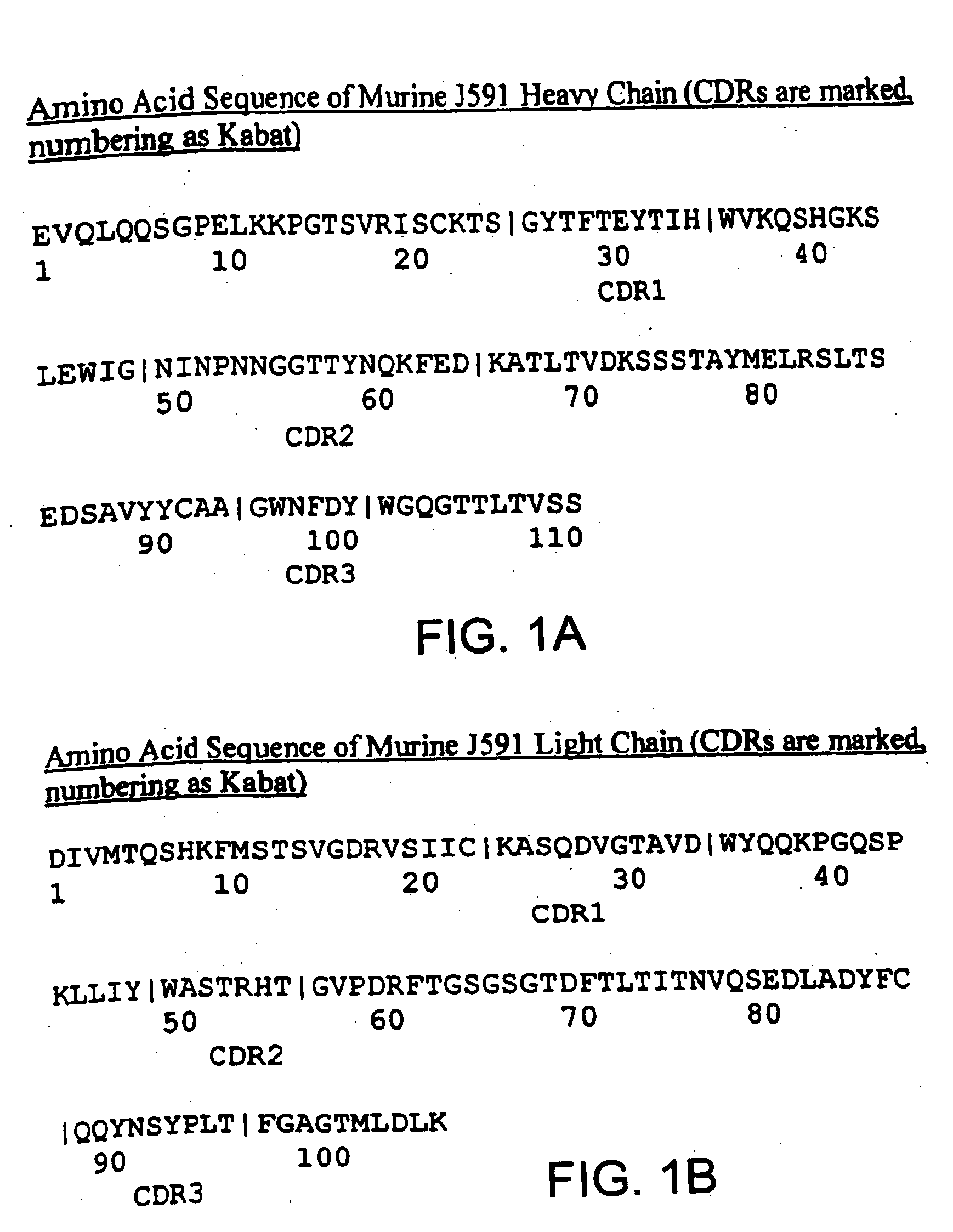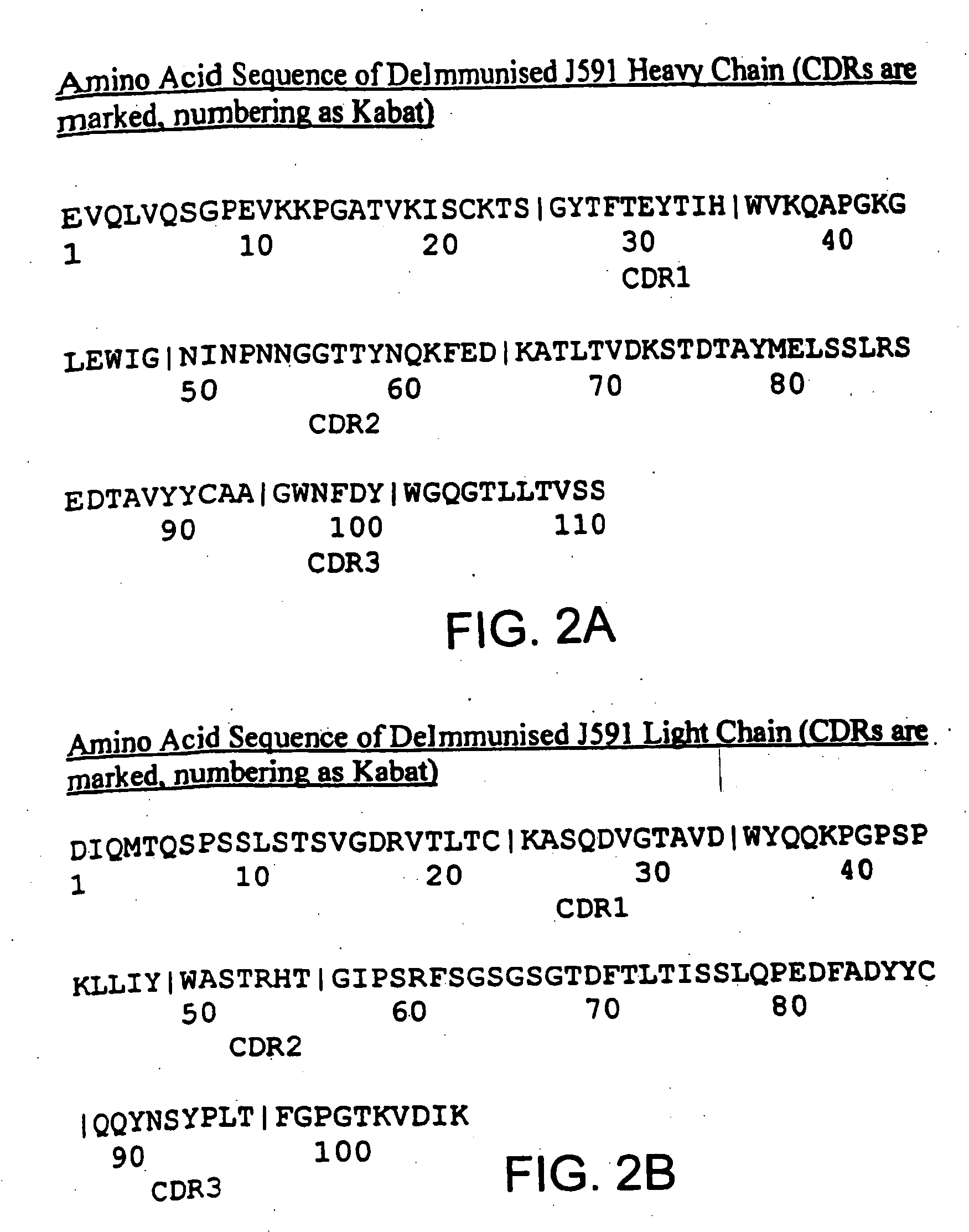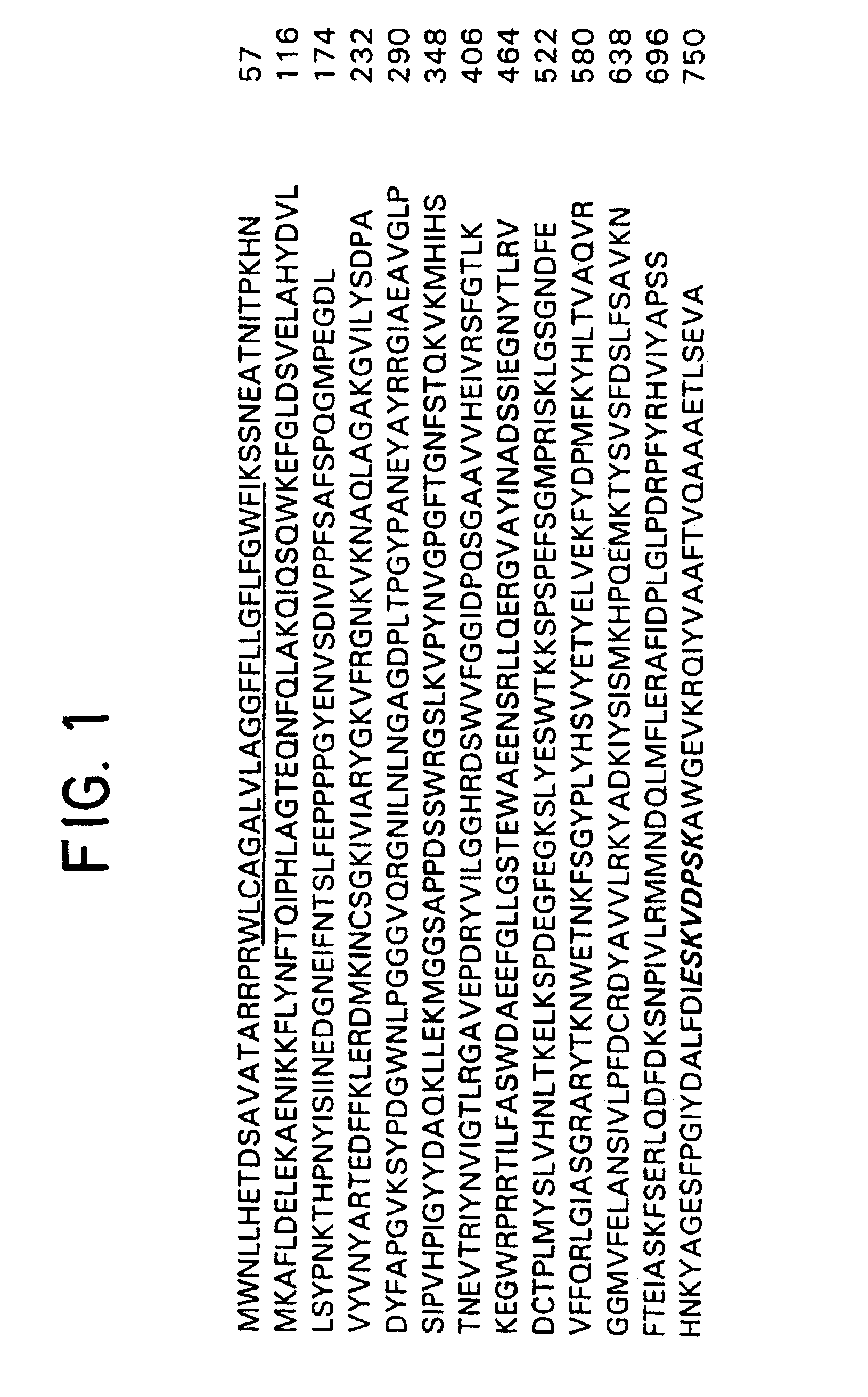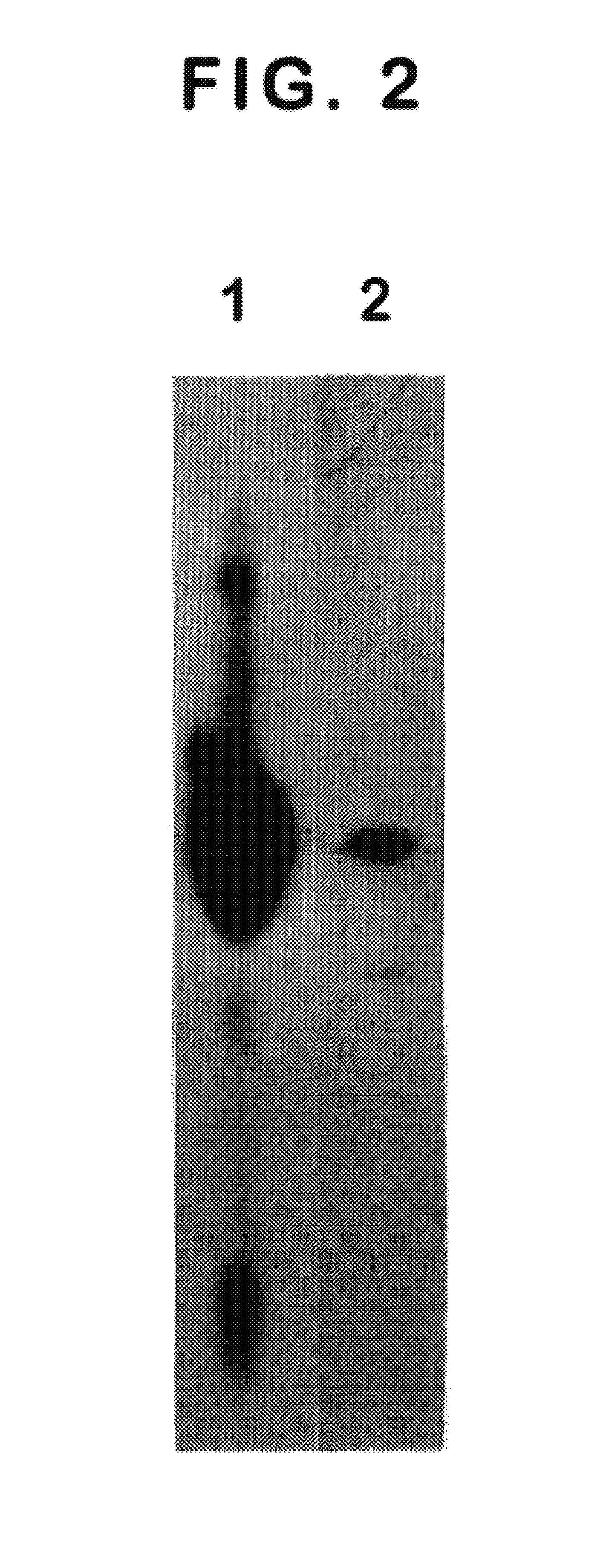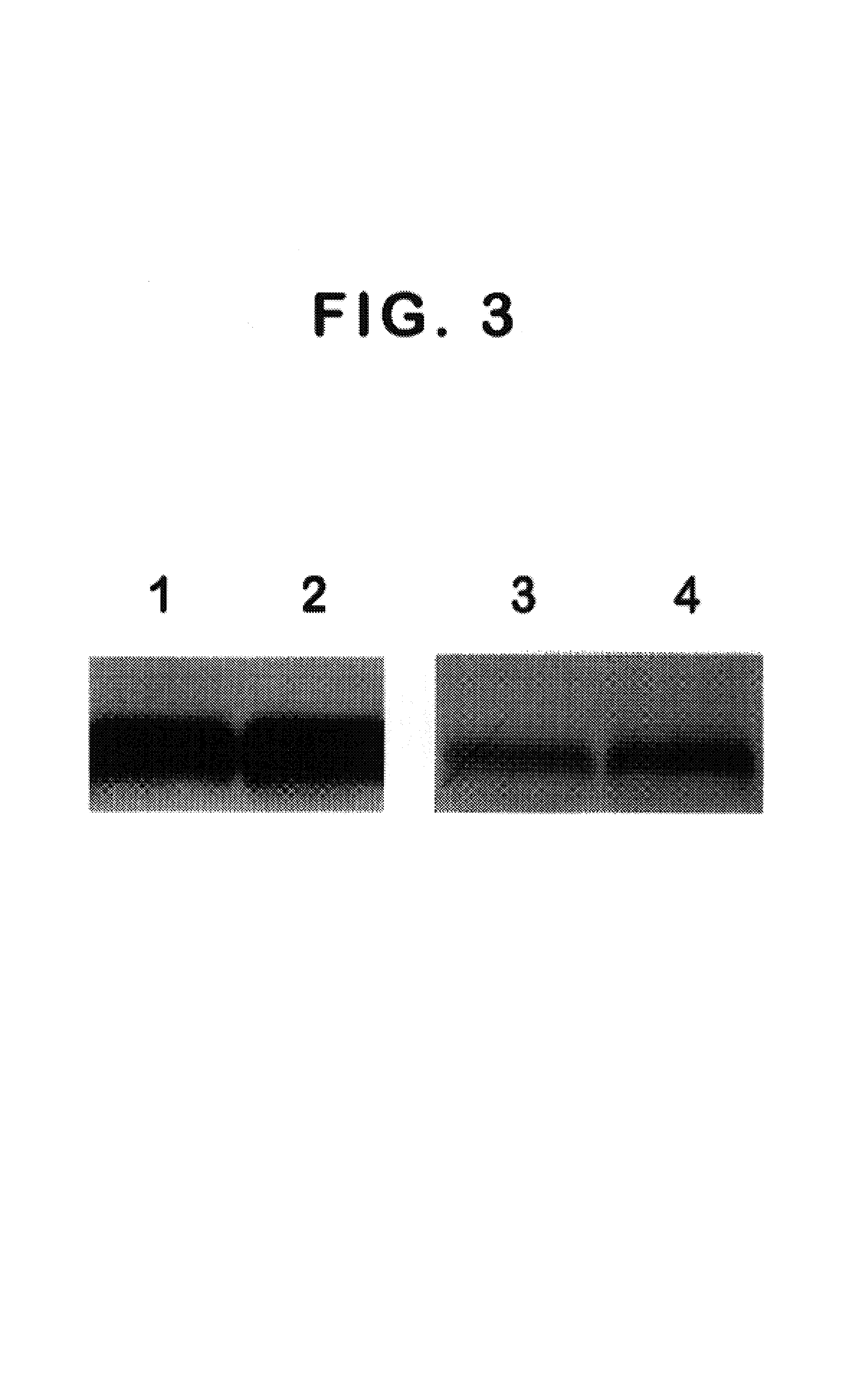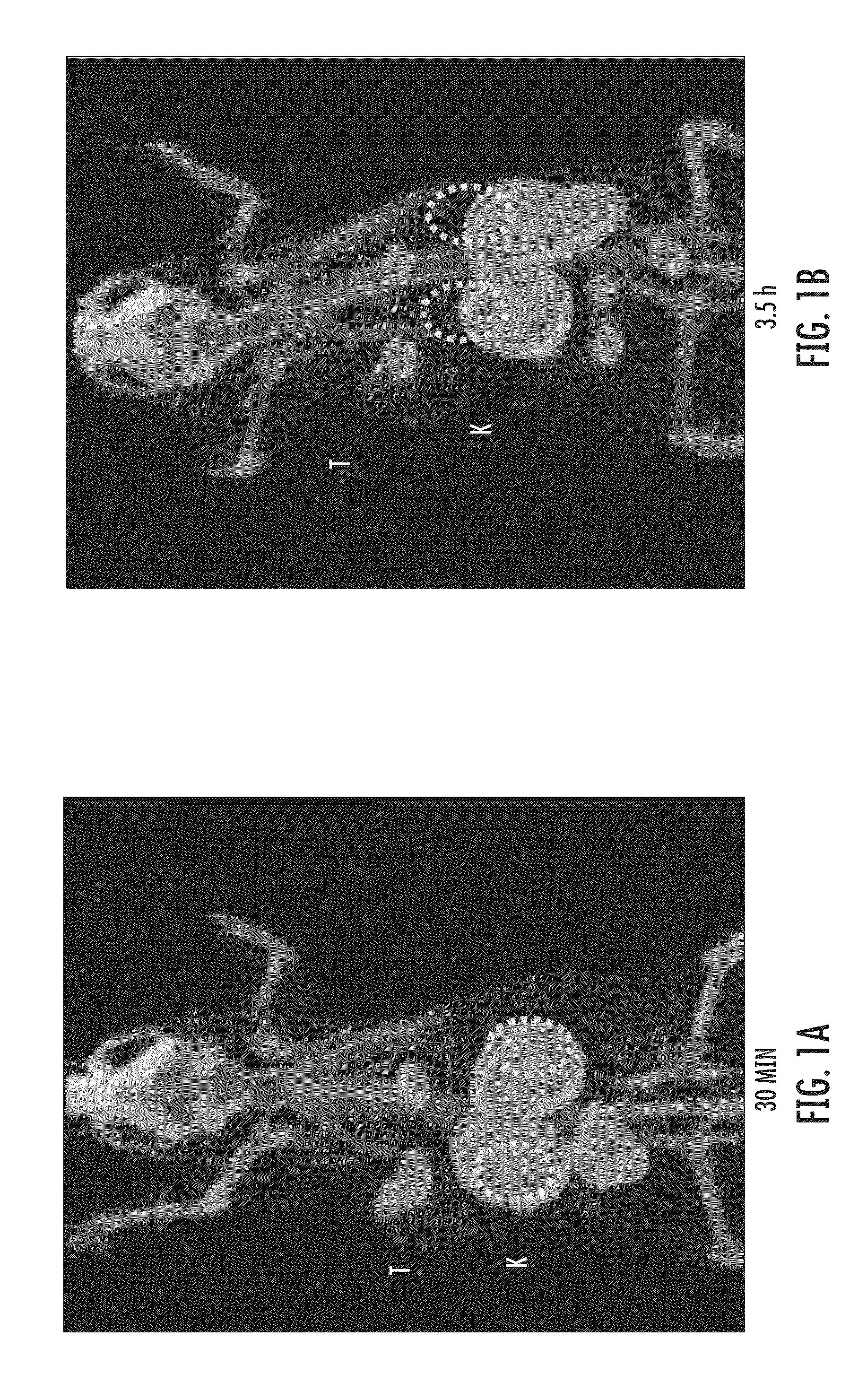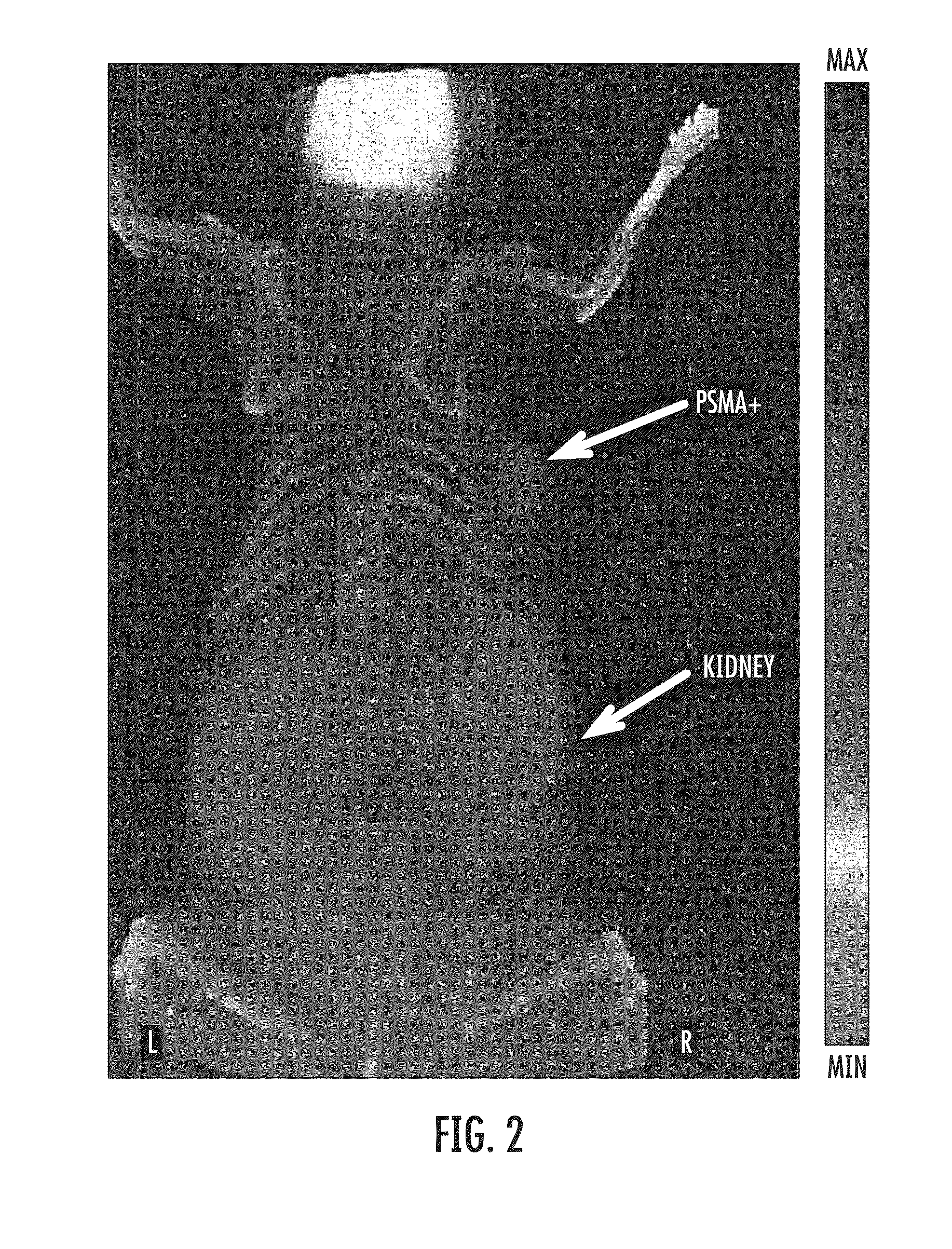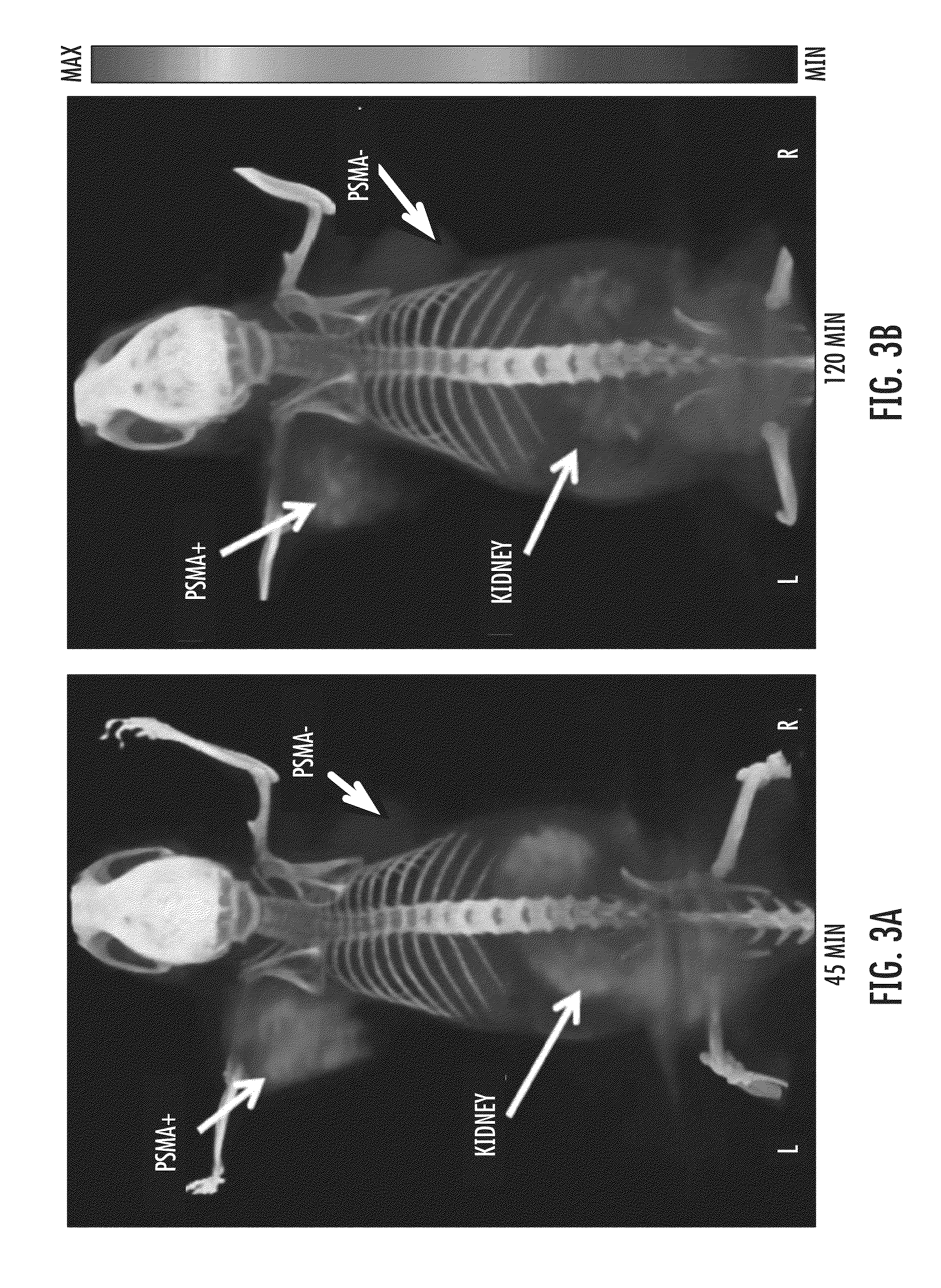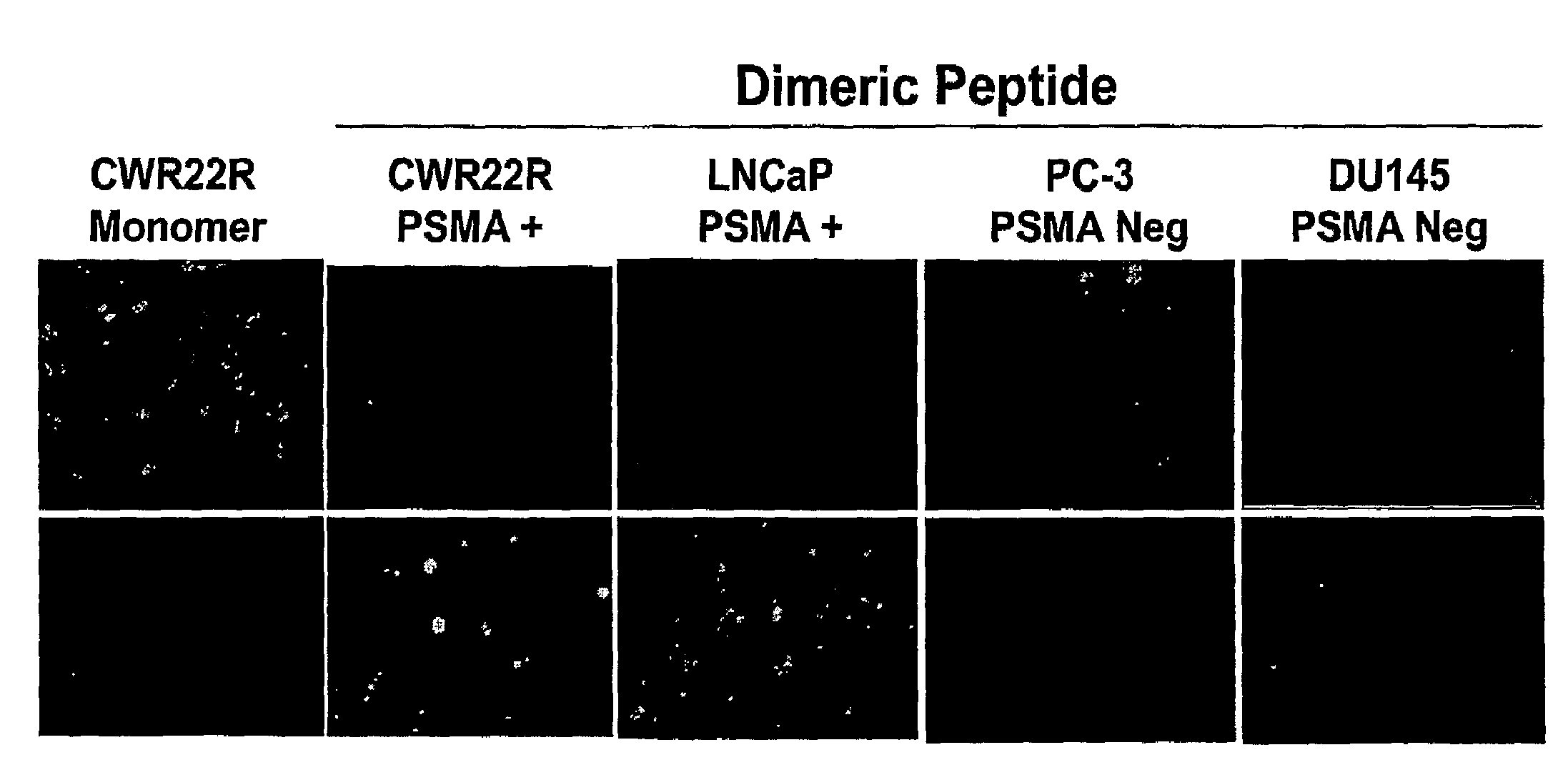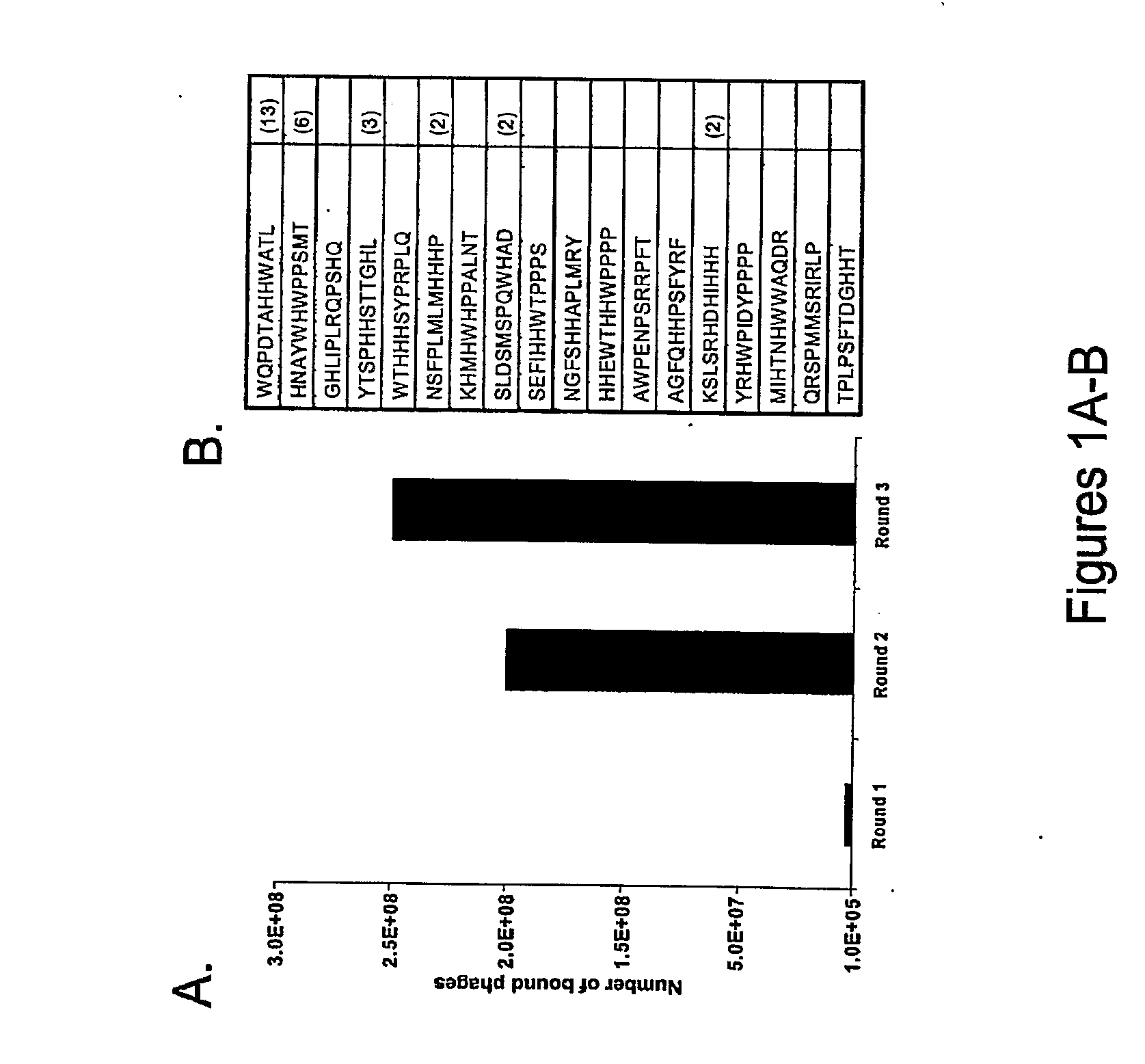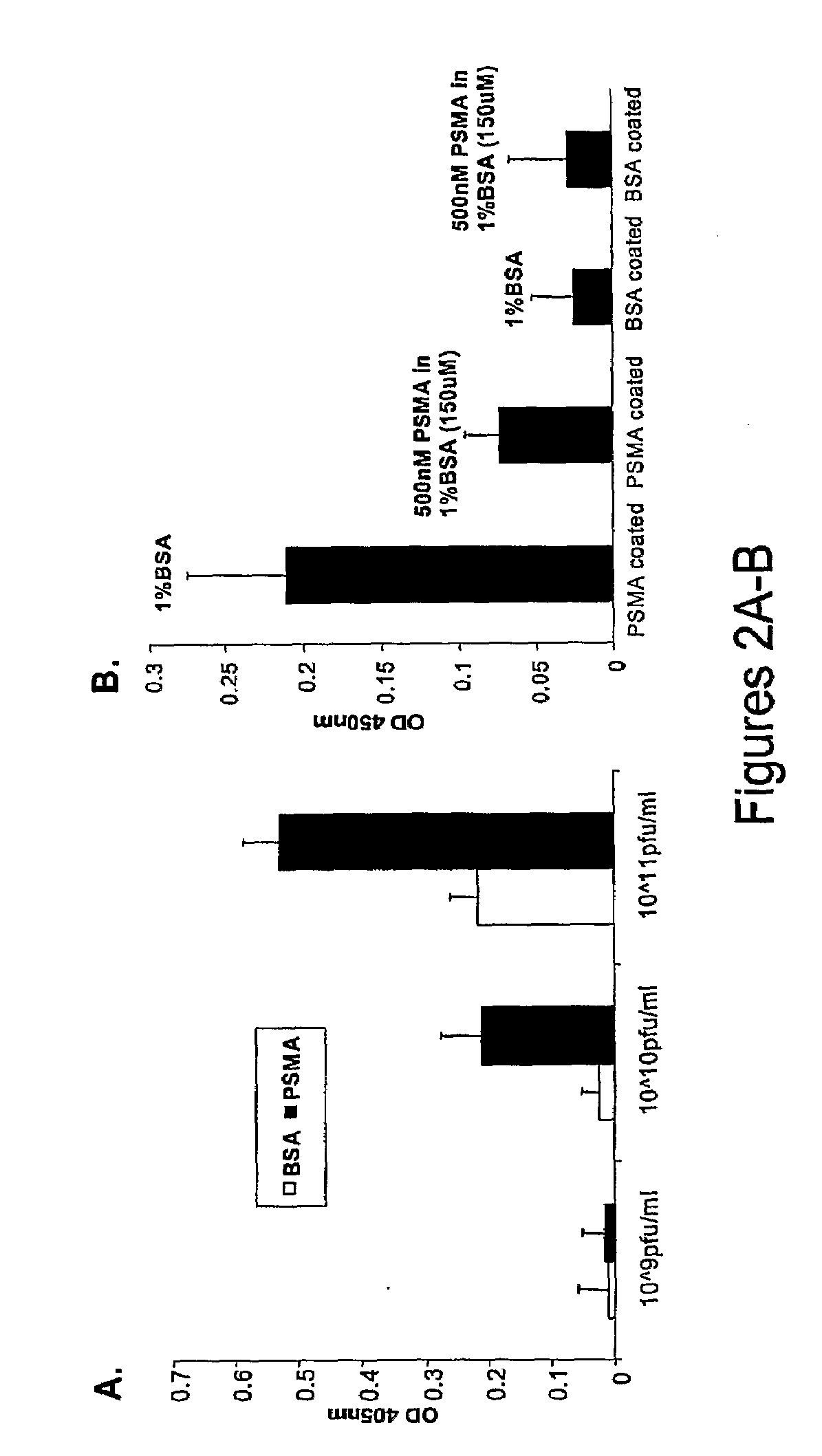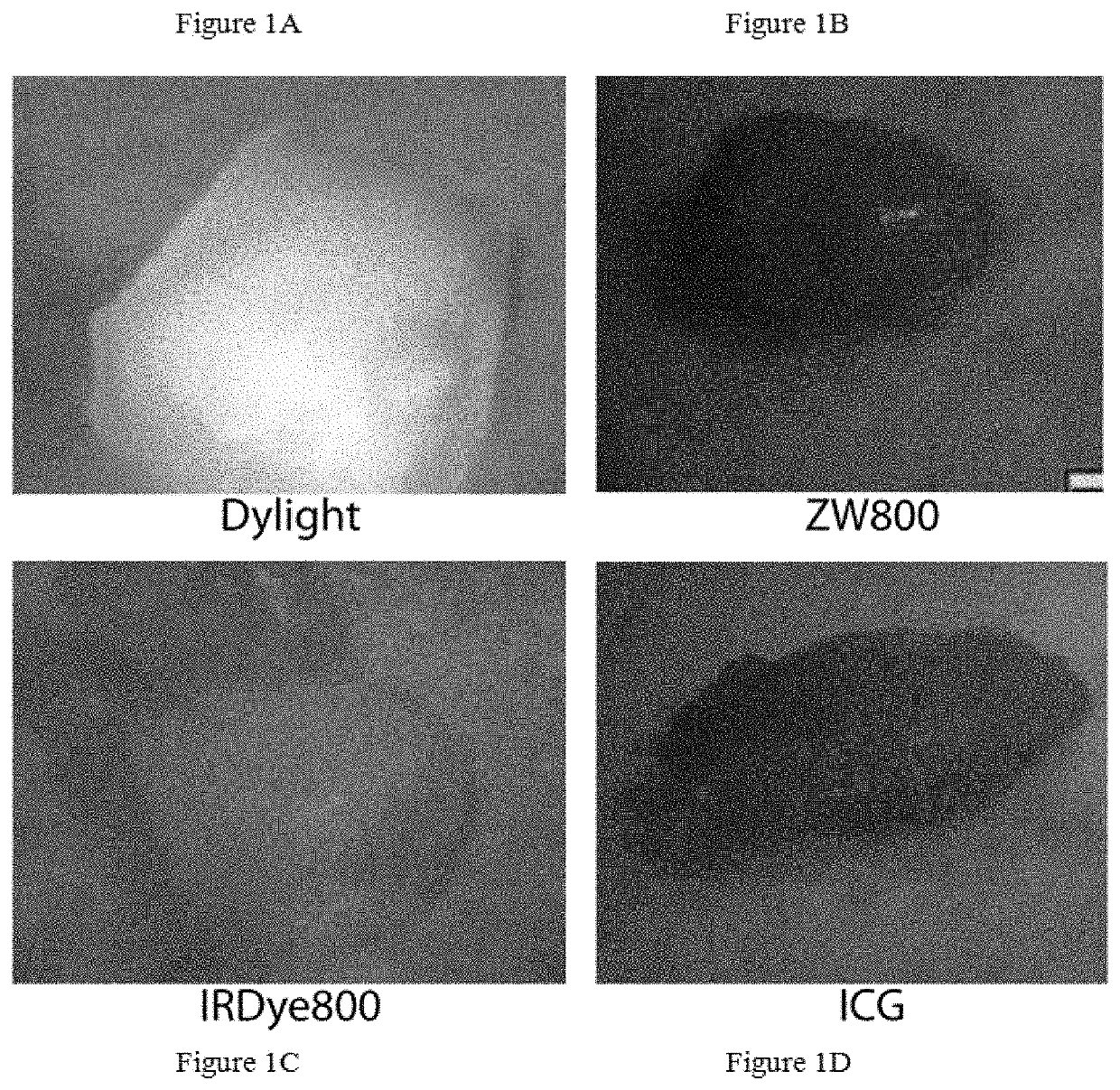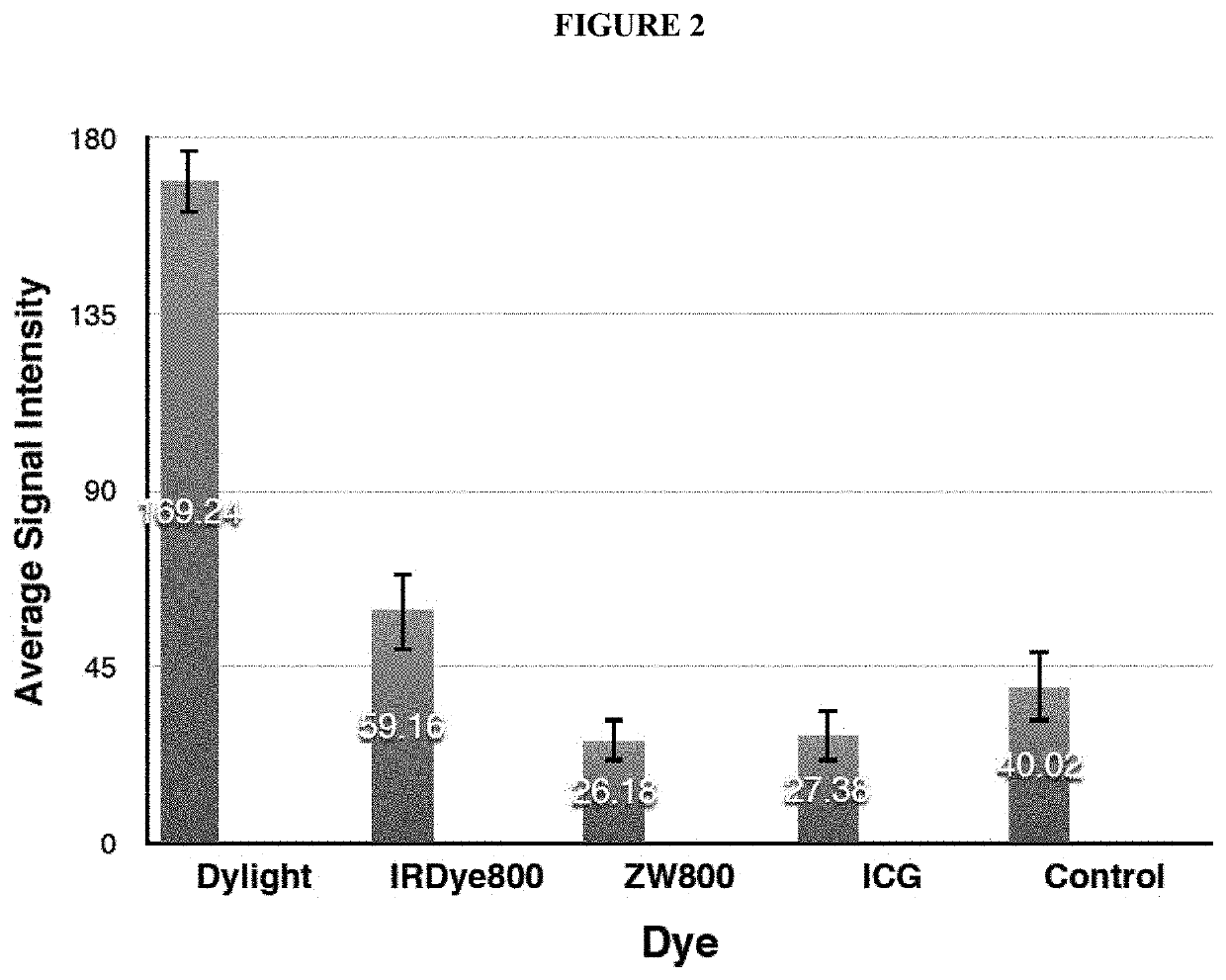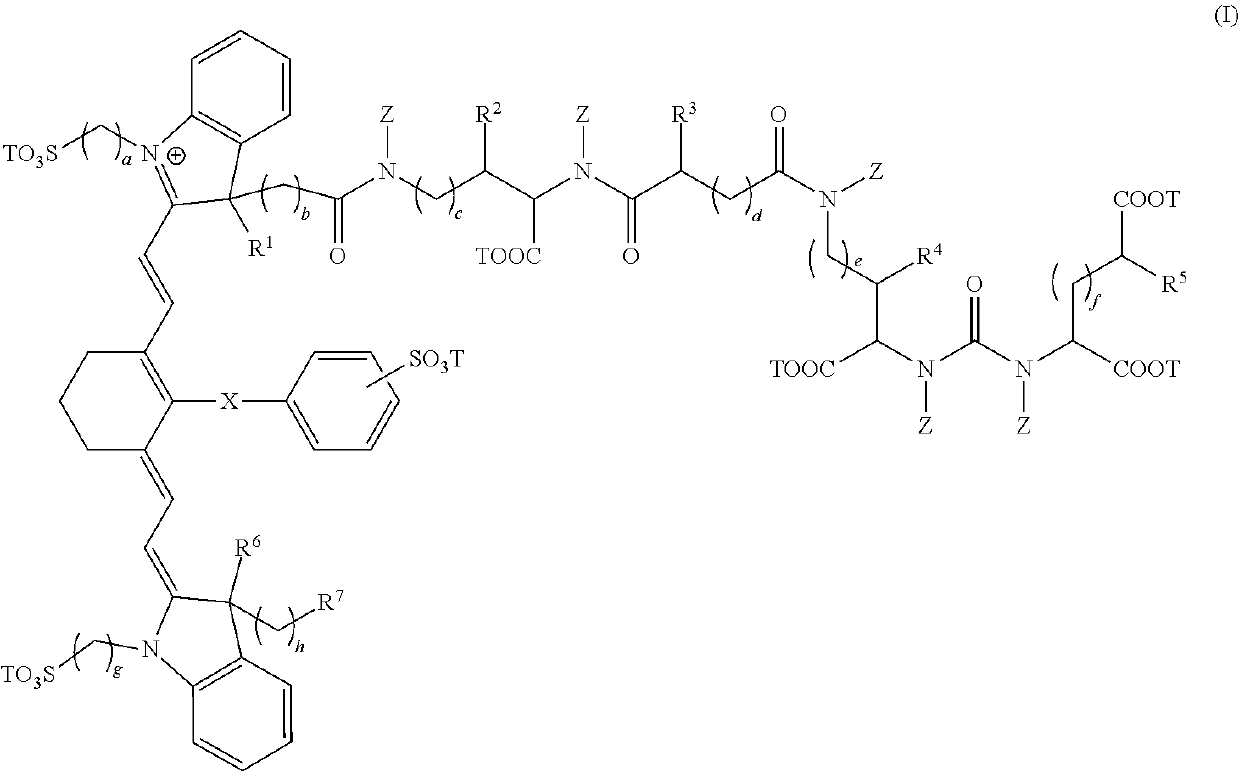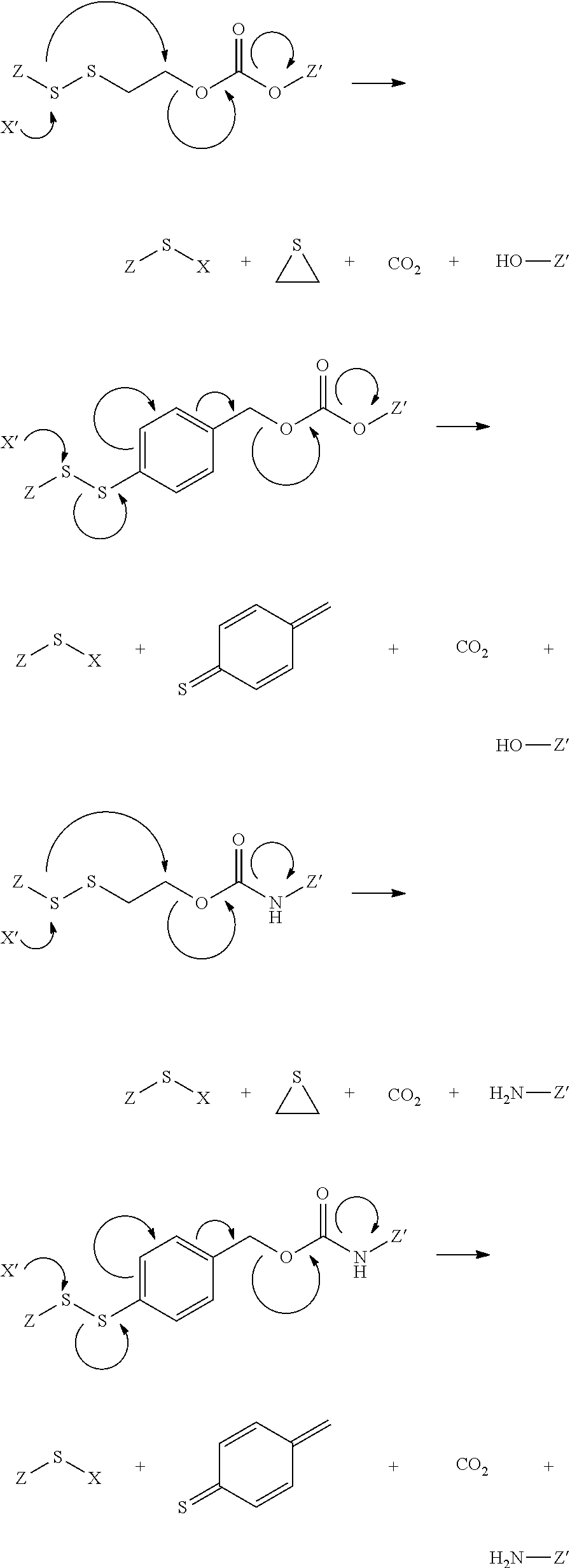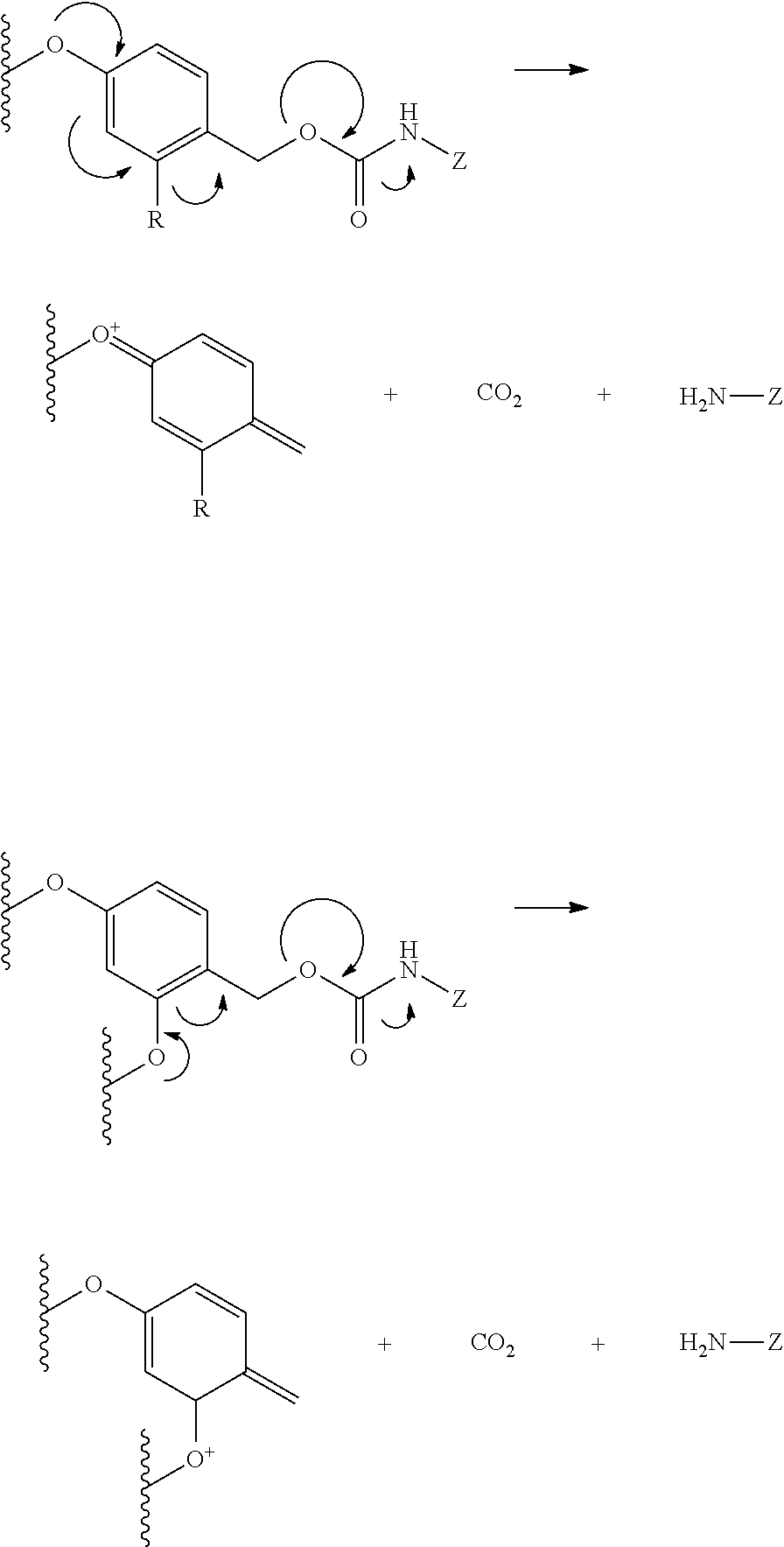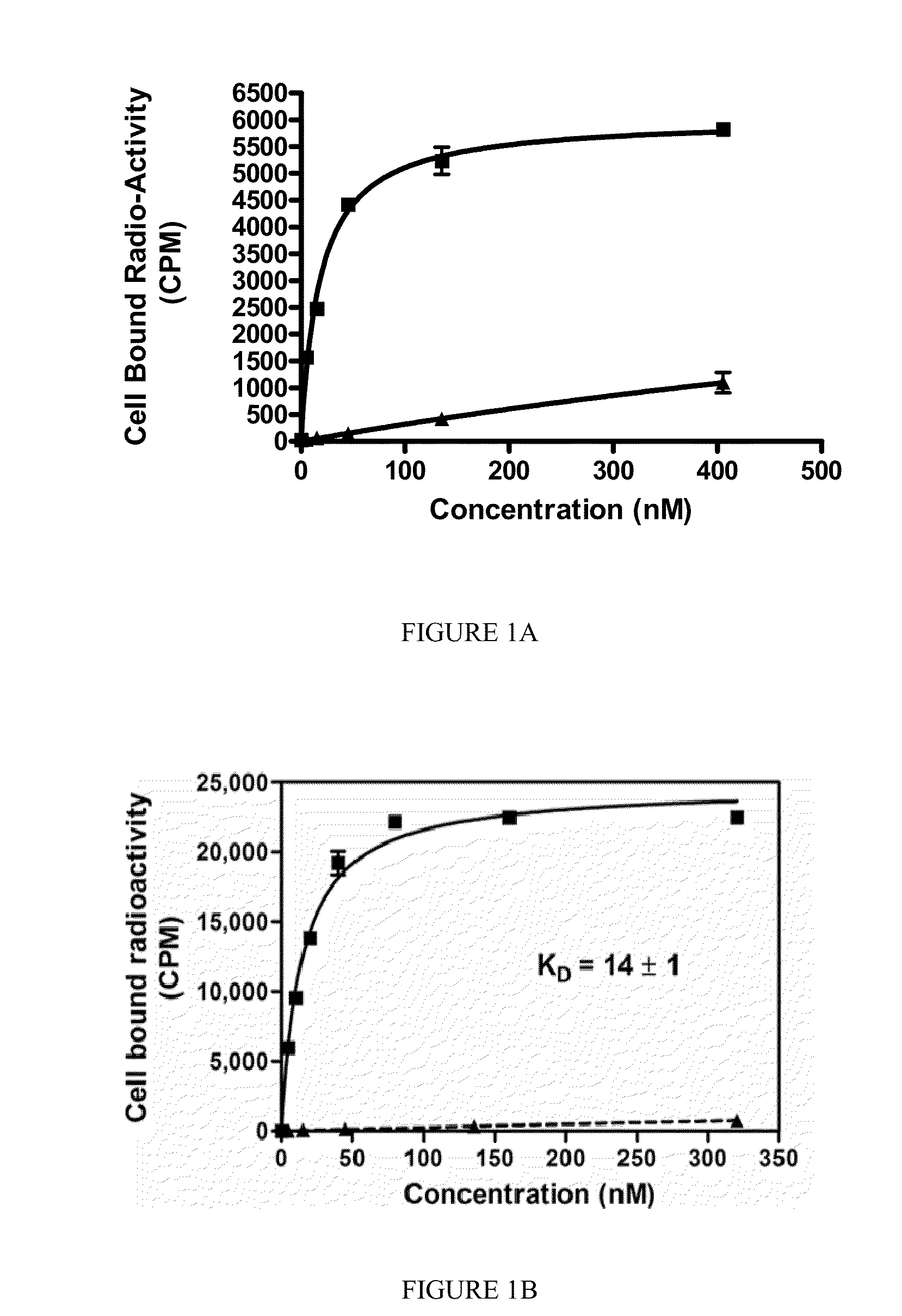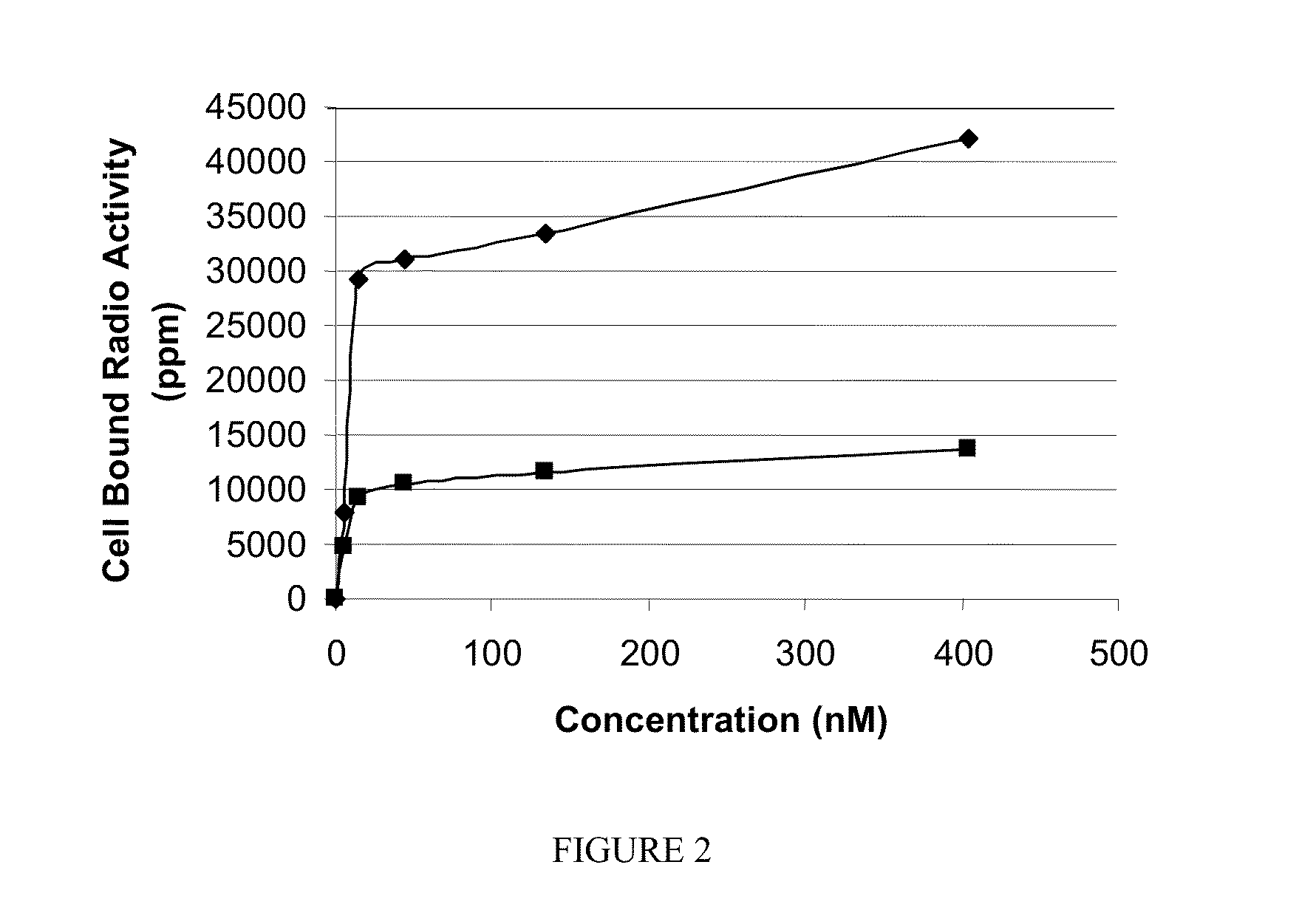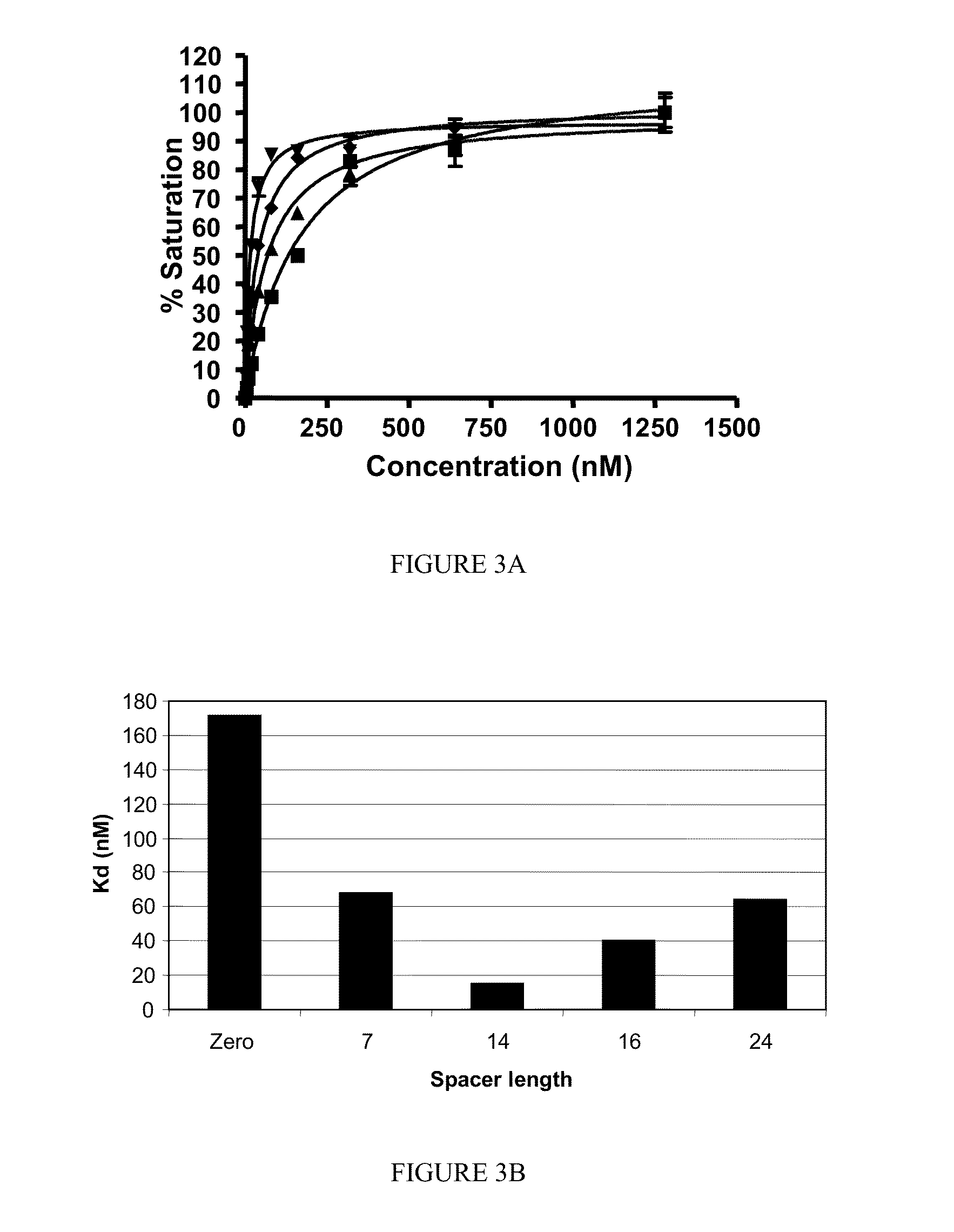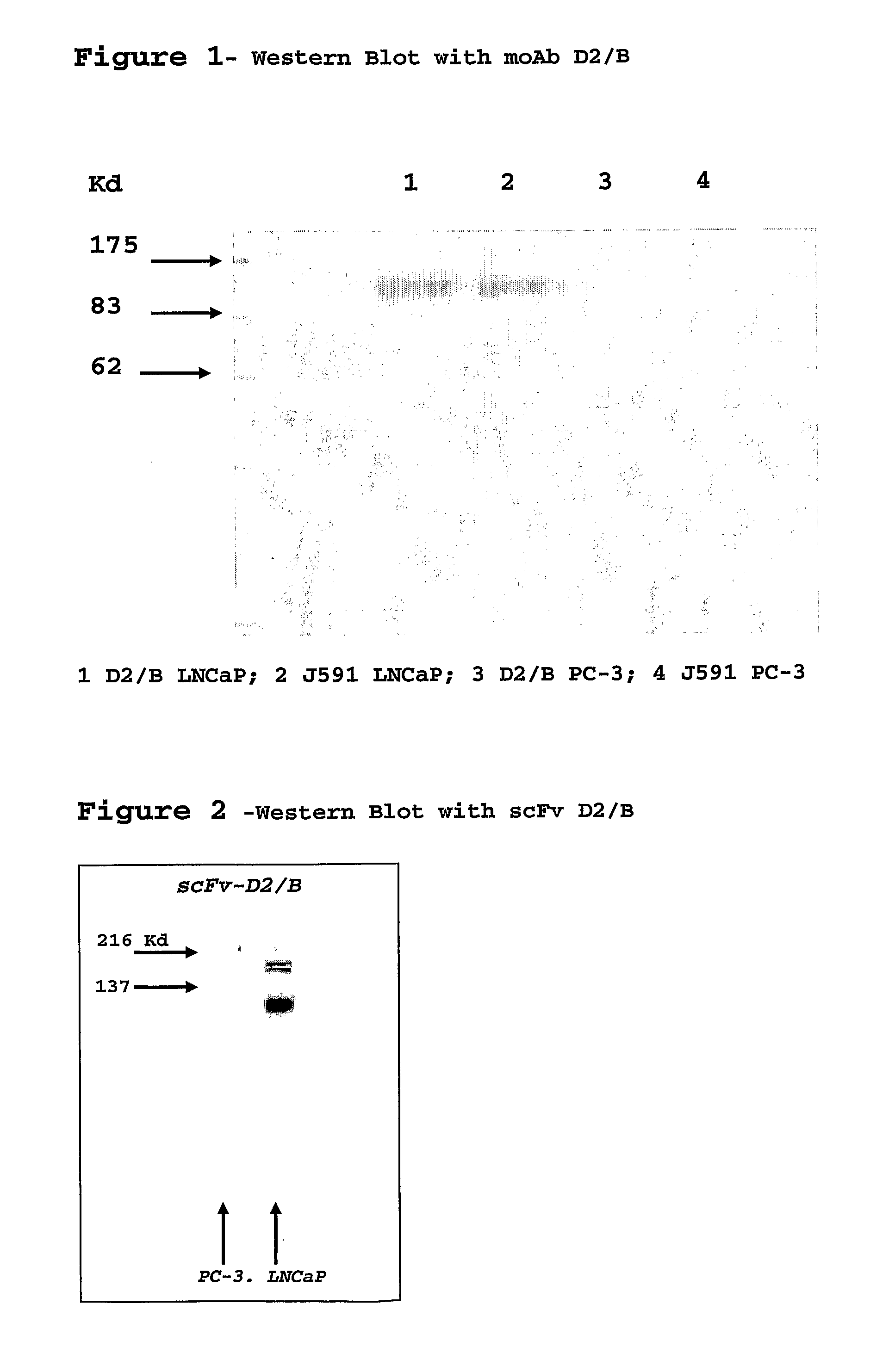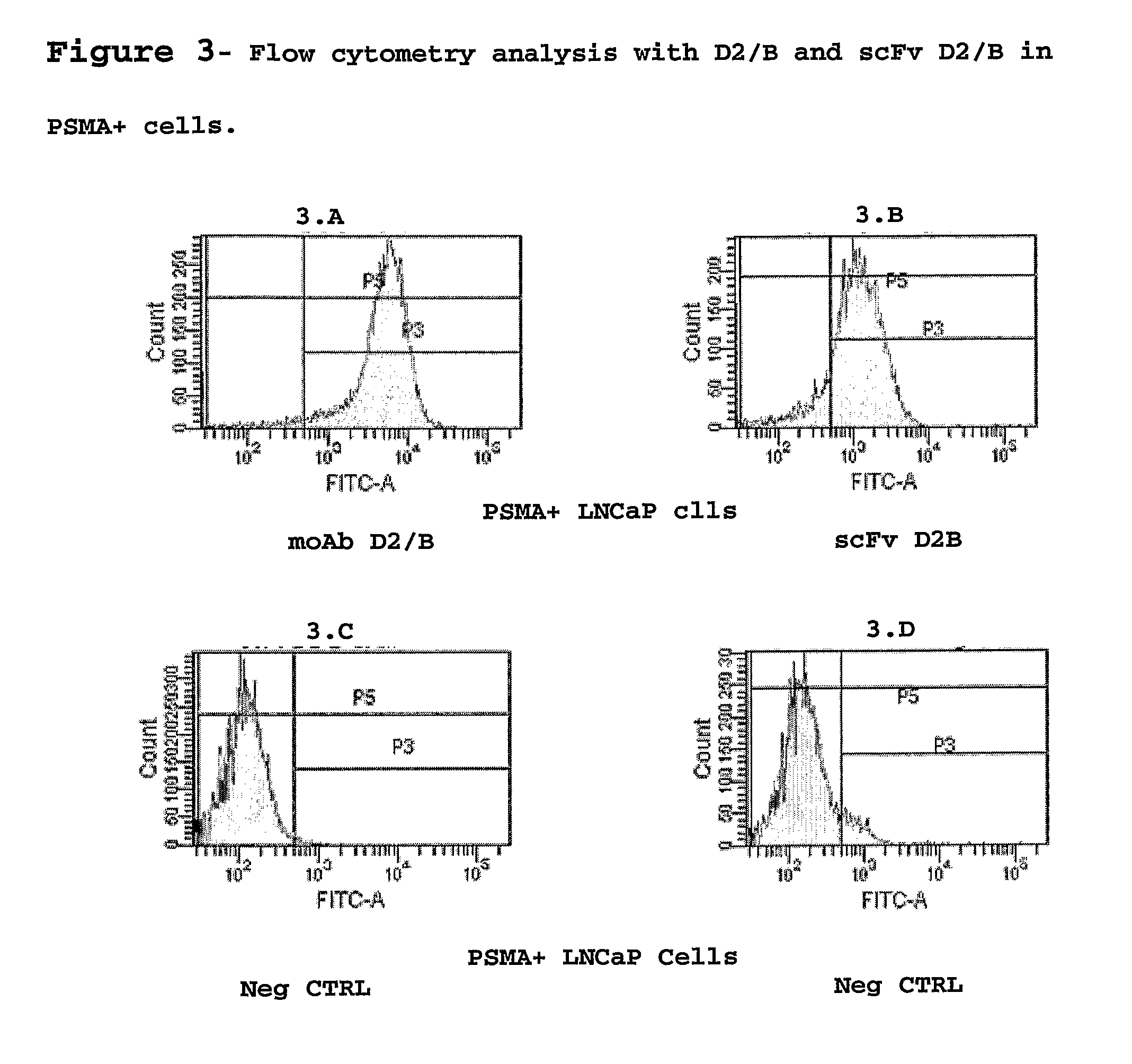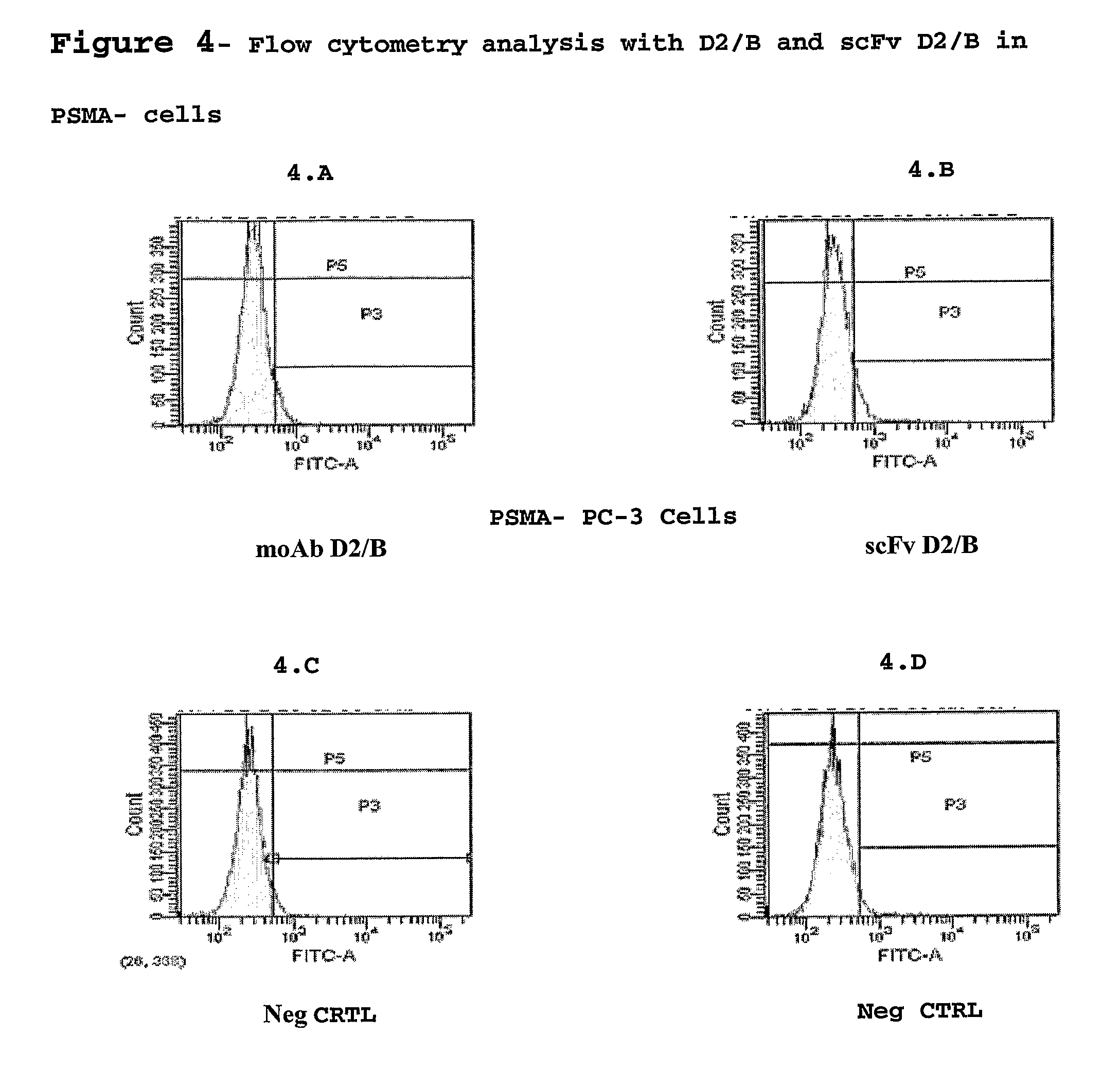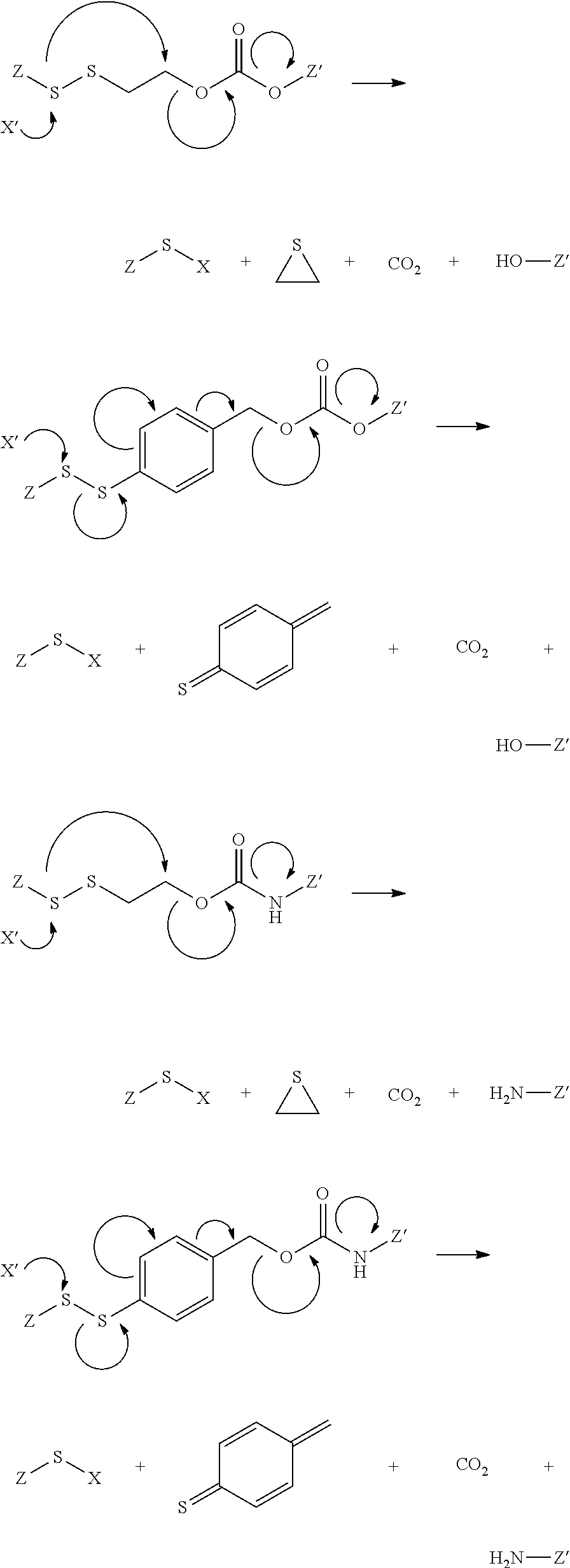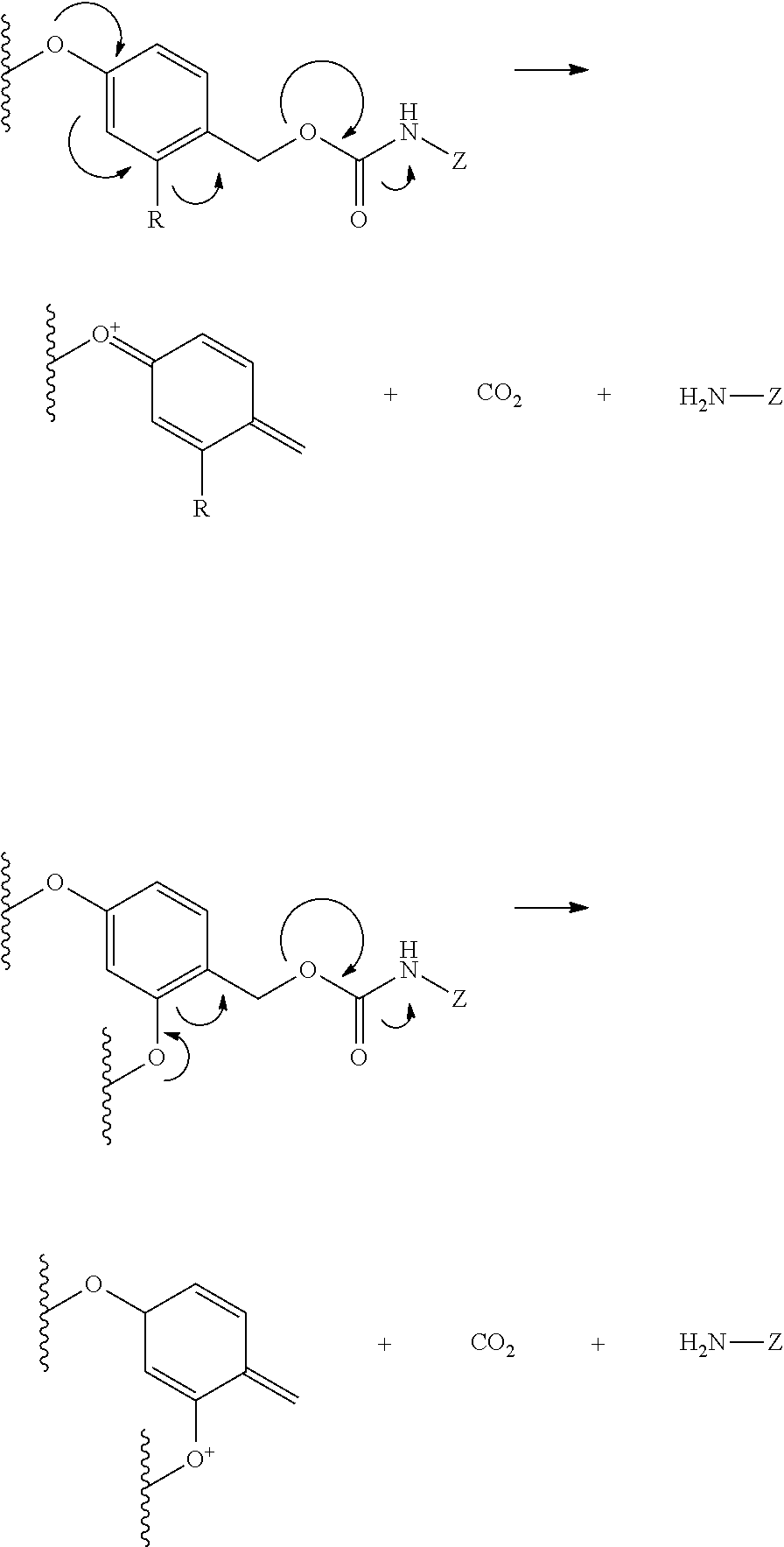Patents
Literature
186 results about "Prostate specific membrane" patented technology
Efficacy Topic
Property
Owner
Technical Advancement
Application Domain
Technology Topic
Technology Field Word
Patent Country/Region
Patent Type
Patent Status
Application Year
Inventor
Glutamate carboxypeptidase II (GCPII), also known as N-acetyl-L-aspartyl-L-glutamate peptidase I (NAALADase I), NAAG peptidase, or prostate-specific membrane antigen (PSMA) is an enzyme that in humans is encoded by the FOLH1 (folate hydrolase 1) gene.
Monoclonal antibodies specific for the extracellular domain of prostate-specific membrane antigen
InactiveUS6962981B1VirusesCell receptors/surface-antigens/surface-determinantsImmunoenzymatic assayAntigen
The present invention relates to monoclonal antibodies that bind to the extracellular domain of prostate-specific membrane antigen (PSMA), hybridoma cell lines producing the antibodies, and methods of using such antibodies for diagnosis and treatment of cancer. In particular, thirty-five monoclonal antibodies reactive with PSMA expressed on the cell surface are exemplified. Additionally, the present invention relates to a novel protein variant (PSM′) of the PSMA detected by a number of the antibodies of the invention. The hydrolase activity of PSMA and PSM′ allows the use of an immunoenzymatic assay for their detection.
Owner:ER SQUIBB & SONS INC
Monoclonal antibodies against prostate specific membrane antigen (PSMA) lacking in fucosyl residues
ActiveUS7875278B2Inhibit cell growthStrong cytotoxicityAnimal cellsAntibody ingredientsAntigenFucosylation
The invention pertains to anti-PSMA antibodies that lack fucosyl residues. The antibodies of the invention exhibit increased antibody-dependent cellular cytotoxicity (ADCC) activity as compared to the fucosylated form of the antibodies. The invention also provides host cells that express the anti-PSMA antibodies that lack fucosyl residues, wherein the host cells are deficient for a fucosyl transferase. Methods of using the antibodies to inhibit the growth of PSMA+ cells, such as tumor cells, are also provided.
Owner:ER SQUIBB & SONS INC +1
Psma binding ligand-linker conjugates and methods for using
Described herein are prostate specific membrane antigen (PSMA) binding conjugates that are useful for delivering therapeutic, diagnostic and imaging agents. Also described herein are pharmaceutical composition containing them and methods of using the conjugates and compositions. Also described are processes for manufacture of the conjugates and the compositions containing them.
Owner:PURDUE RES FOUND INC
Modified antibodies to prostate-specific membrane antigen and uses thereof
InactiveUS7045605B2Less immunogenicHigh affinityNervous disorderHybrid cell preparationAntigen Binding FragmentAntigen binding
Modified antibodies, or antigen-binding fragments thereof, to the extracellular domain of human prostate specific membrane antigen (PSMA) are provided. The modified anti-PSMA antibodies, or antigen-binding fragments thereof, have been rendered less immunogenic compared to their unmodified counterparts to a given species, e.g., a human. Pharmaceutical compositions including the aforesaid antibodies, nucleic acids, recombinant expression vectors and host cells for making such antibodies and fragments are also disclosed. Methods of using the antibodies of the invention to detect human PSMA, or to ablate or kill a PSMA-expressing cell, e.g., a PSMA-expressing cancer or prostatic cell, either in vitro or in vivo, are also provided.
Owner:CORNELL RES FOUNDATION INC
Treatment and diagnosis of prostate cancer
InactiveUS7666425B1Effective diagnosisEffective treatmentPeptide/protein ingredientsMicrobiological testing/measurementAntigenProstatic epithelium
The present invention is directed to the use of antibodies or binding portions thereof, probes, ligands, or other biological agents which either recognize an extracellular domain of prostate specific membrane antigen or bind to and are internalized with prostate specific membrane antigen. These biological agents can be labeled and used for detection of normal, benign hyperplastic, and cancerous prostate epithelial cells or portions thereof. They also can be used alone or bound to a substance effective to ablate or kill such cells as a therapy for prostate cancer. Also disclosed are four hybridoma cell lines, each of which produces a monoclonal antibody recognizing extracellular domains of prostate specific membrane antigens of normal, benign hyperplastic, and cancerous prostate epithelial cells or portions thereof.
Owner:CORNELL RES FOUNDATION INC
Human Monoclonal Antibodies to Prostate Specific Membrane Antigen (PSMA)
InactiveUS20090297438A1Effective antibody dependent cell-mediated cytotoxicity (ADCC) of the tumorPeptide/protein ingredientsImmunoglobulins against cell receptors/antigens/surface-determinantsAntigenProstate specific membrane
The present invention provides isolated monoclonal antibodies, particularly human monoclonal antibodies, that specifically bind to PSMA with high affinity. Nucleic acid molecules encoding the antibodies of the invention, expression vectors, host cells and methods for expressing the antibodies of the invention are also provided. Immunoconjugates, bispecific molecules and pharmaceutical compositions comprising the antibodies of the invention are also provided. The invention also provides methods for treating cancer.
Owner:MEDAREX INC
Treatment and diagnosis of cancer
InactiveUS7163680B2Effective diagnosisEffective treatmentBiological material analysisNanomedicineAntigenVascular endothelium
Owner:CORNELL RES FOUNDATION INC
Methods of treating prostate cancer with anti-prostate specific membrane antigen antibodies
ActiveUS7514078B2Relieve painReduce needSugar derivativesHybrid cell preparationAntigen Binding FragmentAnti-PSMA Antibody
Modified antibodies, or antigen-binding fragments thereof, to the extracellular domain of human prostate specific membrane antigen (PSMA) are provided. The modified anti-PSMA antibodies, or antigen-binding fragments thereof, have been rendered less immunogenic compared to their unmodified counterparts to a given species, e.g., a human. Pharmaceutical compositions including the aforesaid antibodies, nucleic acids, recombinant expression vectors and host cells for making such antibodies and fragments are also disclosed. Methods of using the antibodies of the invention to detect human PSMA, or to ablate or kill a PSMA-expressing cell, e.g., a PSMA-expressing cancer or prostatic cell, either in vitro or in vivo, are also provided.
Owner:CORNELL RES FOUNDATION INC
Psma-targeting compounds and uses thereof
ActiveUS20120009121A1Satisfies long standing and unmetSharp contrastIn-vivo radioactive preparationsOrganic compound preparationAntigenProstate specific membrane
Prostate-specific membrane antigen (PSMA) targeting compounds are described. Uses of the compounds for imaging, therapy, cell sorting, and tumor mapping are also described.
Owner:THE JOHN HOPKINS UNIV SCHOOL OF MEDICINE
PSMA-binding agents and uses thereof
ActiveUS8778305B2Satisfies long standing and unmetSharp contrastGroup 4/14 element organic compoundsIn-vivo radioactive preparationsProstate cancer cellAntigen
Prostate-specific membrane antigen (PSMA) binding compounds having radioisotope substituents are described, as well as chemical precursors thereof. Compounds include pyridine containing compounds, compounds having phenylhydrazine structures, and acylated lysine compounds. The compounds allow ready incorporation of radionuclides for single photon emission computed tomography (SPECT) and positron emission tomography (PET) for imaging, for example, prostate cancer cells and angiogenesis.
Owner:THE JOHN HOPKINS UNIV SCHOOL OF MEDICINE
Modified antibodies to prostate-specific membrane antigen and uses thereof
InactiveUS20060062793A1Less immunogenicHigh affinityIn-vivo radioactive preparationsImmunoglobulins against cell receptors/antigens/surface-determinantsCancer cellAntigen Binding Fragment
Modified antibodies, or antigen-binding fragments thereof, to the extracellular domain of human prostate specific membrane antigen (PSMA) are provided. The modified anti-PSMA antibodies, or antigen-binding fragments thereof, have been rendered less immunogenic compared to their unmodified counterparts to a given species, e.g., a human. Pharmaceutical compositions including the aforesaid antibodies, nucleic acids, recombinant expression vectors and host cells for making such antibodies and fragments are also disclosed. Methods of using the antibodies of the invention to detect human PSMA, or to ablate or kill a PSMA-expressing cell, e.g., a PSMA-expressing cancer or prostatic cell, either in vitro or in vivo, are also provided.
Owner:MILLENNIUM PHARMA INC
Treatment and diagnosis of prostate cancer
InactiveUS7112412B1Effective diagnosisEffective treatmentPeptide/protein ingredientsMicrobiological testing/measurementAntigenProstatic epithelium
The present invention is directed to the use of antibodies or binding portions thereof, probes, ligands, or other biological agents which either recognize an extracellular domain of prostate specific membrane antigen or bind to and are internalized with prostate specific membrane antigen. These biological agents can be labeled and used for detection of normal, benign hyperplastic, and cancerous prostate epithelial cells or portions thereof. They also can be used alone or bound to a substance effective to ablate or kill such cells as a therapy for prostate cancer. Also disclosed are four hybridoma cell lines, each of which produces a monoclonal antibody recognizing extracellular domains of prostate specific membrane antigens of normal, benign hyperplastic, and cancerous prostate epithelial cells or portions thereof.
Owner:CORNELL RES FOUNDATION INC
Peptides for targeting the prostate specific membrane antigen
InactiveUS20070254316A1Peptide/protein ingredientsImmunoglobulins against cell receptors/antigens/surface-determinantsAntigenProstate specific membrane
Owner:THE JOHN HOPKINS UNIV SCHOOL OF MEDICINE
Compounds which bind PSMA and uses thereof
InactiveUS20080311037A1InhibitionInduced differentiationMaterial nanotechnologyBiocideAntigenDisease
A compound is represented by Structural Formula A1:C—B-L-A A1or a pharmaceutically acceptable salt or solvate thereof.A is a prostate specific membrane antigen (PSMA) ligand;L is an optionally substituted aliphatic or heteroaliphatic linking group;B includes at least one optionally substituted moiety selected from the group consisting of a sugar, a charged group, an aryl ring, and a heteroaryl ring, wherein B optionally includes a drug or a labeling agent; andC is H, a drug, or a labeling agent, wherein CB together comprises the drug or the labeling agent.The compounds are useful as PSMA agents and in pharmaceutical compositions, methods for treating and detecting diseases such as cancer in a subject, methods for identifying cancer cells in a sample, methods for inhibiting tumor neovascularization, methods for identifying drugs that can treat cancer, and the like.
Owner:THE CLEVELAND CLINIC FOUND
Methods and devices for quantitative detection of prostate specific membrane antigen and other prostatic markers
The invention provides for the detection and quantification of PSMA, PSMA', and other prostatic markers in serum samples as well as in other types of samples for use in differentiating prostate cancer, benign prostatic hyperplasia, and negative diagnoses. The diagnostic detection of nucleic acids, such as mRNAs, which encode prostatic markers in cell lysates and other sample sources is also provided. In addition to the multiplexed detection / quantification of these protein- and nucleic acid-based markers, the invention also includes biochips, kits and integrated systems.
Owner:EASTERN VIRGINIA MEDICAL SCHOOL
Psma binding ligand-linker conjugates and methods for using
InactiveUS20110288152A1Organic active ingredientsIn-vivo radioactive preparationsAntigenProstate cancer cell
Described herein are prostate specific membrane antigen (PSMA) binding conjugates that are useful for targeting prostate cancer cells. Also described herein are compositions containing them and methods of using the conjugates and compositions. Also described are processes for manufacture of the conjugates and the compositions containing them.
Owner:PURDUE RES FOUND INC
Peptidomimetic inhibitors of PSMA, compounds comprising them, and methods of use
ActiveUS7696185B2More cost-effectivelyBiocidePhosphorous compound active ingredientsAntigenProstate cancer cell
Compounds of the formula, A—L—B, wherein A is glutamate or a glutamate analog; L is a phosphoramidate or a phosphoramidate analog; and B is serine or a serine analog are described which are potent inhibitors of prostate-specific membrane antigen (PMSA). Such compounds are useful in treatment of prostate cancer; and when chemically attached to a fluorescent dye, can efficiently and selectively label prostate cancer cells for fluorescent imaging.
Owner:CANCER TARGETED TECH
Antibodies as chimeric effector cell receptors against tumor antigens
InactiveUS20070031438A1Improve the level ofAnimal cellsSugar derivativesAbnormal tissue growthProstate specific membrane
This invention relates to specific antibodies against ganglioside GD3 called MB3.6 and against protein prostate specific membrane antigen (PSMA) called 3D8, 4D4 and 3E11 when prepared as chimeric molecules with signaling molecules of T cells and other effector cells, and the use thereof in the treatment of cancers expressing these antigens.
Owner:JUNGHANS RICHARD P
Psma-binding agents and uses thereof
ActiveUS20110142760A1Satisfies long standingSharp contrastUrea derivatives preparationGroup 4/14 element organic compoundsAntigenProstate cancer cell
Prostate-specific membrane antigen (PSMA) binding compounds having radioisotope substituents are described, as well as chemical precursors thereof. Compounds include pyridine containing compounds, compounds having phenylhydrazine structures, and acylated lysine compounds. The compounds allow ready incorporation of radionuclides for single photon emission computed tomography (SPECT) and positron emission tomography (PET) for imaging, for example, prostate cancer cells and angiogenesis.
Owner:THE JOHN HOPKINS UNIV SCHOOL OF MEDICINE
Nucleic acid ligands to the prostate specific membrane antigen
InactiveUS20050158780A1In-vivo radioactive preparationsCell receptors/surface-antigens/surface-determinantsAntigenProstate specific membrane
Methods are provided for generating nucleic acid ligands of Prostate Specific Membrane Antigen (PSMA). The methods of the invention use the SELEX method for the isolation of nucleic acid ligands. The invention also includes nucleic acid ligands to PSMA, and methods and compositions for the treatment and diagnosis of disease using the nucleic acid ligands.
Owner:GILEAD SCI INC
Methods for treating prostate cancer using modified antibodies to prostate-specific membrane antigen
InactiveUS7666414B2Relieve painReduce needIn-vivo radioactive preparationsSugar derivativesAntigen Binding FragmentAnti-PSMA Antibody
Modified antibodies, or antigen-binding fragments thereof, to the extracellular domain of human prostate specific membrane antigen (PSMA) are provided. The modified anti-PSMA antibodies, or antigen-binding fragments thereof, have been rendered less immunogenic compared to their unmodified counterparts to a given species, e.g., a human. Pharmaceutical compositions including the aforesaid antibodies, nucleic acids, recombinant expression vectors and host cells for making such antibodies and fragments are also disclosed. Methods of using the antibodies of the invention to detect human PSMA, or to ablate or kill a PSMA-expressing cell, e.g., a PSMA-expressing cancer or prostatic cell, either in vitro or in vivo, are also provided.
Owner:CORNELL RES FOUNDATION INC
Modified antibodies to prostate-specific membrane antigen and uses thereof
InactiveUS20060088539A1Relieve painReduce needIn-vivo radioactive preparationsAntipyreticCancer cellAntigen Binding Fragment
Modified antibodies, or antigen-binding fragments thereof, to the extracellular domain of human prostate specific membrane antigen (PSMA) are provided. The modified anti-PSMA antibodies, or antigen-binding fragments thereof, have been rendered less immunogenic compared to their unmodified counterparts to a given species, e.g., a human. Pharmaceutical compositions including the aforesaid antibodies, nucleic acids, recombinant expression vectors and host cells for making such antibodies and fragments are also disclosed. Methods of using the antibodies of the invention to detect human PSMA, or to ablate or kill a PSMA-expressing cell, e.g., a PSMA-expressing cancer or prostatic cell, either in vitro or in vivo, are also provided.
Owner:CORNELL RES FOUNDATION INC
Monoclonal antibody specific for the extracellular domain of prostate specific membrane antigen
InactiveUS7476513B2VirusesIn-vivo radioactive preparationsImmunoenzymatic assayProstate specific membrane
The present invention relates to monoclonal antibodies that bind to the extracellular domain of prostate-specific membrane antigen (PSMA), hybridoma cell lines producing the antibodies, and methods of using such antibodies for diagnosis and treatment of cancer. In particular, thirty-five monoclonal antibodies reactive with PSMA expressed on the cell surface are exemplified. Additionally, the present invention relates to a novel protein variant (PSM′) of PSMA detected by a number of the antibodies of the invention. The hydrolase activity of PSMA and PSM′ allows the use of an immunoenzymatic assay for their detection.
Owner:ER SQUIBB & SONS INC
Psma-targeting compounds and uses thereof
ActiveUS20150104387A1Satisfies long standing and unmetSharp contrastUltrasonic/sonic/infrasonic diagnosticsOrganic active ingredientsAntigenProstate specific membrane
Prostate-specific membrane antigen (PSMA) targeting compounds are described. Uses of the compounds for imaging, therapy, cell sorting, and tumor mapping are also described.
Owner:THE JOHN HOPKINS UNIV SCHOOL OF MEDICINE
Compositions and Methods for The Treatment of Cancer
The instant invention provides methods and compositions for the treatment and diagnosis of cancer, e.g., cancers characterized by the expression of prostate specific membrane antigen (PSMA).
Owner:THE JOHN HOPKINS UNIV SCHOOL OF MEDICINE
Compositions of Near IR Closed Chain, Sulfo-Cyanine Dyes and Prostate Specific Membrane Antigen Ligands
Owner:INTUITIVE SURGICAL OPERATIONS INC
PSMA binding ligand-linker conjugates and methods for using
ActiveUS9951324B2Promoting extended conformationIncrease binding energyOrganic active ingredientsPeptide/protein ingredientsAntigenProstate specific membrane
Described herein are prostate specific membrane antigen (PSMA) binding conjugates that are useful for delivering therapeutic, diagnostic and imaging agents. Also described herein are pharmaceutical compositions containing them and methods of using the conjugates and compositions. Also described are processes for manufacture of the conjugates and the compositions containing them.
Owner:PURDUE RES FOUND INC
Psma binding ligand-linker conjugates and methods for using
Described herein are prostate specific membrane antigen (PSMA) binding conjugates that are useful for delivering therapeutic, diagnostic and imaging agents. Also described herein are pharmaceutical composition containing them and methods of using the conjugates and compositions. Also described are processes for manufacture of the conjugates and the compositions containing them.
Owner:PURDUE RES FOUND INC
Isolated monoclonal antibody or fragment thereof binding prostate specific membrane antigen, conjugates and uses thereof
ActiveUS8703918B2Ultrasonic/sonic/infrasonic diagnosticsAntibody mimetics/scaffoldsProstate specific membraneAntibody fragments
An isolated monoclonal antibody or fragment thereof binding prostate specific membrane antigen (PSMA) preferably in its native form on the surface of tumour cells. A conjugate of the antibody with an active ingredient and modified forms of the antigen-binding antibody fragment are also provided. The complete antibody and the antigen-recognising fragment thereof are used alone or conjugated for the treatment and the diagnosis of tumours or tissues associated to the tumour overexpressing the PSMA antigen, preferably prostatic neoplastic diseases.
Owner:MARCO COLOMBATTI +2
Psma binding ligand-linker conjugates and methods for using
ActiveUS20160151508A1Ultrasonic/sonic/infrasonic diagnosticsOrganic active ingredientsAntigenProstate specific membrane
Described herein are prostate specific membrane antigen (PSMA) binding conjugates that are useful for delivering therapeutic, diagnostic and imaging agents. Also described herein are pharmaceutical compositions containing them and methods of using the conjugates and compositions. Also described are processes for manufacture of the conjugates and the compositions containing them.
Owner:PURDUE RES FOUND INC
Features
- R&D
- Intellectual Property
- Life Sciences
- Materials
- Tech Scout
Why Patsnap Eureka
- Unparalleled Data Quality
- Higher Quality Content
- 60% Fewer Hallucinations
Social media
Patsnap Eureka Blog
Learn More Browse by: Latest US Patents, China's latest patents, Technical Efficacy Thesaurus, Application Domain, Technology Topic, Popular Technical Reports.
© 2025 PatSnap. All rights reserved.Legal|Privacy policy|Modern Slavery Act Transparency Statement|Sitemap|About US| Contact US: help@patsnap.com
